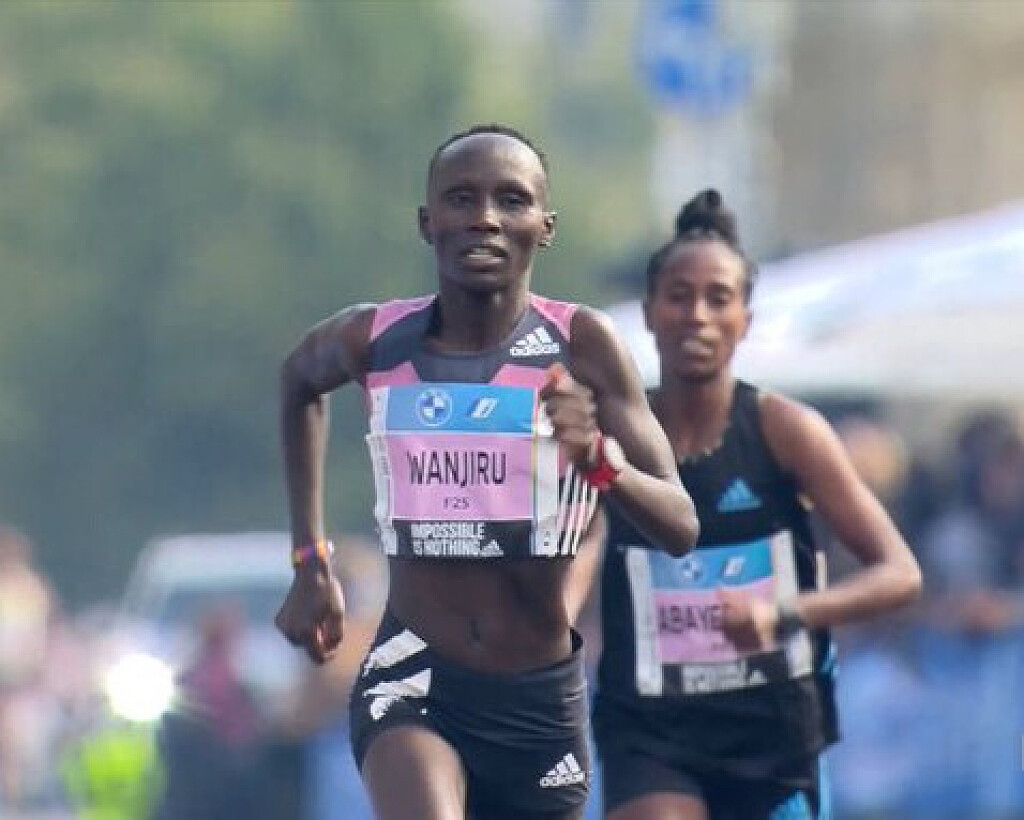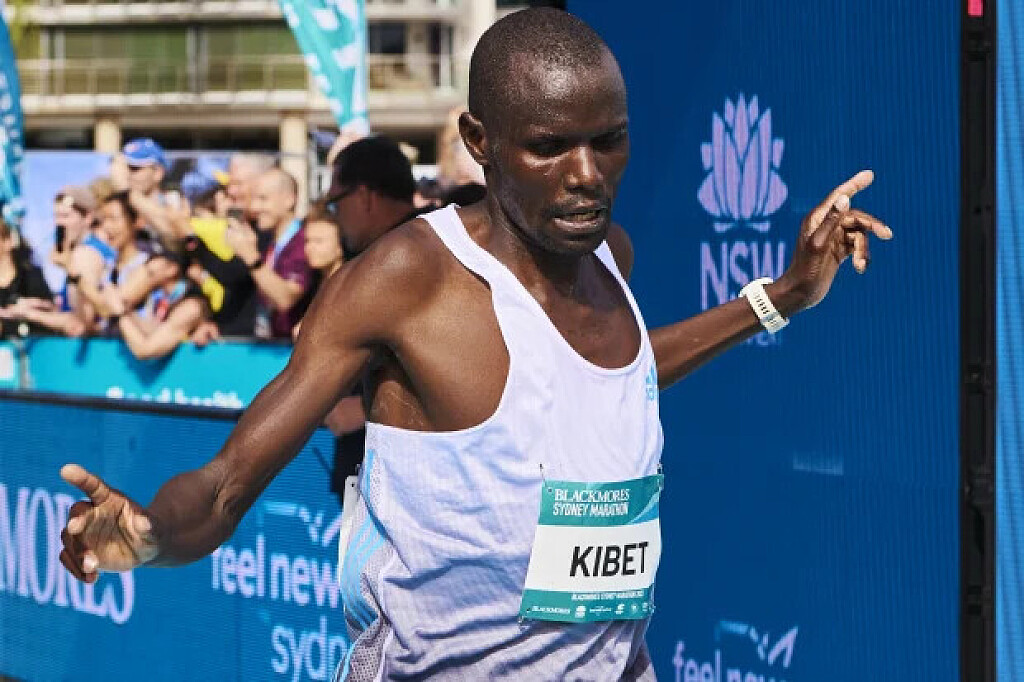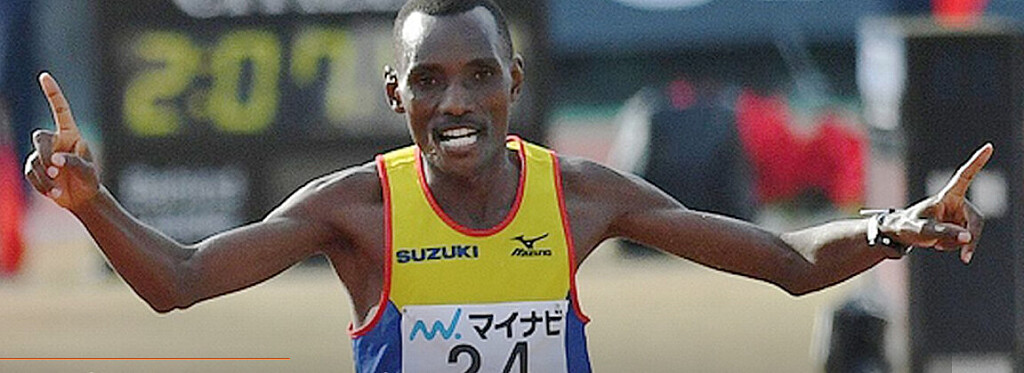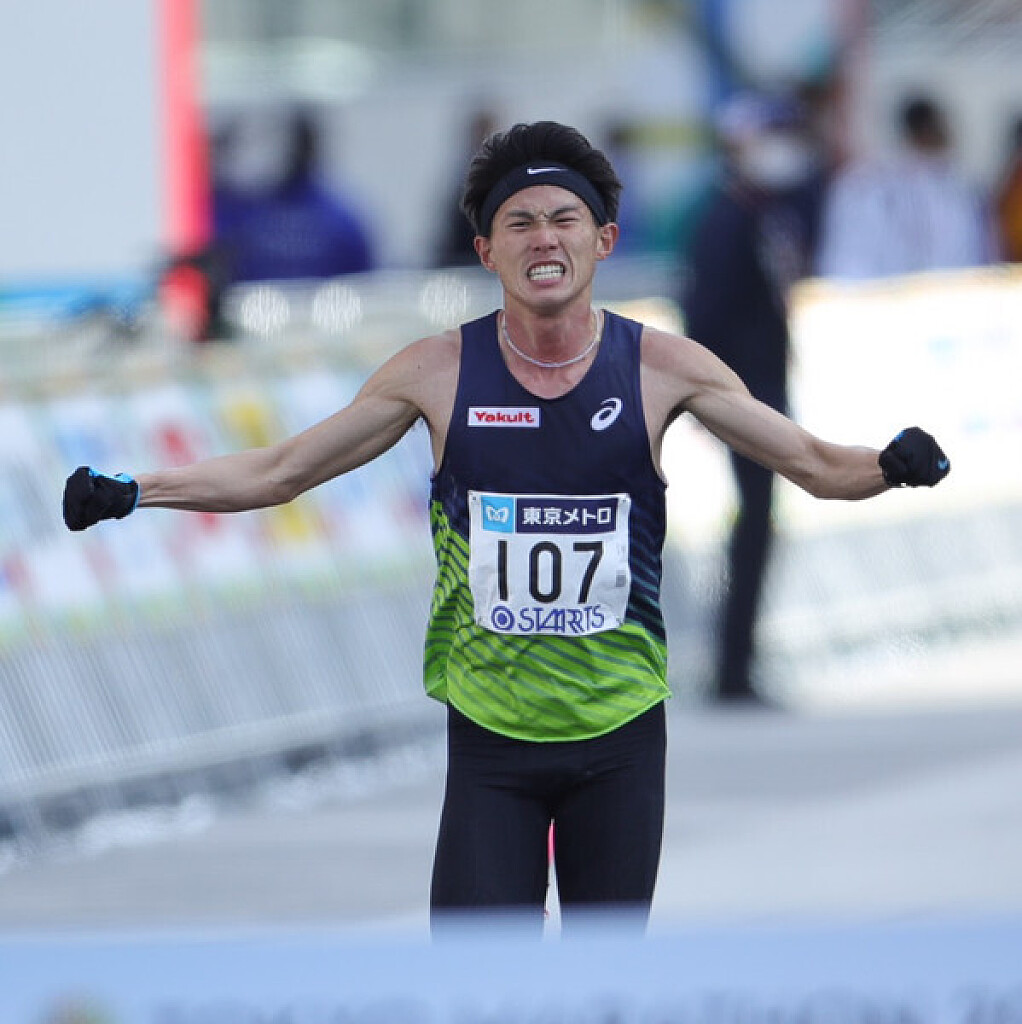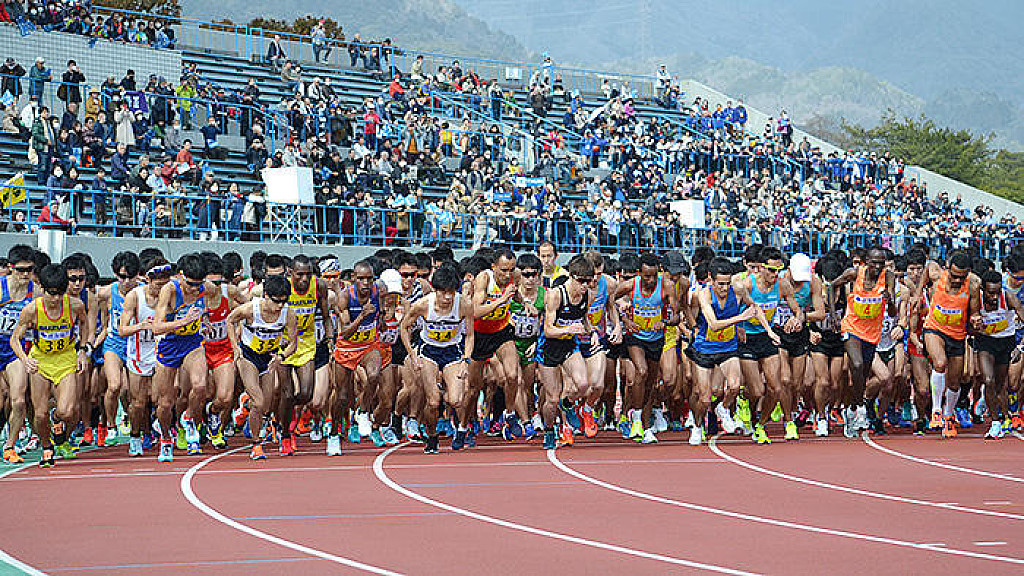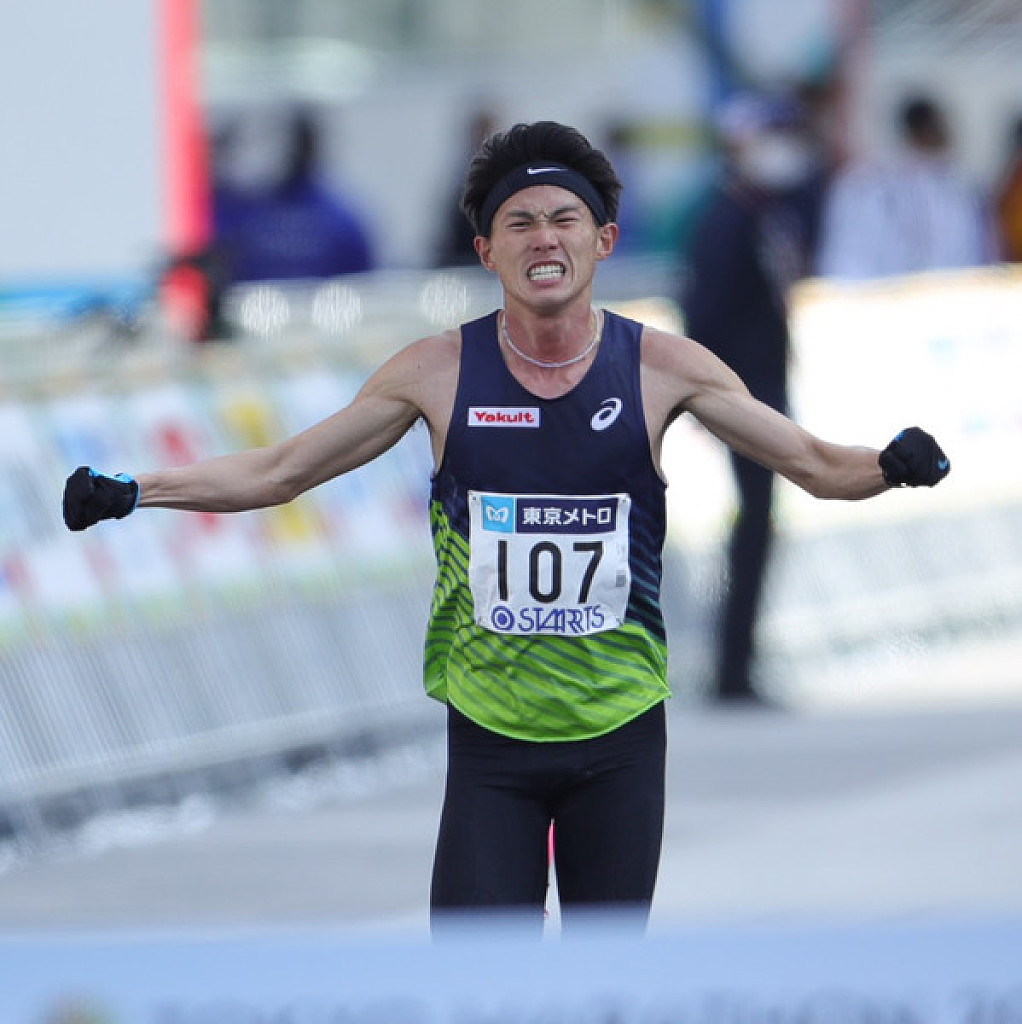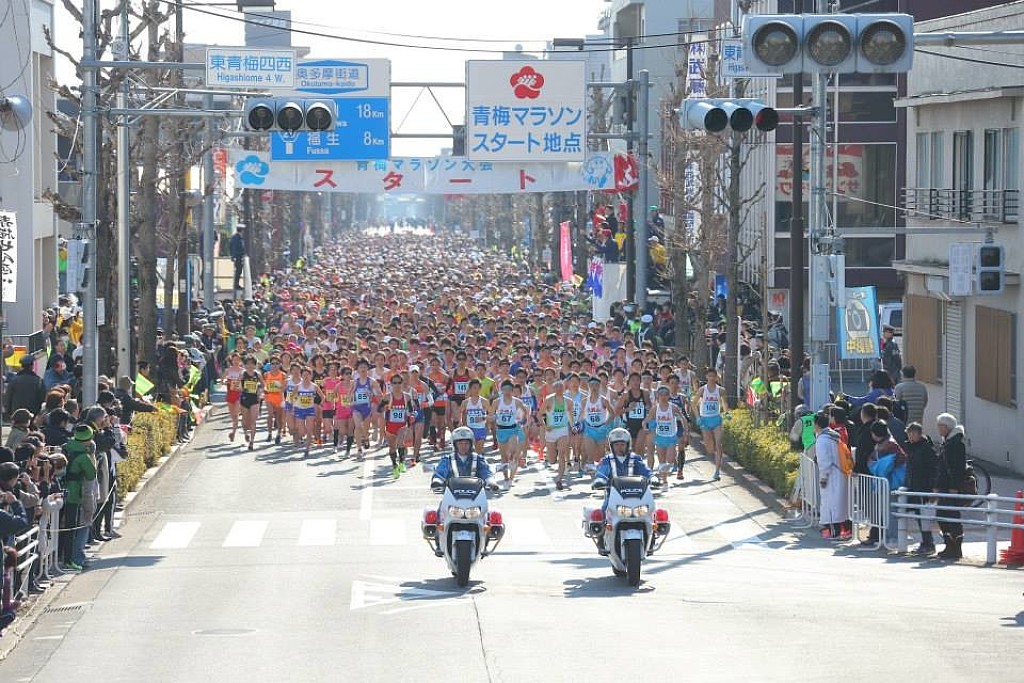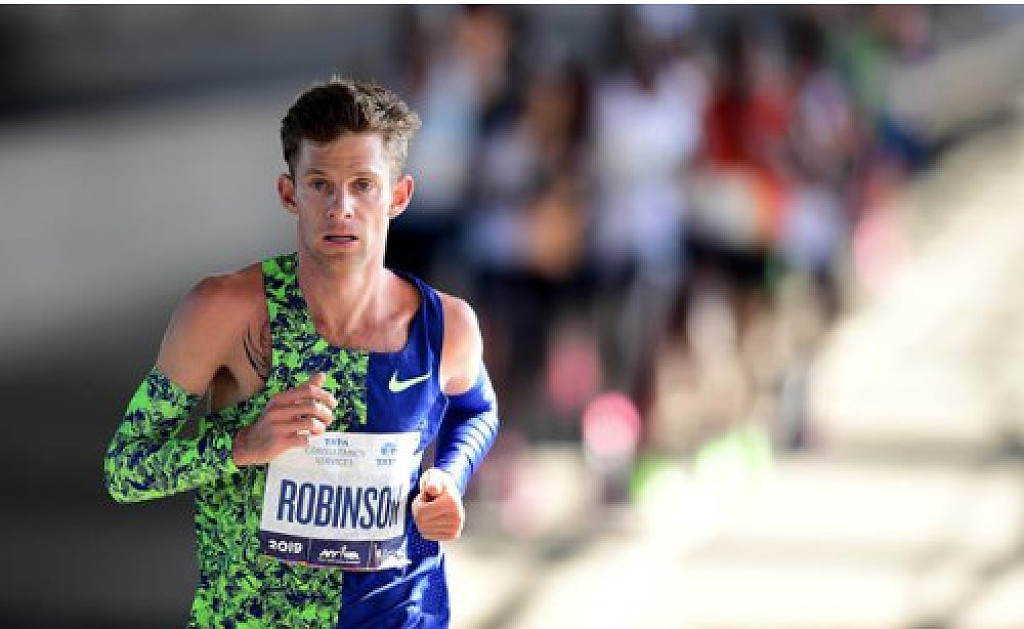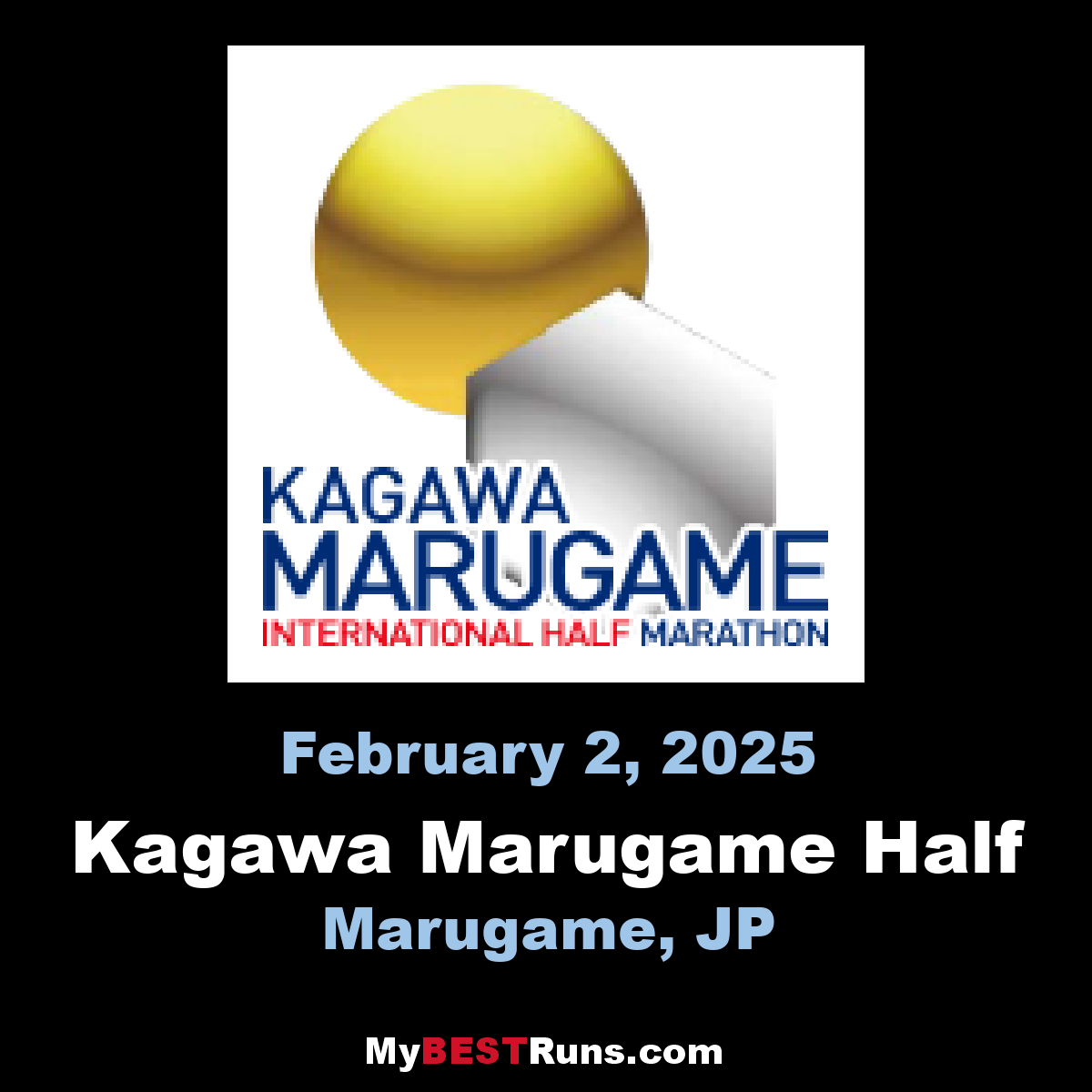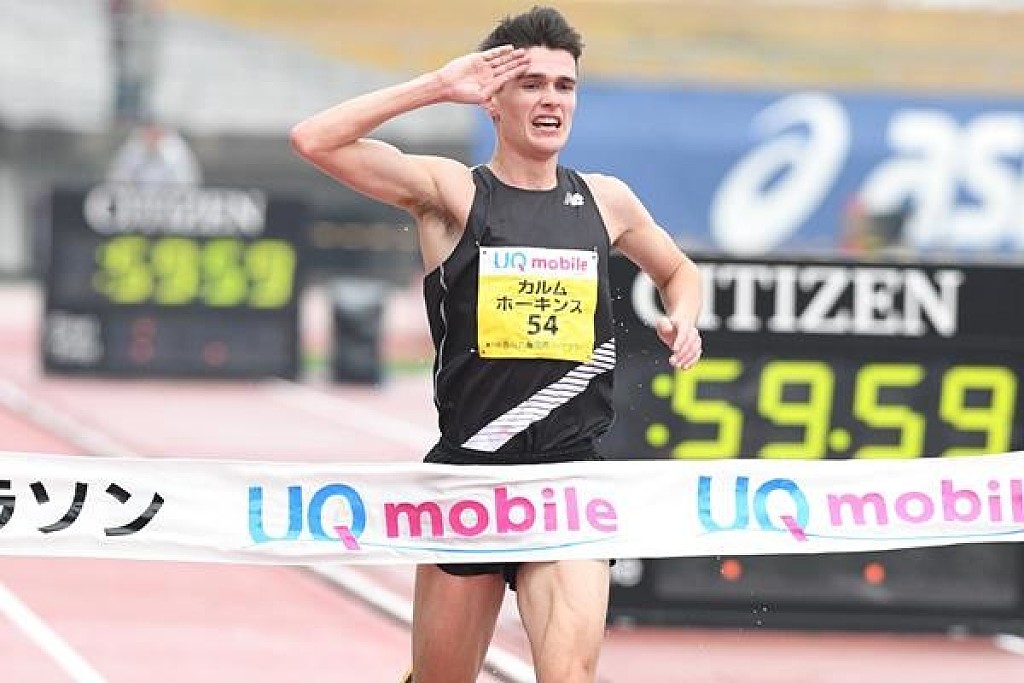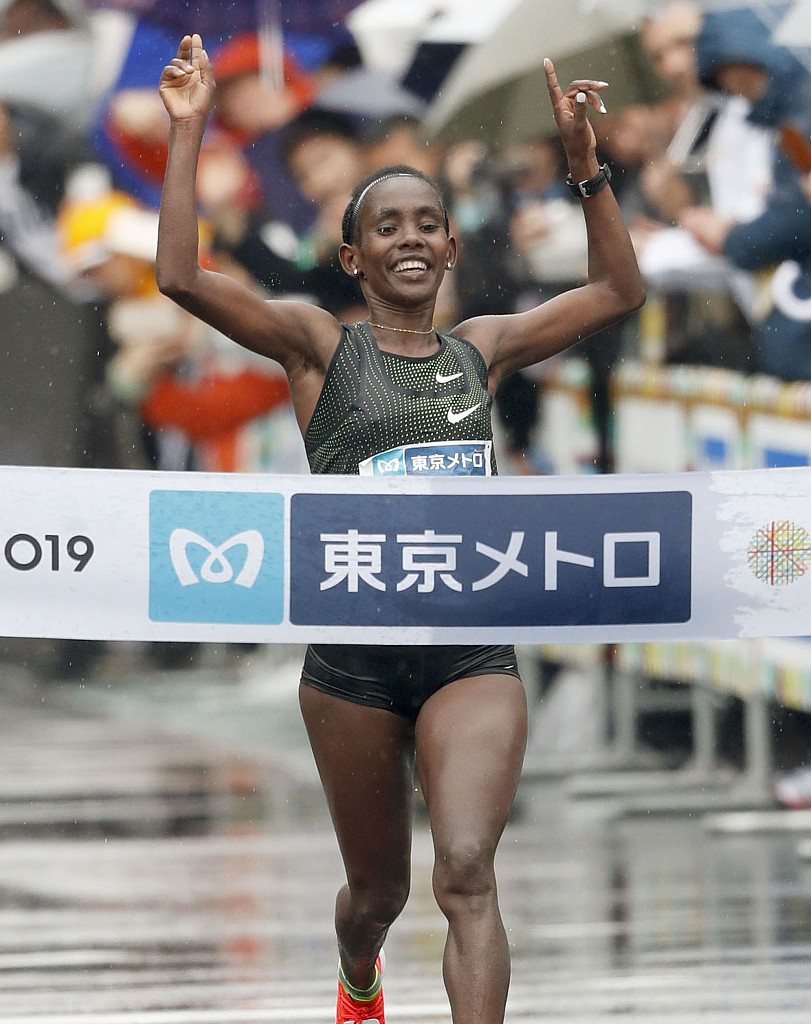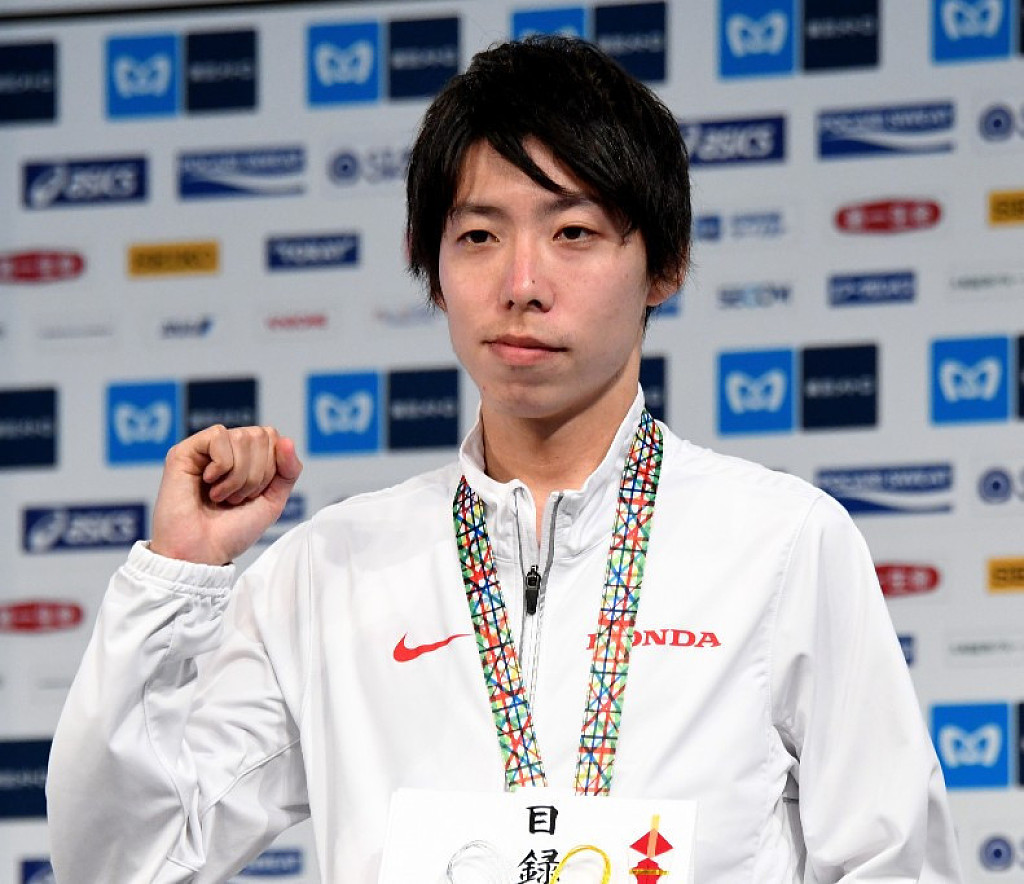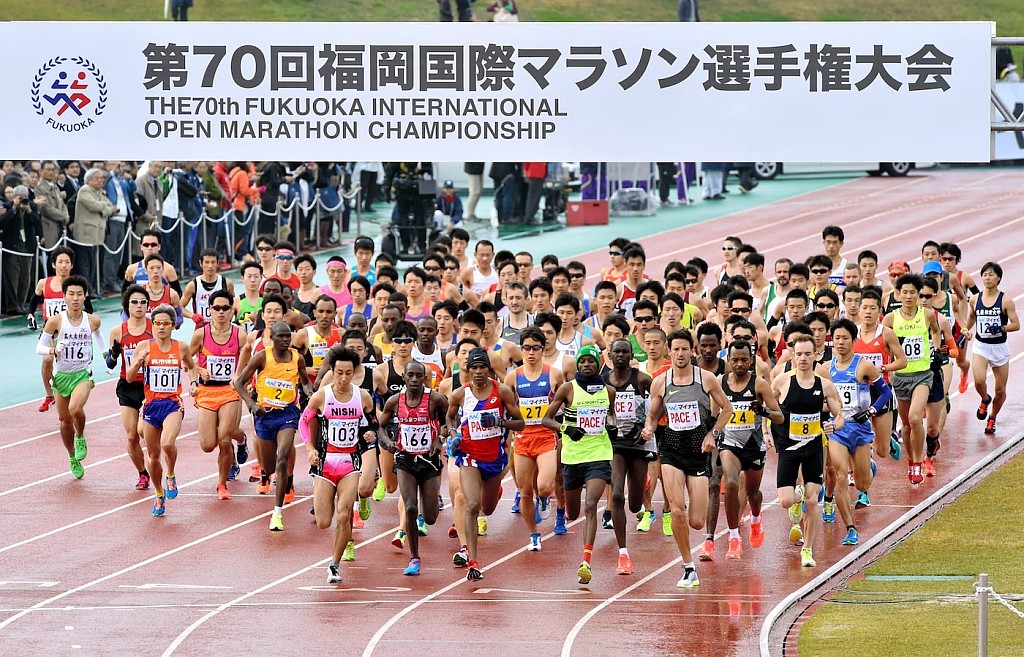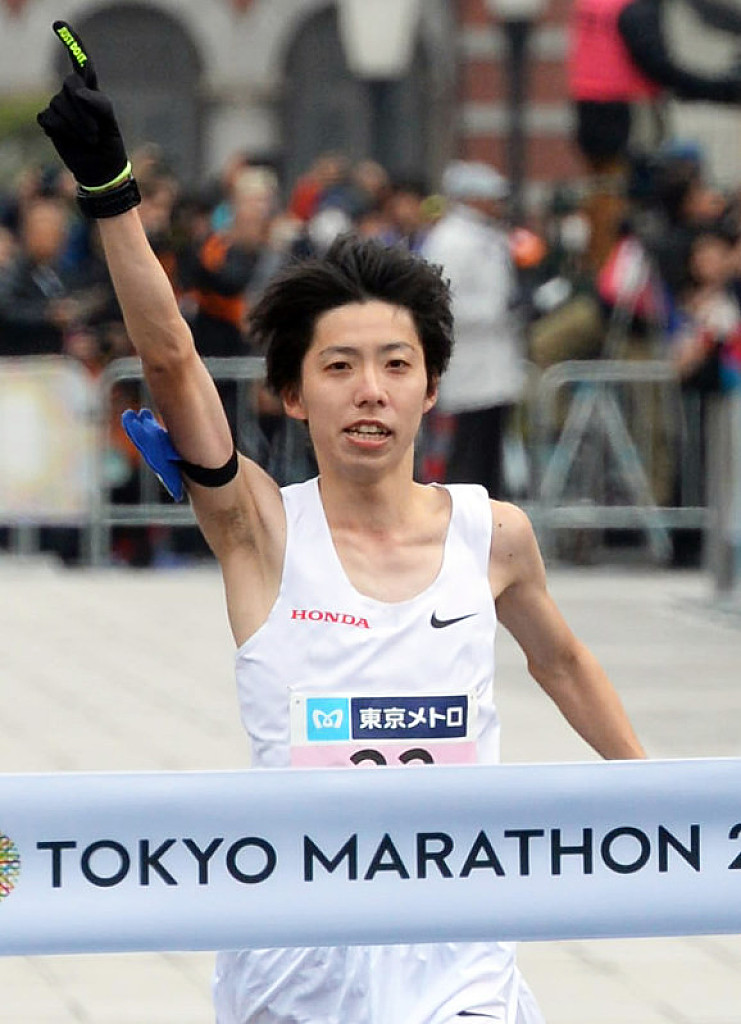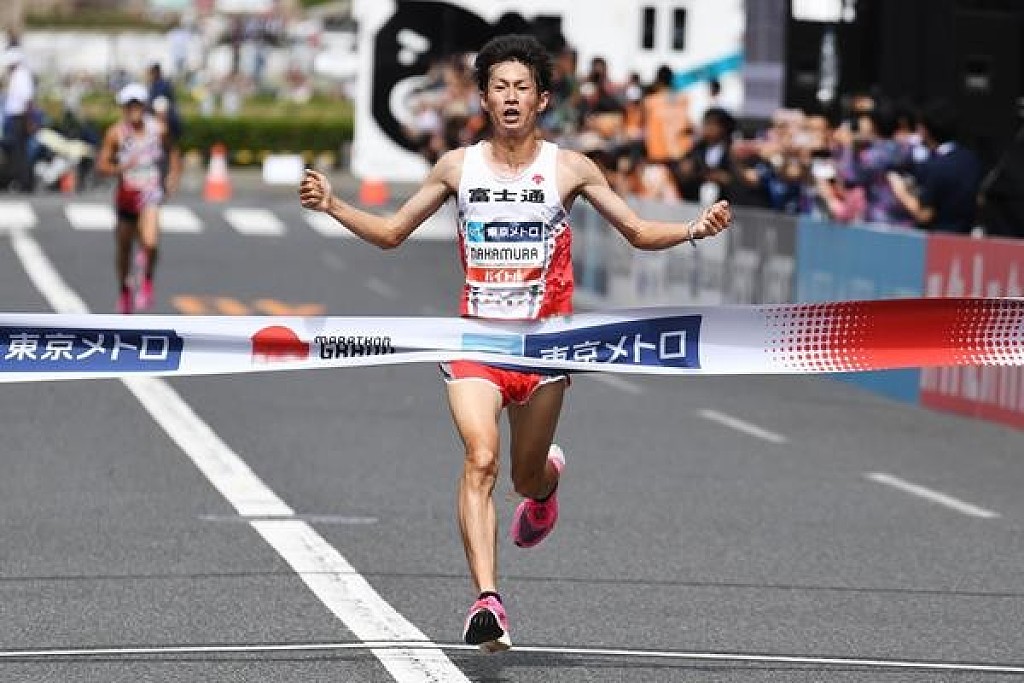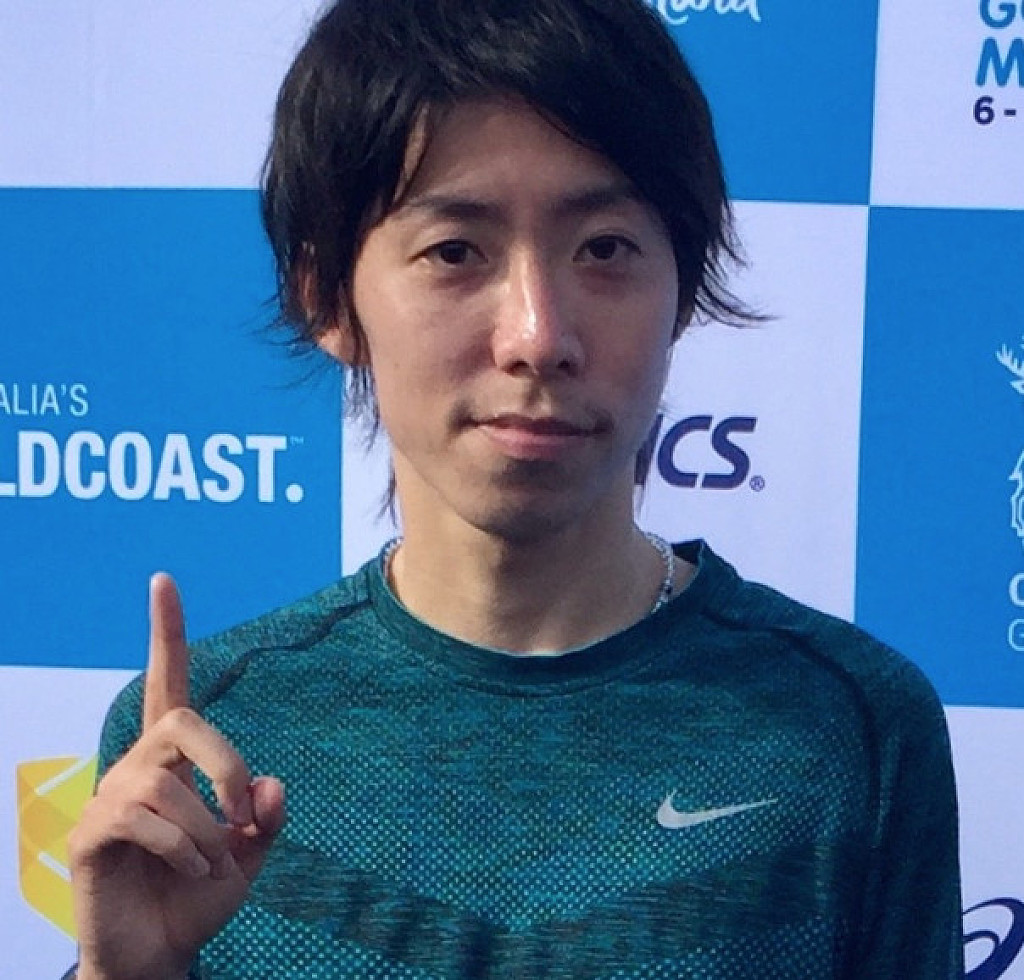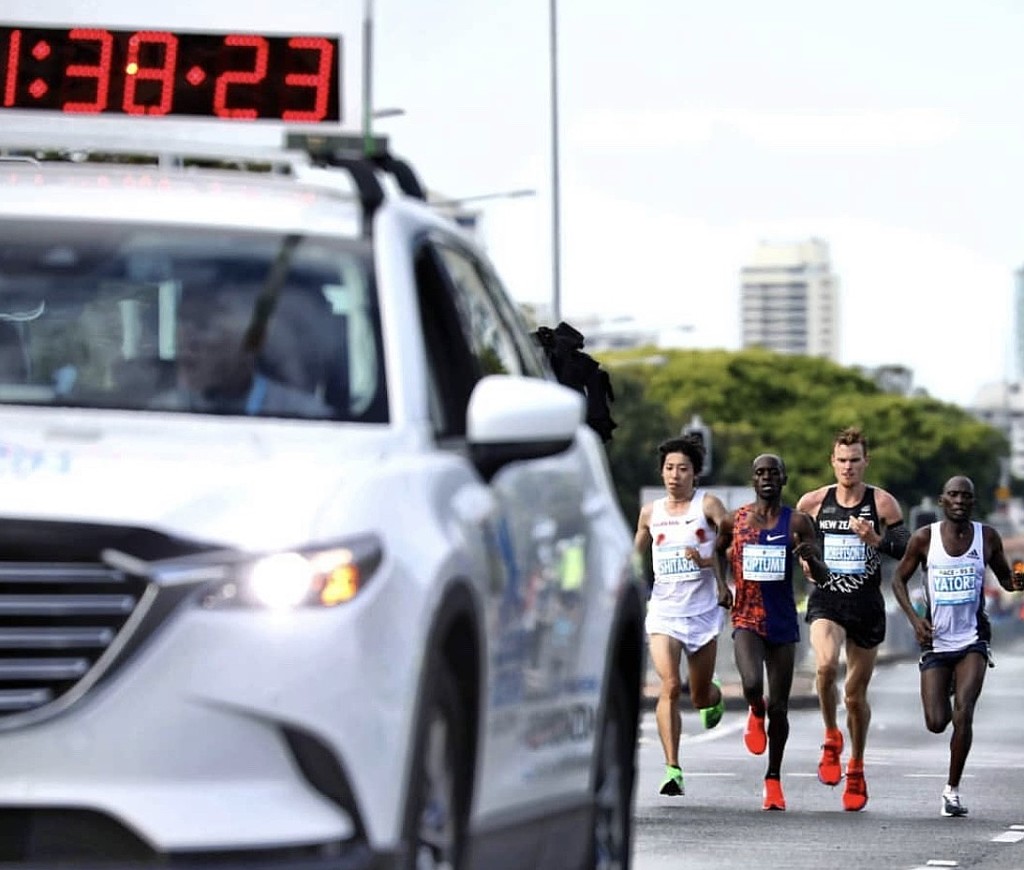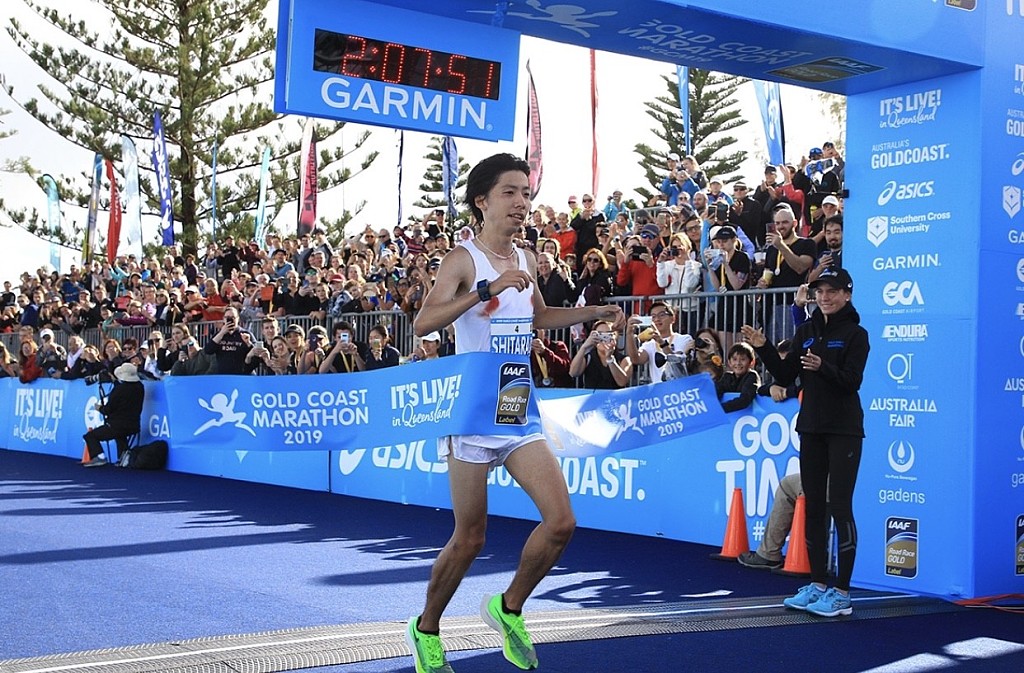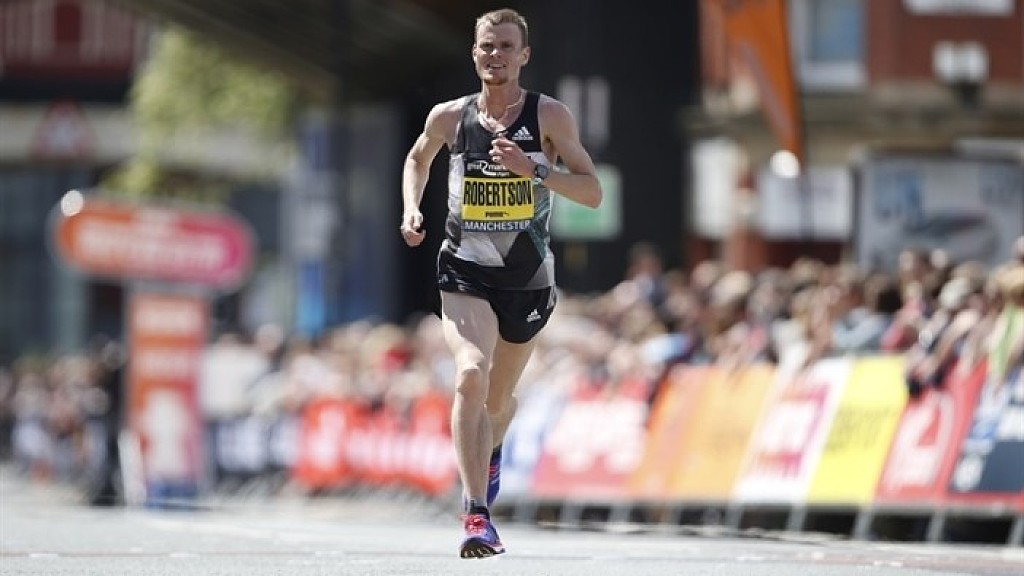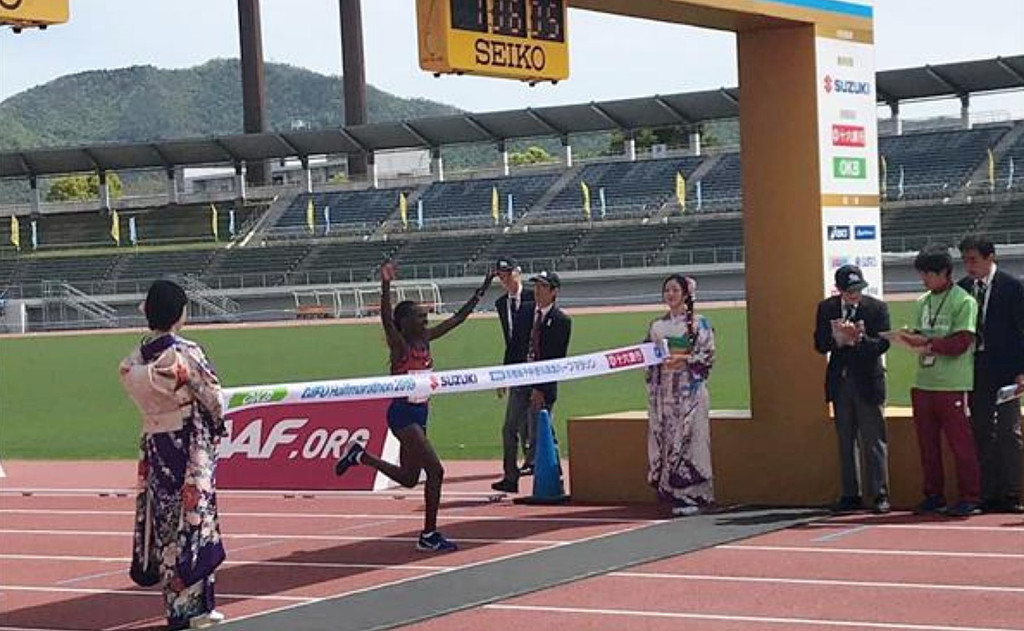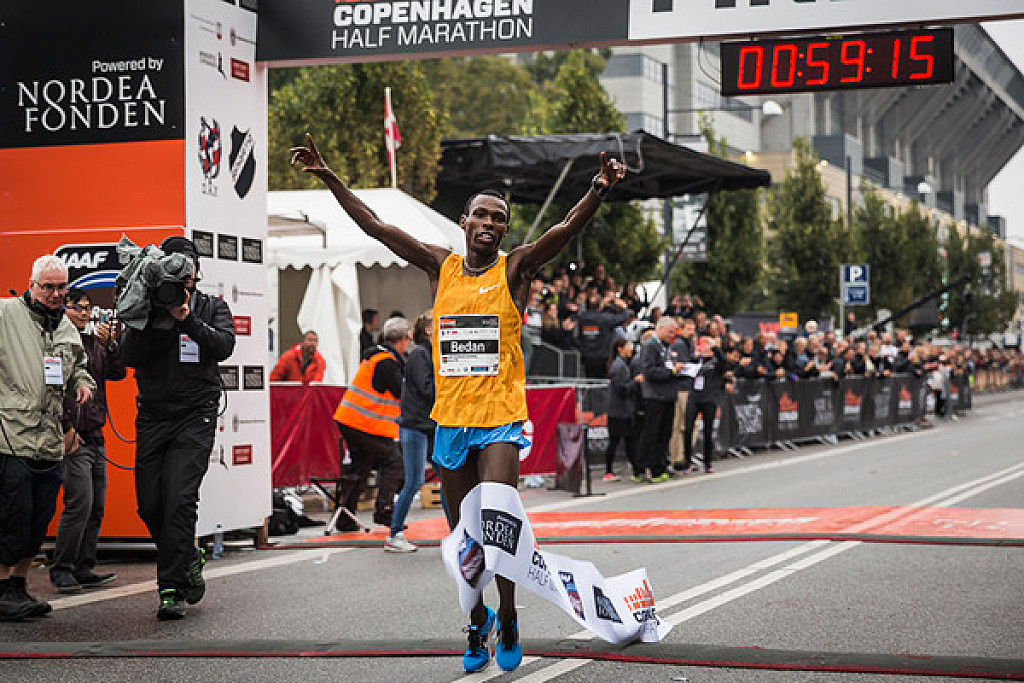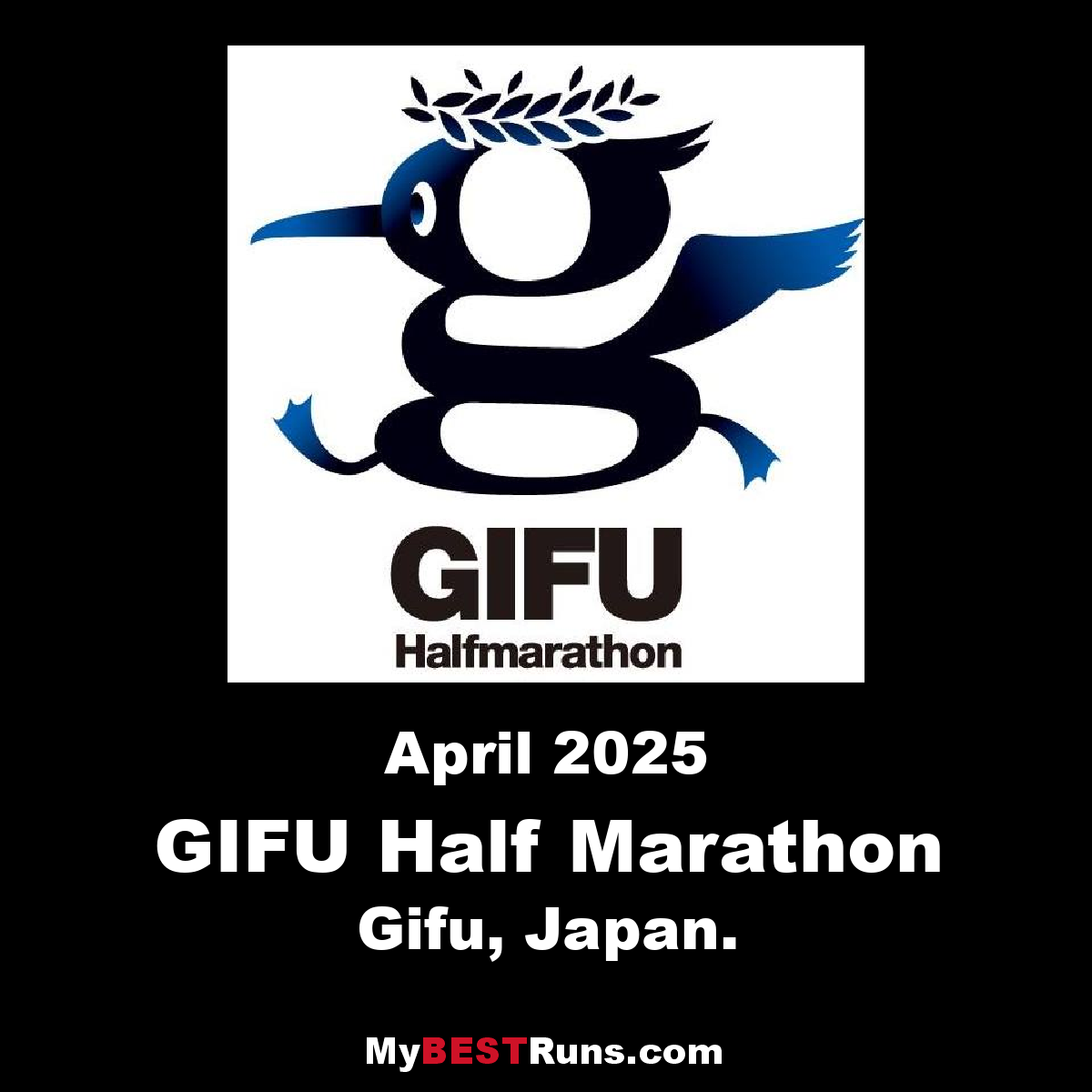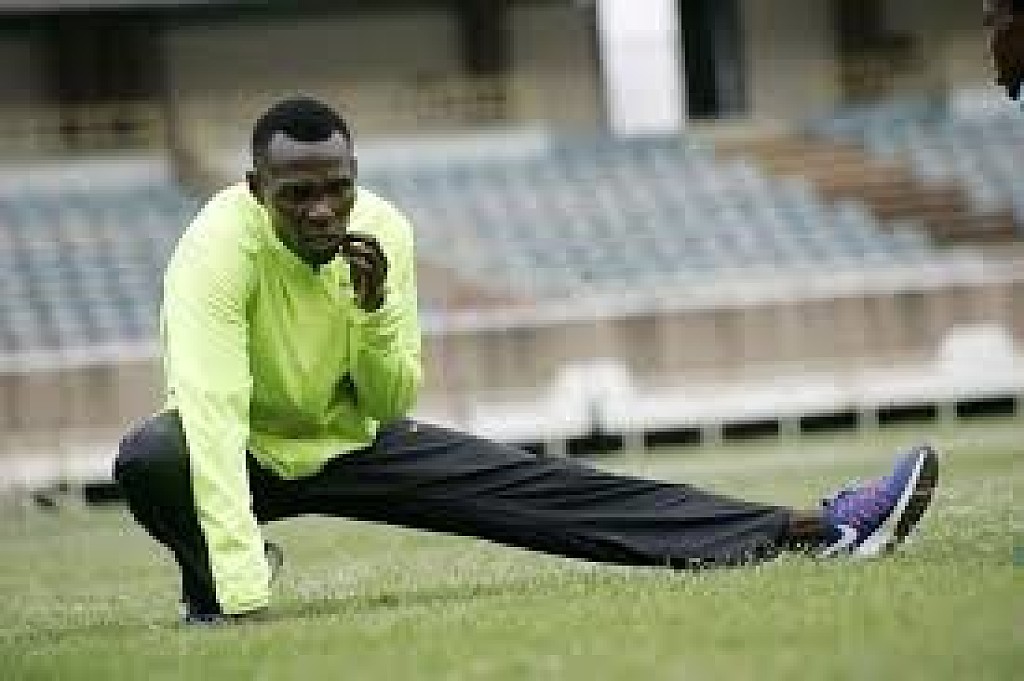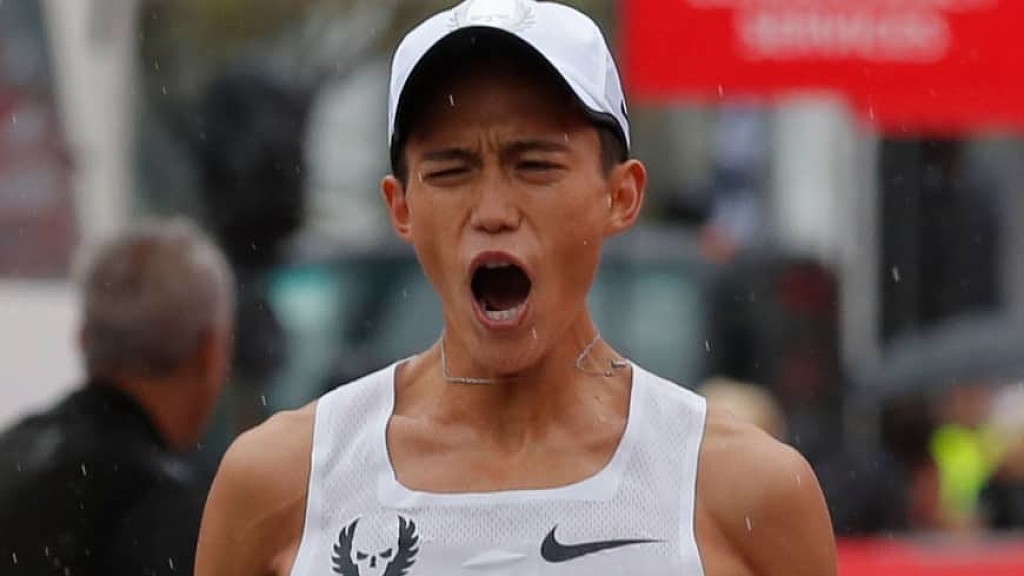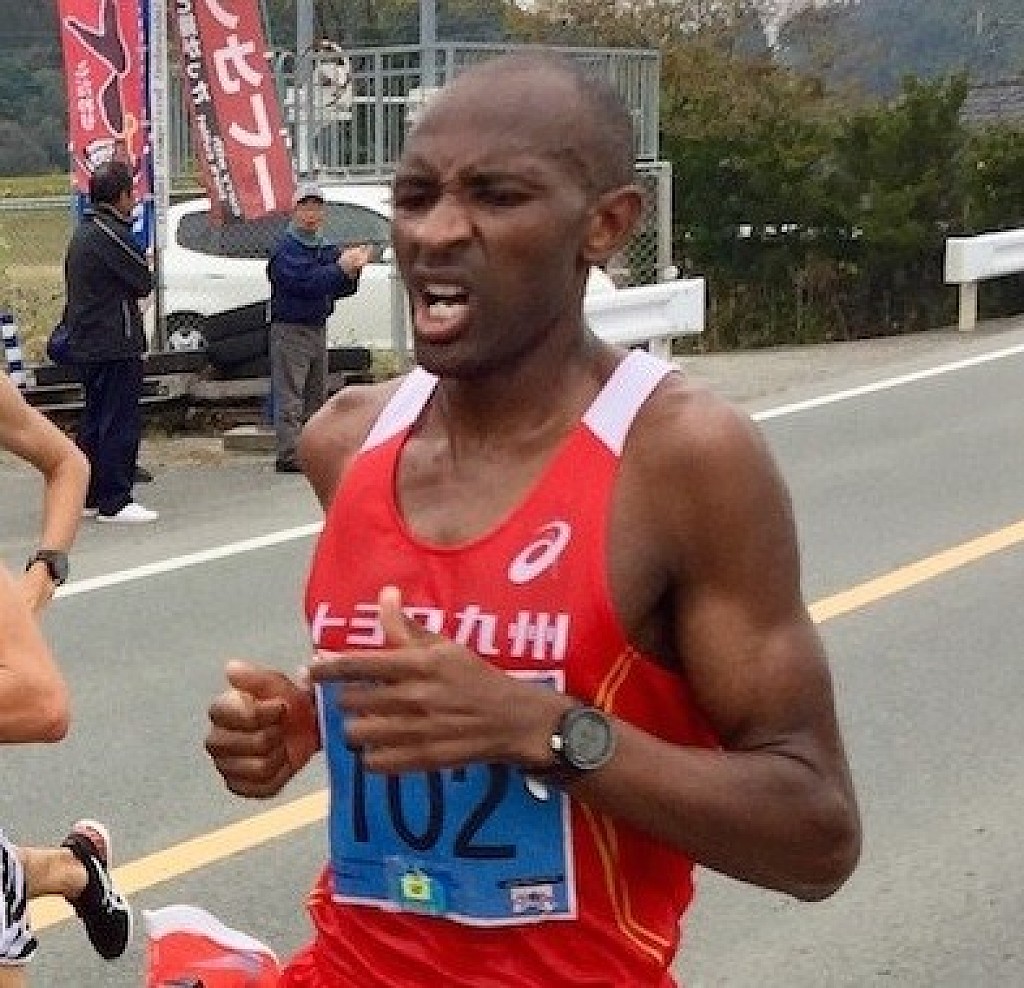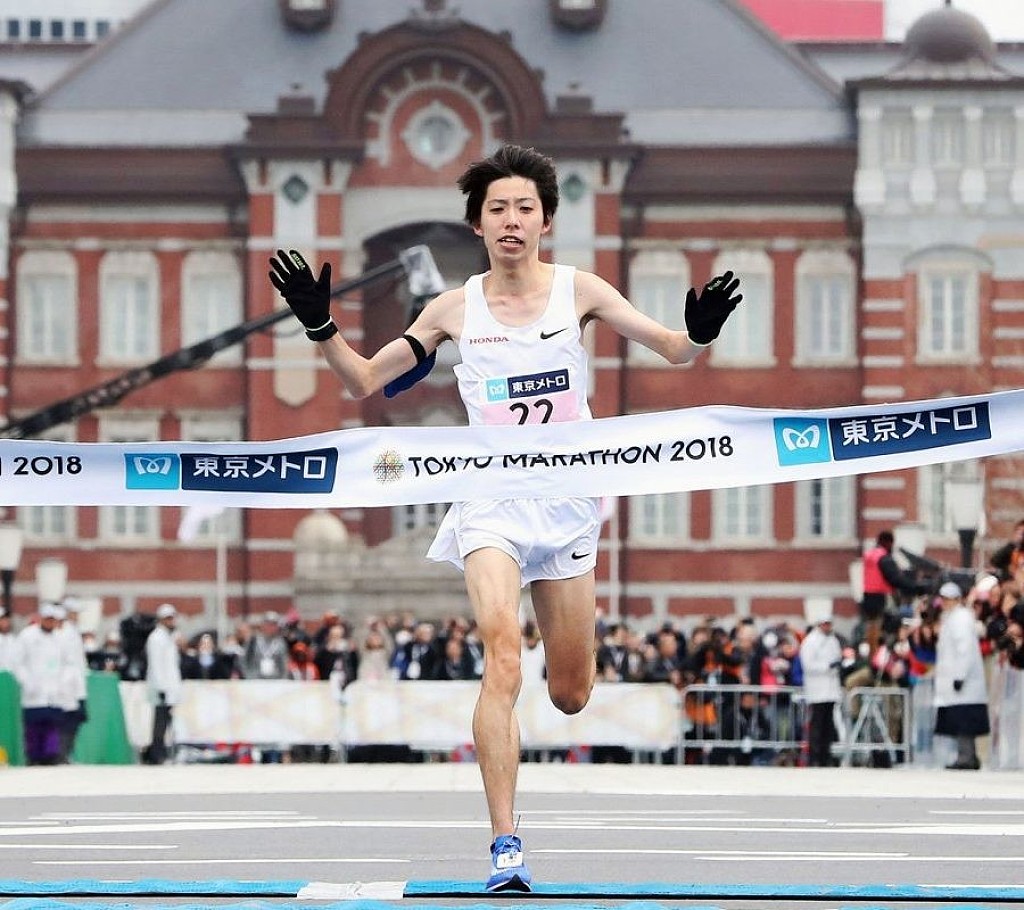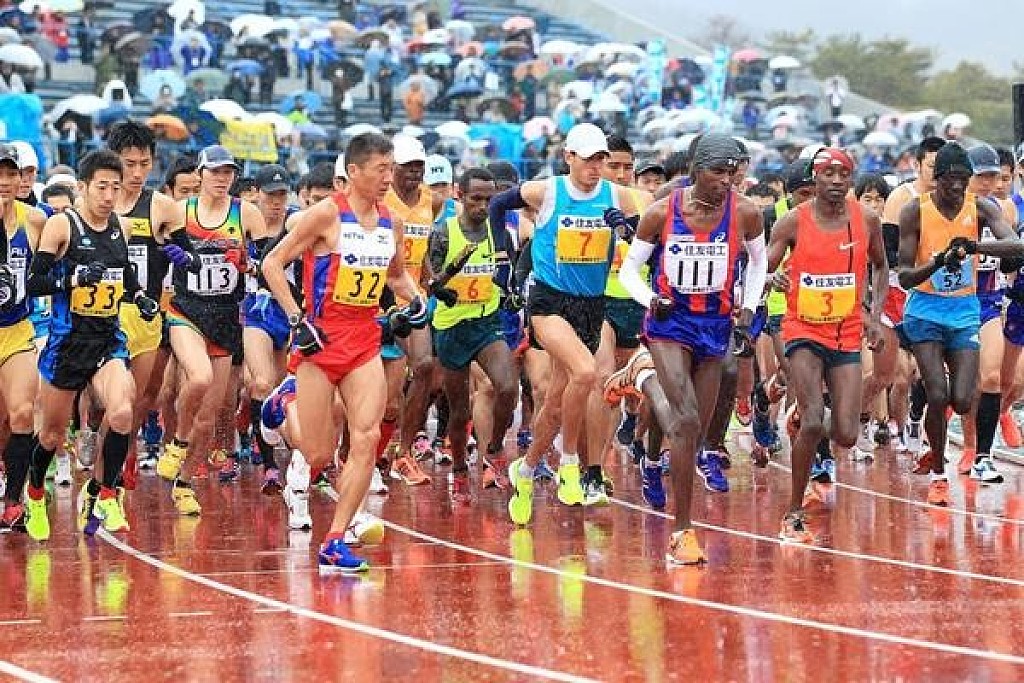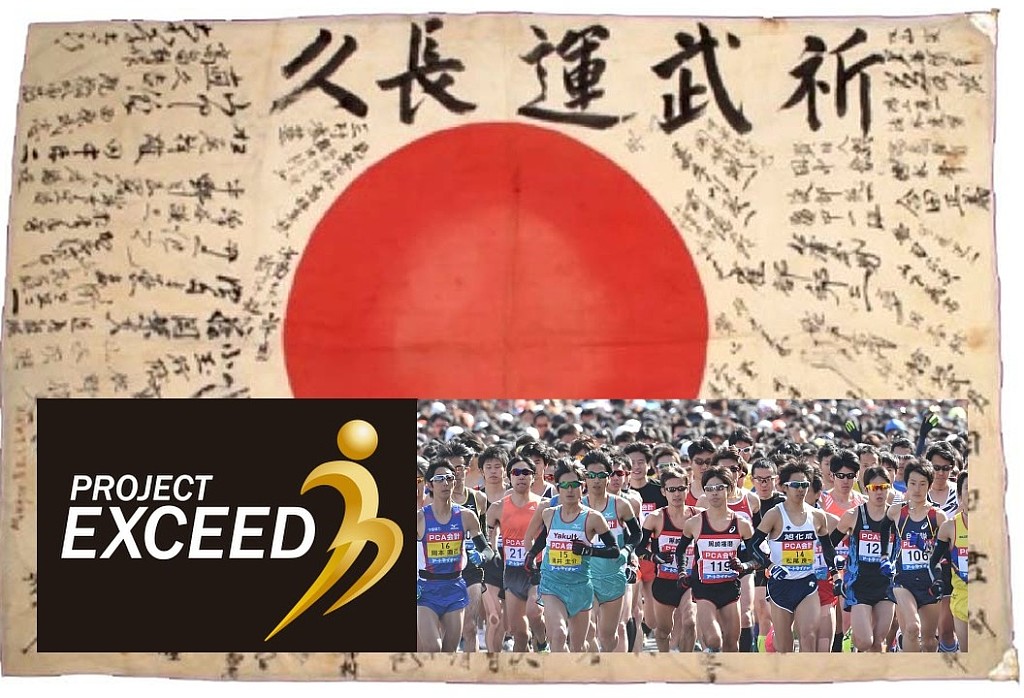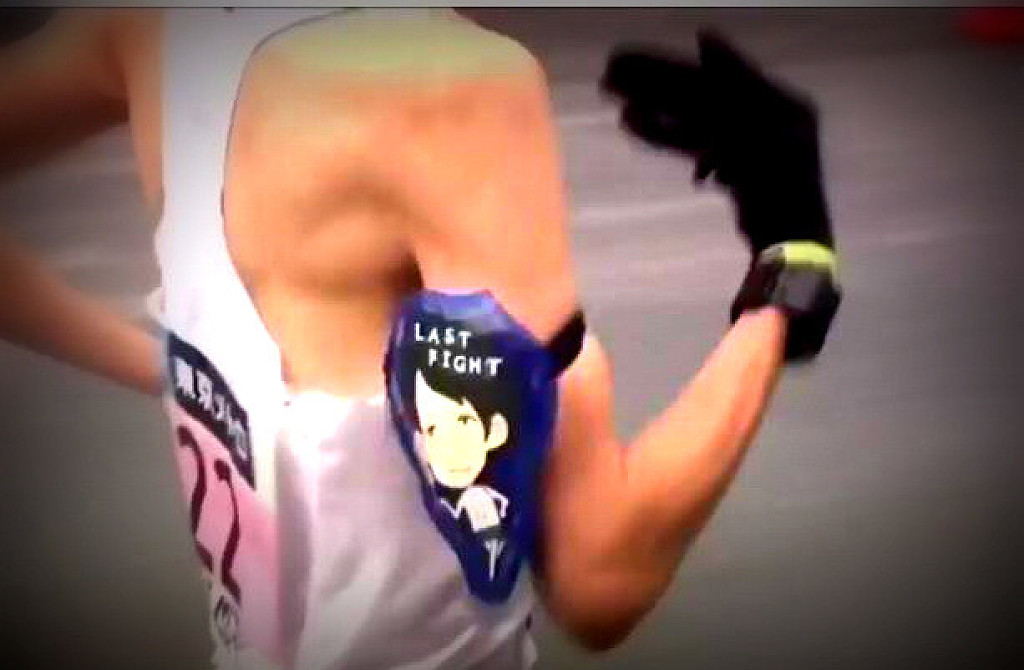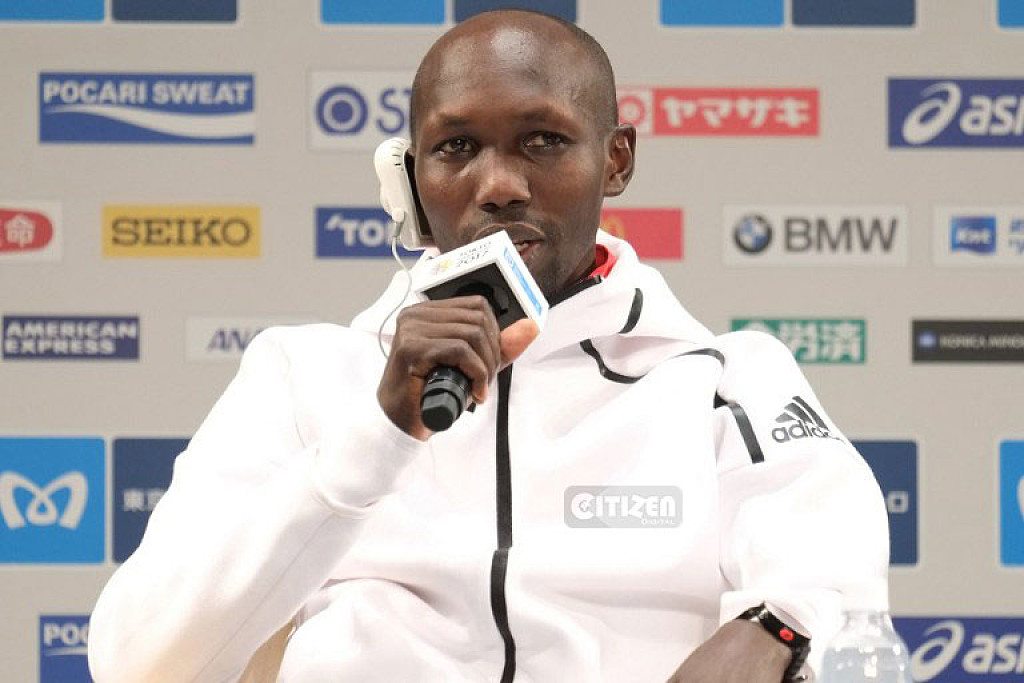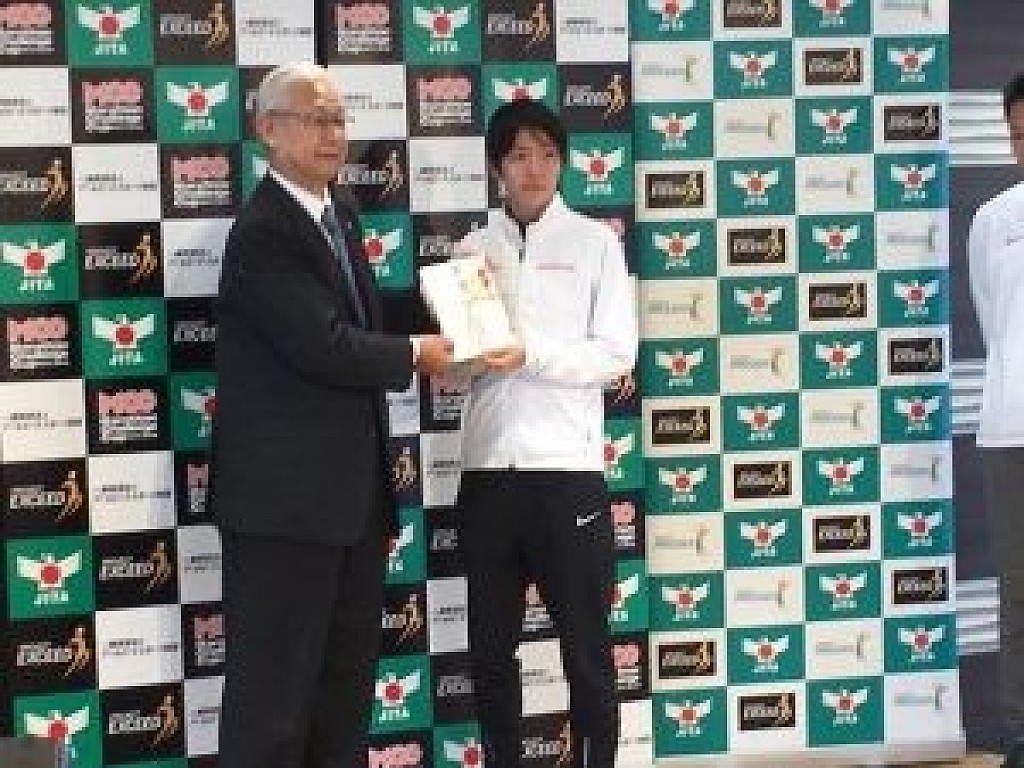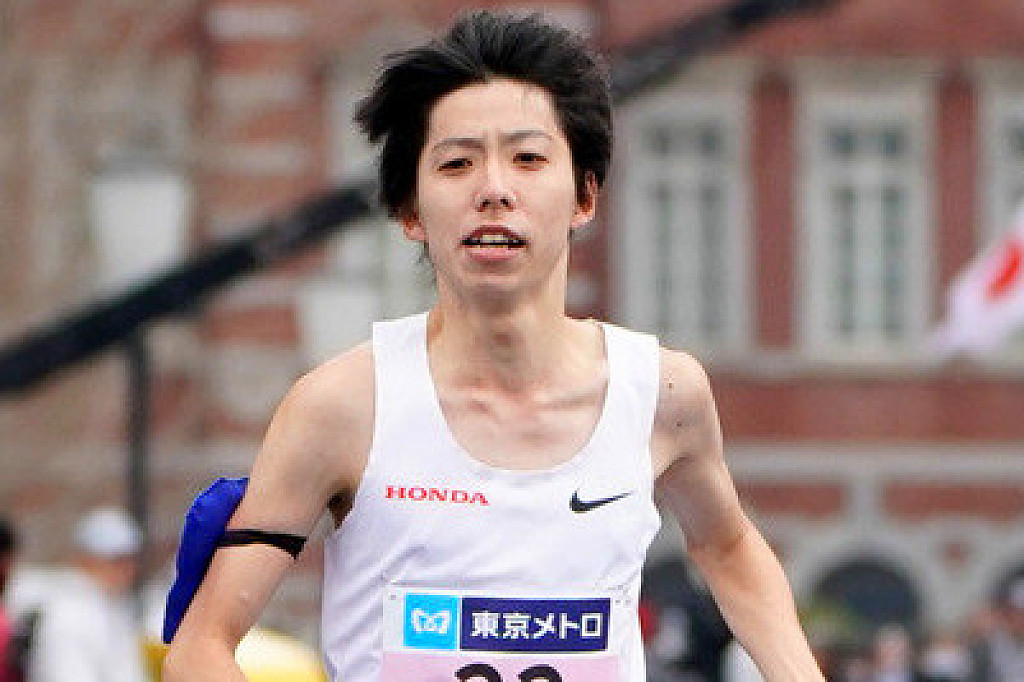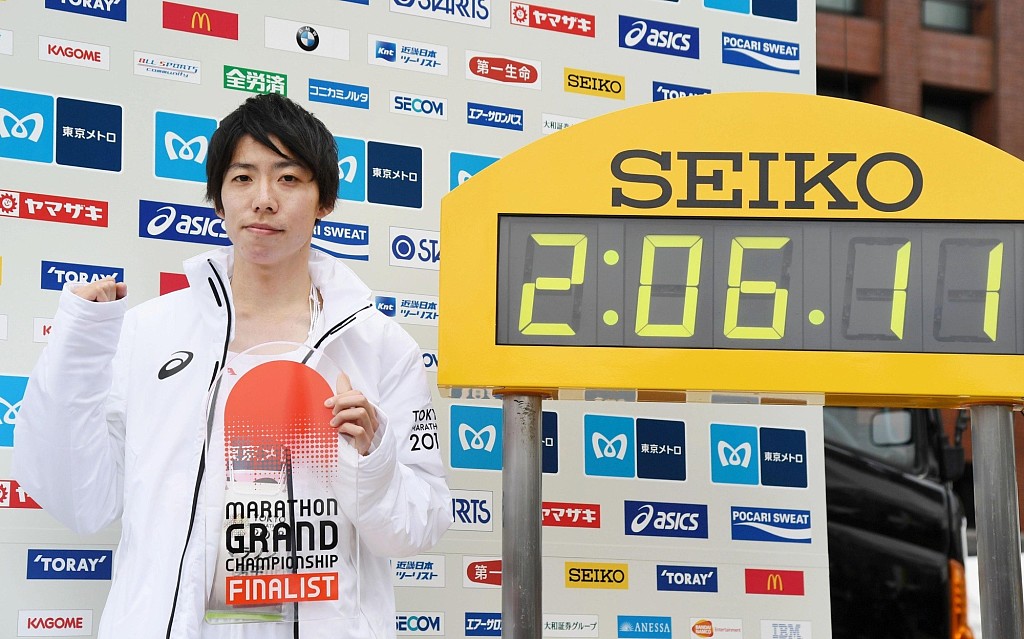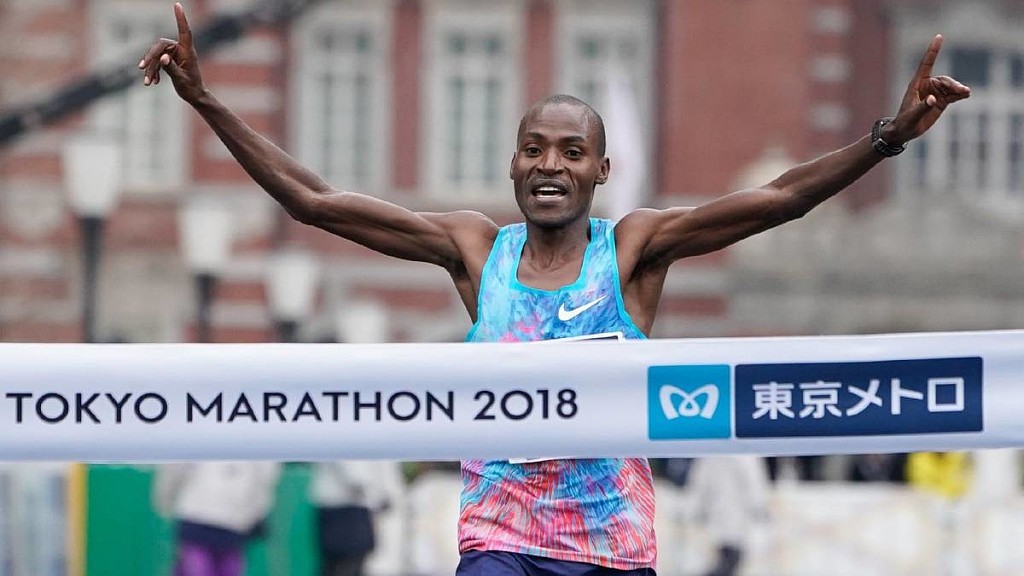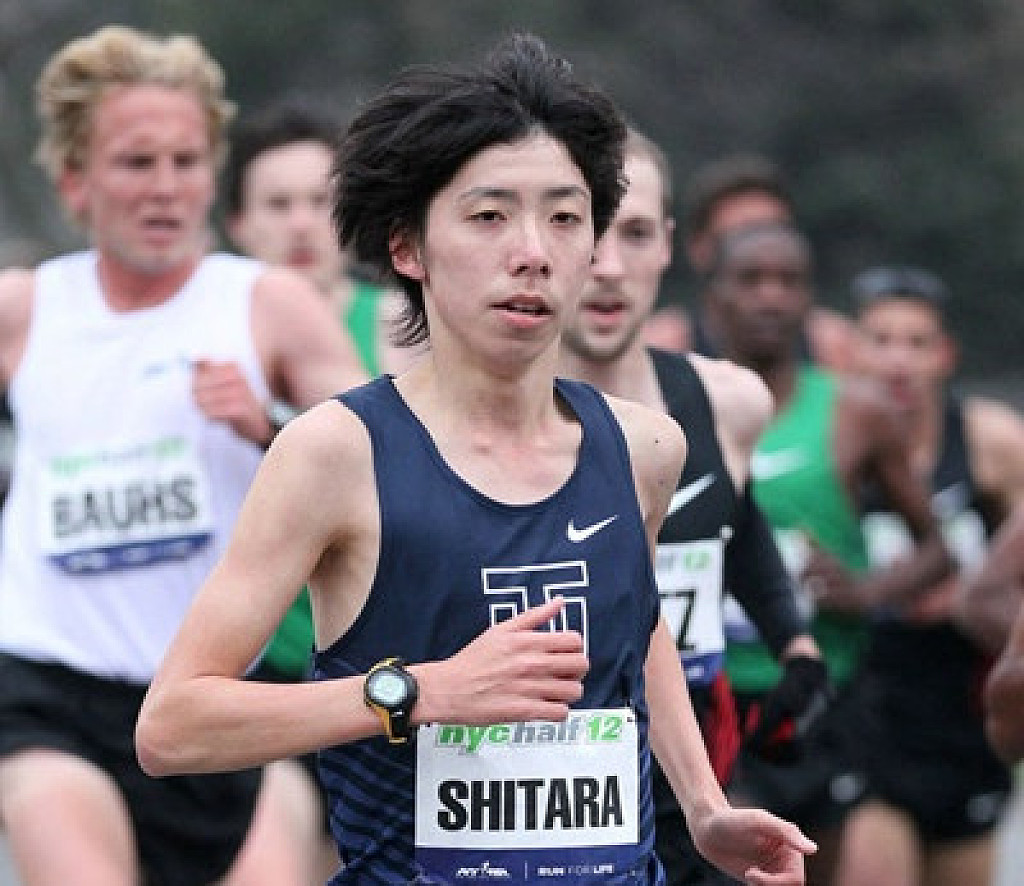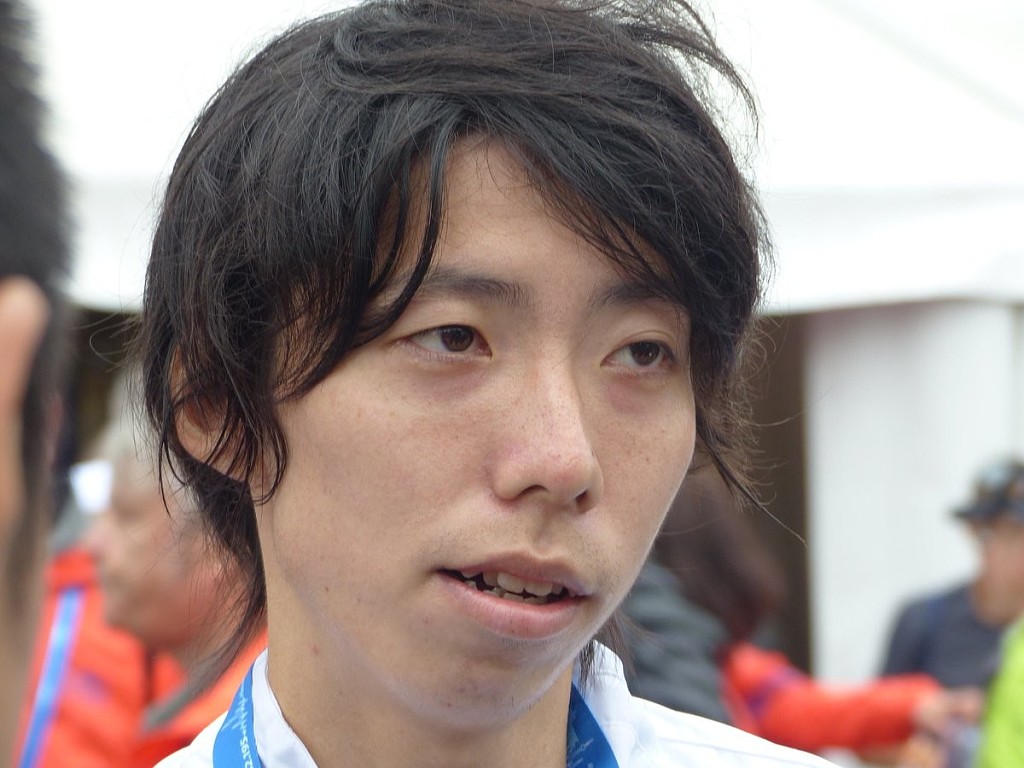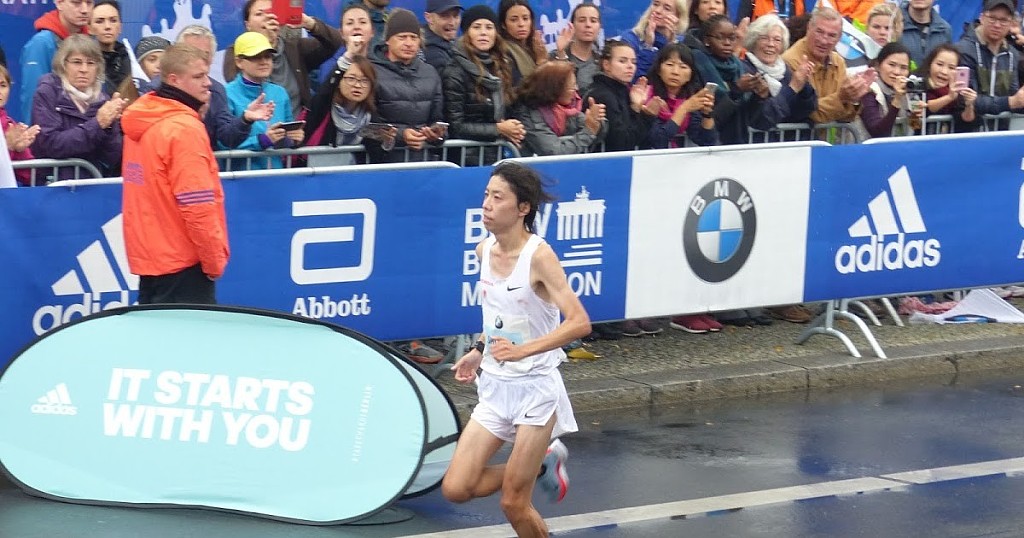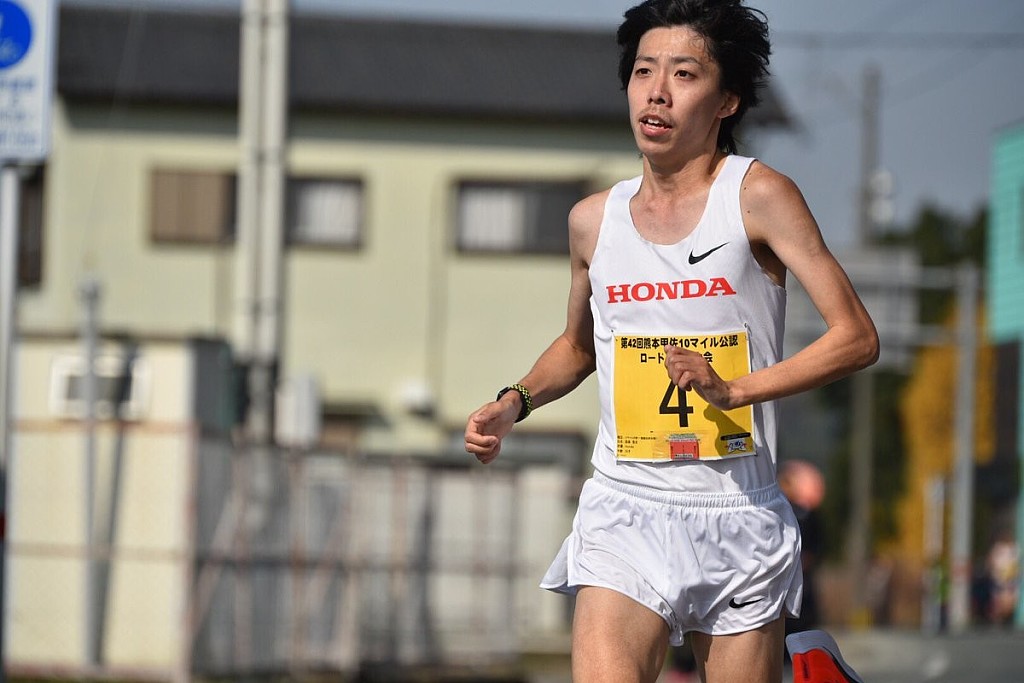Running News Daily
Running News Daily is edited by Bob Anderson. Send your news items to bob@mybestruns.com Advertising opportunities available. Train the Kenyan Way at KATA Kenya and Portugal owned and operated by Bob Anderson. Be sure to catch our movie A Long Run the movie KATA Running Camps and KATA Potato Farms - 31 now open in Kenya! https://kata.ke/
Index to Daily Posts · Sign Up For Updates · Run The World Feed
Articles tagged #Yuta Shitara
Today's Running News
Koech, Wanjiru spearhead Team Kenya in Sunday's Tokyo race
Bernard Koech will lead a strong Kenyan contingent for the Tokyo Marathon this Sunday.
Koech, who has a personal best of 2:04:09 set at the Amsterdam Marathon in 2021, where he finished second.
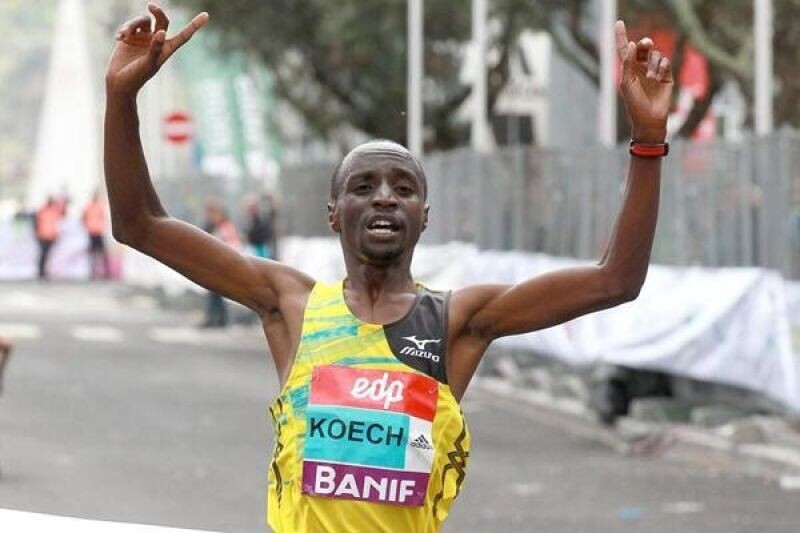
Kenya's Mike Kipruto Boit, Brimin Misoi and Vincent Raimoi are also contenders for the title.
The Kenyan quarter will, however, face a stern test from 2021 London Marathon champion Sisay Lemma of Ethiopia.
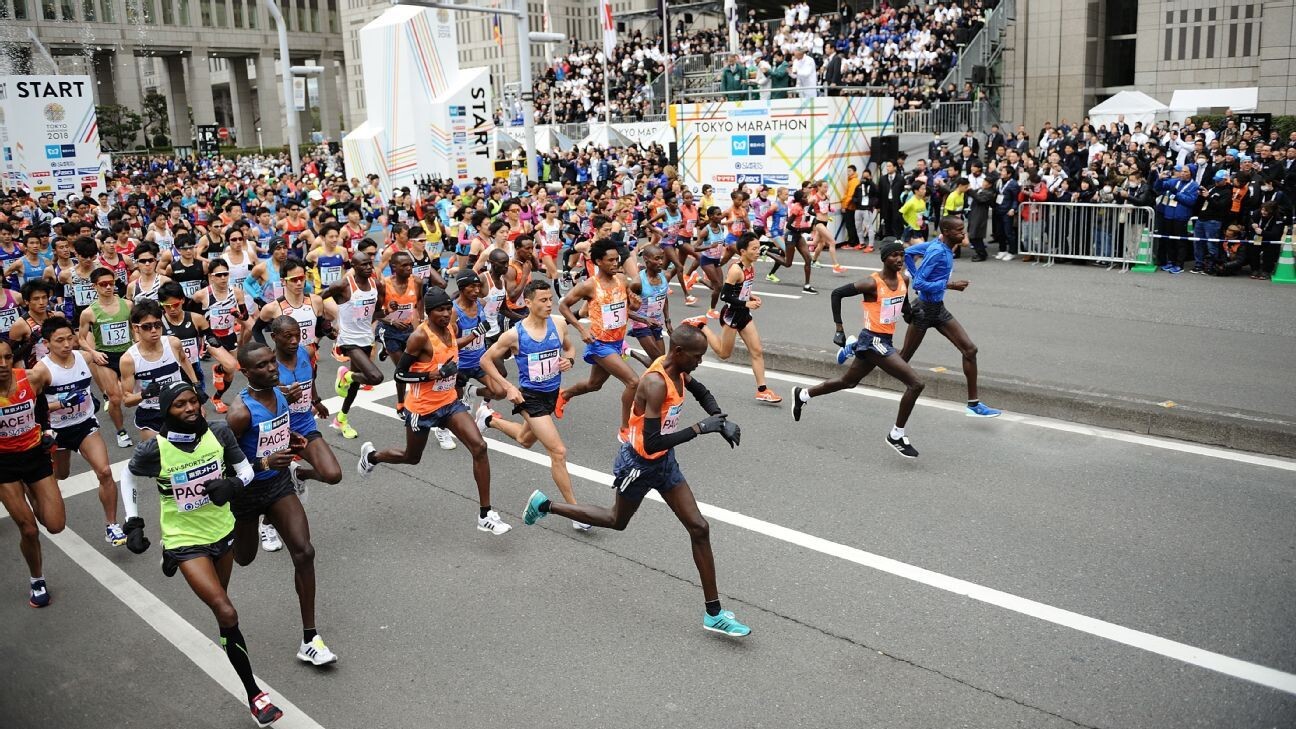
Lemma won the London Marathon in 2:04:01 and will have compatriots Tsegaye Getachew, Mohamed Esa, and Deme Tadu Abate for the company as he seeks to add another feather to his hat.
Getachew has a personal best of 2:04:49 posted while winning the Amsterdam Marathon last year while Esa's PB is 2:05:05 recorded while placing fifth in Amsterdam in 2022. Abate's PB of 2:06:28 was achieved in Berlin, where he placed third last year.
Japan had entered the last three national record holders, Kengo Suzuki, Suguru Osako and Yuta Shitara but the withdrawal of Suzuki last month leaves two to battle for the honours.
Osako is the fastest Japanese man in the field with a 2:05:29 set in Tokyo three years ago.
Hidekazu Hijikata, Kyohei Hosoya, Ryu Takaku and Hiroto Inoue have all run 2:06 and another nine Japanese men on the list have run 2:07.
At the pre-race press conference, Japan's most consistent marathoner over the last few years, Hosoya said he is in great shape and will be going for the Japanese NR and at a minimum the top Japanese spot.
In the women's category, Rosemary Wanjiru will spearhead Kenya's quest for glory in the Japanese capital.
Wanjiru has a personal best of 2:18:00 posted when she finished second in the Berlin Marathon last year.
She will have fellow Kenyan and 2022 Toronto Marathon champion Antonina Kwambai for the company. Another Kenyan Betsy Saina will be among the athletes to watch. Saina is back from maternity leave and ran a promising 1:08:25 for the win at the Seville Half Marathon earlier this year.
Ashete Bekere of Ethiopia is the race favourite with a personal best time of 2:17:58 when finishing second at the event in 2021.
Others to look out for the title include compatriots Tigist Abaychew and Worknesh Edesa.
by William Njuguna
Login to leave a comment
Tokyo Marathon
The Tokyo Marathon is a world-renowned annual marathon held in Tokyo, Japan. As one of the prestigious Abbott World Marathon Majors, it attracts elite and amateur runners from around the globe. The race holds World Athletics Platinum Label status, recognizing its high competitive standards, top-tier organization, and international appeal. Sponsored by Tokyo Metro, the Tokyo Marathon has grown into one...
more...Moses Kibet wins Sydney marathon in record time on Australian soil
Kenyan Moses Kibet has claimed a historic victory in the Sydney marathon as the top three finishers all bettered the previous fastest time on Australian soil.
Kibet clocked a winning time of two hours, seven minutes and three seconds on Sunday, crossing the line just two seconds ahead of countryman Cosmas Matolo.
Ethiopian Chalu Deso Gelmisa – the victor in the Paris marathon earlier this year – was third in 2:07:08.
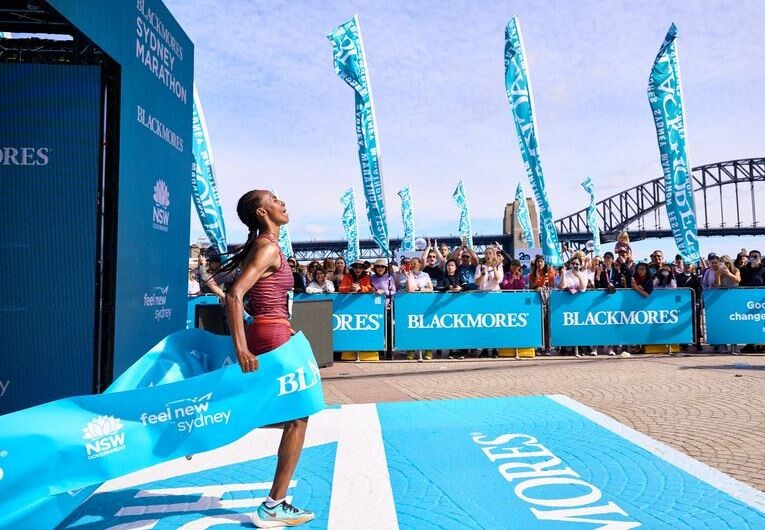
The three Africans smashed the Australian all-comers record of 2:07:50 set by Japan’s Yuta Shitara on the Gold Coast in 2019.
Ethiopia’s Tigist Girma Getachew won the women’s marathon in 2:25:10 ahead of compatriot Letebrhan Haylay Gebreslasea and Eritrea’s Nazret Weldu Gebrehiwet.
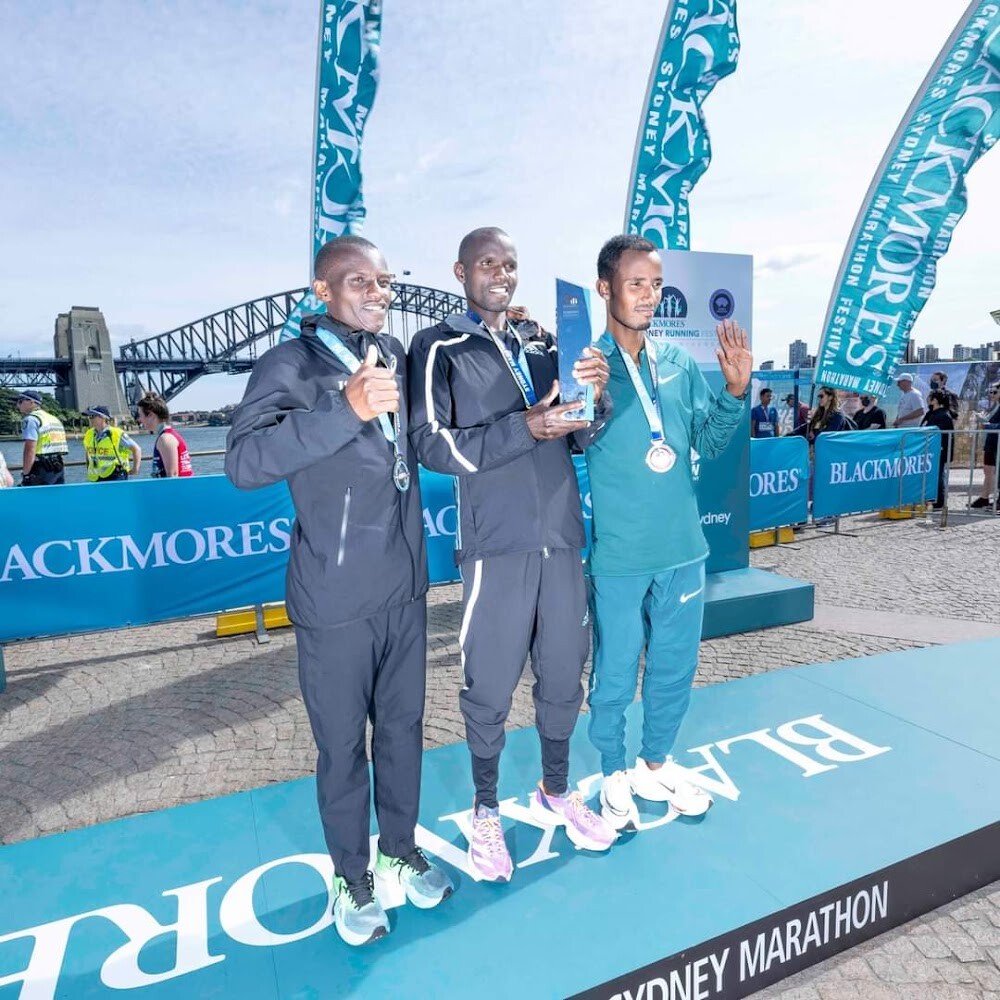
Jun Hiromichi won the men’s wheelchair marathon in 1:52.47, with Australian Richard Colman second in 1:53:28.
Australian Sinead Diver – who was a creditable 10th in the marathon at last year’s Tokyo Olympics – claimed victory in the women’s half-marathon at the Sydney Running Festival in a course record of 1:13:07.
Diver was also fifth in last month’s Birmingham Commonwealth Games marathon which was won by countrywoman Jess Stenson.
The Sydney marathon is in the first year of a three-year candidacy to join the prestigious World Marathon Majors.
Login to leave a comment
Githae wins final edition of Fukuoka Marathon
Michael Githae was victorious at the 75th and final edition of Fukuoka International Marathon on Sunday (5), winning the World Athletics Elite Label road race in 2:07:51.
Githae, who runs for Suzuki track team, improved his previous best of 2:08:17, which he set when finishing fourth at last year’s Fukuoka Marathon. Japan’s Kyohei Hosoya finished second, 25 seconds adrift of Githae.
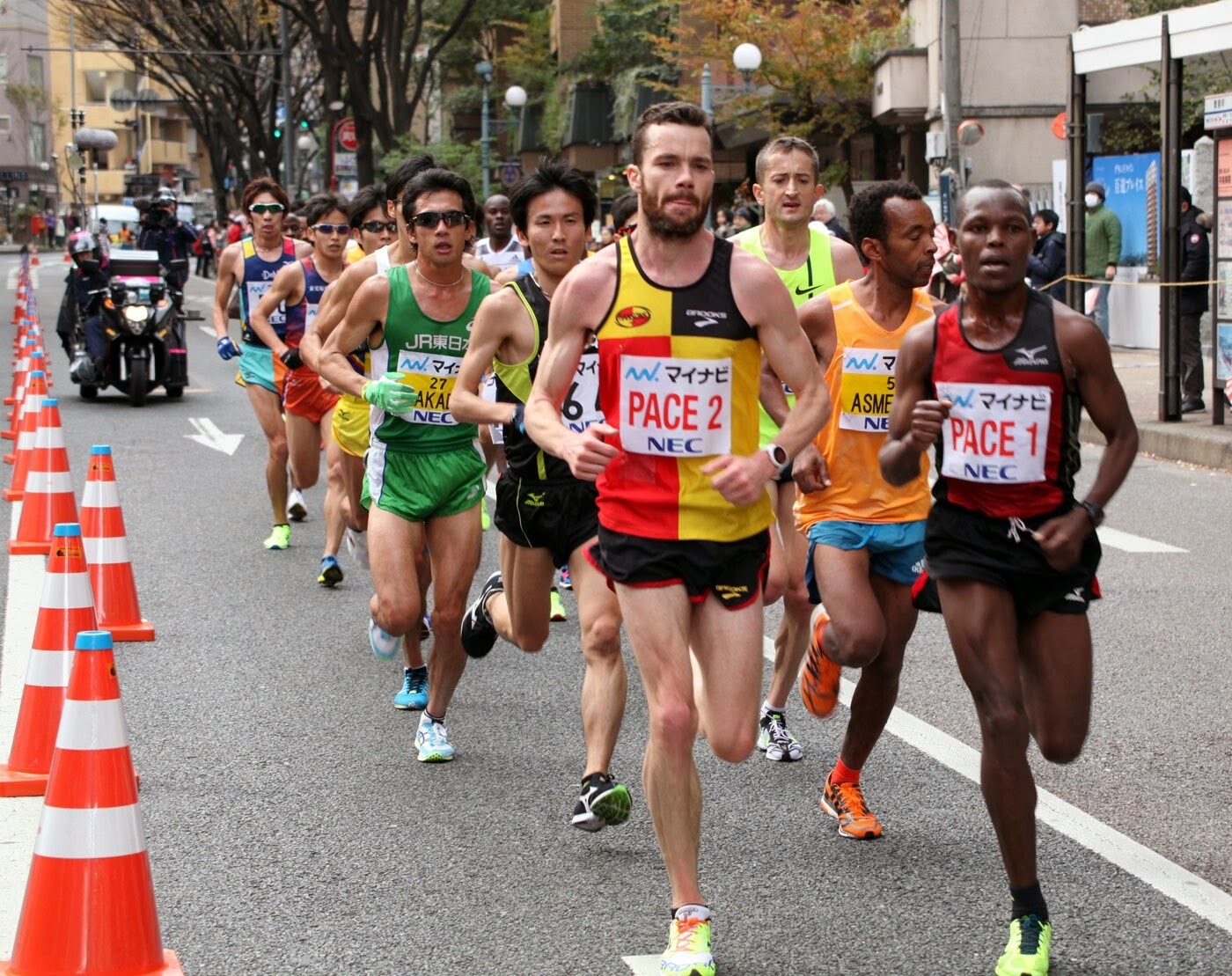
The pacers, led by 2012 Olympian Yuki Sato, directed the huge lead pack through 5km (14:47), 10km (29:39), 15km (44:30) and 20km (59:24) in what turned out to be something of a race of attrition. Yuta Shitara was one of the athletes to fall out of contention before the half-way stage; the former national marathon record-holder dropped out at 20km.
The half-way point was reached in 1:02:41, meaning an attack on the 2:05:18 course record was not out of the question. Simon Kariuki and Charles Wanjiku kept the pace going at the start of the second half, and 30km was reached in 1:29:08. But the pacemakers dropped out soon after, and the pace dramatically slowed down.
Nevertheless, the pack became strung out to almost a single file, and by 34km just Githae, James Rungaru, Hosoya and Ryu Takaku remained in contention. Soon after, Githae surged and Hosoya made a valiant effort to stay close but Githae gradually pulled away to win by 25 seconds in 2:07:51.
In third, Rungaru set a PB of 2:08:25, while fourth-placed Shohei Otsuka and Ryu Takaku and Daisuke Uekado in fifth and sixth respectively were just outside their PBs. Yuki Kawauchi, running his 12th Fukuoka Marathon, fittingly finished 12th in 2:11:33. He is planning on running the Hofu Marathon in two weeks’ time.
Looking back at Fukuoka's history
The Fukuoka International Marathon – which was awarded a World Athletics Heritage Plaque in 2019 – started in 1947 and is the second oldest marathon in Japan behind the now defunct Lake Biwa Marathon.
In its 75-year history, the world record was broken twice there – first in 1967 when Derek Clayton became the first runner to break 2:10 with 2:09:37, and then in 1981 when fellow Australian Rob de Castella ran 2:08:18.
De Castella isn’t the only global marathon champion to have contested the race over the years. Frank Shorter, the 1972 Olympic champion, notched up four consecutive Fukuoka Marathon victories between 1971 and 1974. 2000 Olympic champion Gezahegn Abera won in 1999, 2001 and 2002, while 1996 Olympic champion Josiah Thugwane won in 1997. The late Samuel Wanjiru, winner of the 2008 Olympic title, made a remarkable marathon debut in Fukuoka in 2007, winning in 2:06:39. And two-time world champion Jaoud Gharib won in 2010.
Numerous world record-holders have also competed in Fukuoka, including Haile Gebrselassie (winner in 2006), Belayneh Dinsamo (1990 winner) and Patrick Makau (2014 and 2015 champion).
Japanese runners have also enjoyed moments of victory in Fukuoka. Toshihiko Seko won four times (1978-1980 and 1983), and Takeyuki Nakayama won twice (1984 and 1987). During his 1987 run, Nakayama was on world record pace through 20km (58:37) and 35km until a heavy downpour in the closing stages slowed him down, and he eventually finished in 2:08:18.
When asked about the end of the Fukuoka Marathon, four-time winner Seko said: “It is like part of my history is being erased.”
Japan Running News, a leading authority on the sport in Japan, has produced a docu-film on the Fukuoka Marathon, entitled ‘Inside the Outside – When the World Came to Fukuoka’.
Leading results
1 Michael Githae (KEN) 2:07:512 Kyohei Hosoya (JPN) 2:08:163 James Rungaru (KEN) 2:08:254 Shohei Otsuka (JPN) 2:08:335 Ryu Takaku (JPN) 2:08:386 Daisuke Uekado (JPN) 2:08:567 Kohei Futaoka (JPN) 2:09:148 Masaya Taguchi (JPN) 2:09:359 Toshiki Sadakata (JPN) 2:10:3110 Takuma Kumagai (JPN) 2:10:4111 Ryota Komori (JPN) 2:11:3212 Yuki Kawauchi (JPN) 2:11:33
Login to leave a comment
Hosoya, Takaku and Uekado Will Lead Fukuoka International Marathon's Final Elite Field
With just over a month to go until its final edition, on Nov. 1 the organizers of the Fukuoka International Marathon held a press conference to announce its last elite field. For the second year in a row it's domestic-only, headlined by Kyohei Hosoya (Kurosaki Harima), 2:06:35 at the final Lake Biwa Marathon this past spring, Ryu Takaku (Yakult), 2:06:45 in Tokyo last year, and Daisuke Uekado (Otsuka Seiyaku), 2:06:54 in Tokyo just behind Takaku.
Out of a total field of 124, along with the 3 sub-2:07 guys there are 11 sub-2:08, 18 sub-2:09, 25 sub-2:10 and many more at the sub-2:11 and sub-2:12 levels. It's an even bigger front end than was on the entry list at the record-breaking final Lake Biwa Marathon earlier this year, and for a domestic field it's one worthy of sending off Fukuoka's 75-year history. Last year's winner Yuya Yoshida (GMO), who was scheduled to run October's Tokyo Marathon before it was postponed until March, is absent.
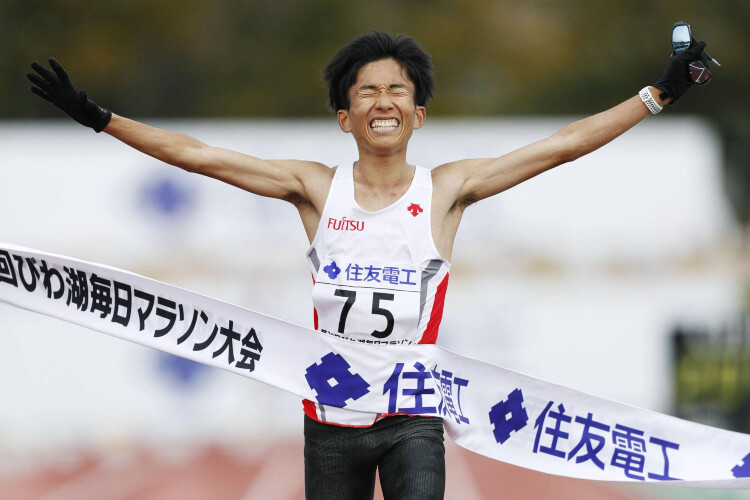
With Japan still holding tight to its border closures the international component of the field is covered by Japan-based internationals Michael Githae (Suzuki), 2:08:17 in Fukuoka last year, Mongolian NR holder Ser-Od Bat-Ochir (Mie T&F Assoc.) past Marugame Half winner Paul Kuira (JR Higashi Nihon), James Gitahi Rungaru (Chuo Hatsujo), Daniel Muiva Kitonyi (Track Tokyo), and the debuting Nicholas Kosimbei (YKK).
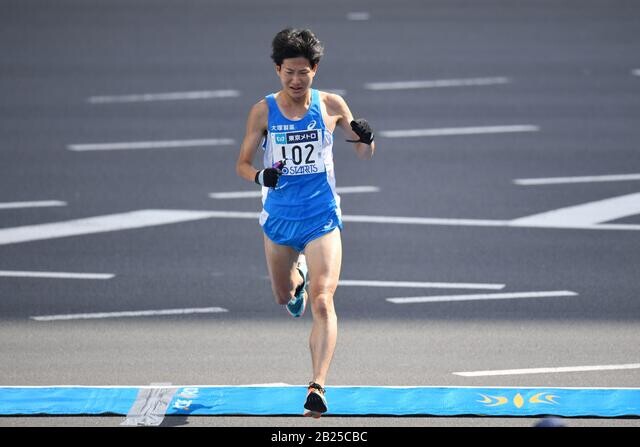
complete field listing
Kyohei Hosoya (Kurosaki Hariima) - 2:06:35 (Lake Biwa 2021)
Ryu Takaku (Yakult) - 2:06:45 (Tokyo 2020)
Daisuke Uekado (Otsuka Seiyaku) - 2:06:54 (Tokyo 2020)
Toshiki Sadakata (Mitsubishi Juko) - 2:07:05 (Tokyo 2020)
Shuho Dairokuno (Asahi Kasei) - 2:07:12 (Lake Biwa 2021)
Shin Kimura (Honda) - 2:07:20 (Tokyo 2020)
Yuki Kawauchi (ANDS) - 2:07:27 (Lake Biwa 2021)
Shohei Otsuka (Kyudenko) - 2:07:38 (Fukuoka Int'l 2020)
Masaru Aoki (Kanebo) - 2:07:40 (Lake Biwa 2021)
Yuta Shitara (Honda) - 2:07:45 (Tokyo 2020)
Atsumi Ashiwa (Honda) - 2:07:54 (Lake Biwa 2021)
Natsuki Terada (JR Higashi Nihon) - 2:08:03 (Fukuoka Int'l 2020)
Kento Otsu (Toyota Kyushu) - 2:08:15 (Lake Biwa 2021)
Michael Githae (Kenya/Suzuki) - 2:08:17 (Fukuoka Int'l 2020)
Junichi Tsubouchi (Kurosaki Harima) - 2:08:35 (Lake Biwa 2021)
Yuji Iwata (Mitsubishi Juko) - 2:08:45 (Tokyo 2020)
Kazuma Kubo (Nishitetsu) - 2:08:53 (Lake Biwa 2021)
Kenta Murayama (Asahi Kasei) - 2:08:56 (Berlin 2019)
Chihiro Miyawaki (Toyota) - 2:09:04 (Tokyo 2020)
Kohei Futaoka (Chudenko) - 2:09:15 (Beppu-Oita 2019)
Shoma Yamamoto (NTT Nishi Nihon) - 2:09:18 (Lake Biwa 2020)
Ser-Od Bat-Ochir (Mongolia/Mie T&F Assoc.) - 2:09:26 (Lake Biwa 2021)
Yoshiki Takenouchi (NTT Nishi Nihon) - 2:09:31 (Fukuoka Int'l 2020)
Takahiro Nakamura (Kyocera Kagoshima) - 2:09:40 (Lake Biwa 2021)
Paul Kuira (Kenya/JR Higashi Nihon) - 2:09:57 (Fukuoka Int'l 2020)
Jo Fukuda (NN Running Team) - 2:10:32 (Beppu-Oita 2020)
Ryota Komori (NTN) - 2:10:33 (Lake Biwa 2021)
Yuki Nakamura (Sumitomo Denko) - 2:10:47 (Lake Biwa 2021)
Takuma Shibata (Komori Corp.) - 2:10:48 (Hofu 2020)
Koshiro Hirata (SG Holdings) - 2:10:50 (Lake Biwa 2021)
Shota Saito (JFE Steel) - 2:10:50 (Beppu-Oita 2020)
Asuka Tanaka (Runlife) - 2:11:07 (Fukuoka Int'l 2020)
Taiki Suzuki (Eldoreso) - 2:12:09 (Fukuoka Int'l 2019)
Keita Shitara (Hitachi Butsuryu) - 2:12:13 (Tokyo 2020)
James Gitahi Rungaru (Kenya/Chuo Hatsujo) - 2:12:54 (Hofu 2020)
Daniel Muiva Kitonyi (Kenya/Track Tokyo) - 2:14:41 (Nagano 2019)
Debut
Nicholas Mboroto Kosimbei (Kenya/YKK) - 1:00:21 (Lisbon Half 2019).
by Brett Larner
Login to leave a comment
Fukuoka Marathon
The Fukuoka International Open Marathon Championship is one of the longest running races in Japan, it is alsoan international men’s marathon race established in 1947. The course record is held by Tsegaye Kebede of Ethiopia, running 2:05:18 in 2009. Frank Shorter won first straight years from 1971 to 1974. Derek Clayton set the World Record here in 1967 running 2:09:37. ...
more...Lake Biwa Mainichi Marathon, Japan's first World Athletics gold label race will be discontinued after 2021 Race
In an interview with a source involved in the decision, it was learned on Dec. 17 that the Lake Biwa Mainichi Marathon will be discontinued after next year's 76th edition on Feb. 28, 2021. One of Japan's three major men's marathons, Lake Biwa's position on the calendar as the last chance to qualify for Olympic and World Championships teams meant it has had a long history of being the place where Japan's best marathoners earned to right to compete against the best in the world. But in recent years Lake Biwa has felt increasing pressure from the rise of the Tokyo Marathon, where national records and other fast times have been run almost every year, and Lake Biwa's relevance and value began to come into question. The Osaka Marathon is likely to replace Lake Biwa as a national team selection race in the future.
Having begun in 1946, Lake Biwa is the oldest existing marathon in Japan. Along with the Fukuoka International Marathon and the Tokyo Marathon it is counted as one of Japan's three major men's marathons. But now its long, colorful history is set to come to an end next year when Olympic marathon trials winner Shogo Nakamura (28, Fujitsu) and others stand on its starting line one final time.
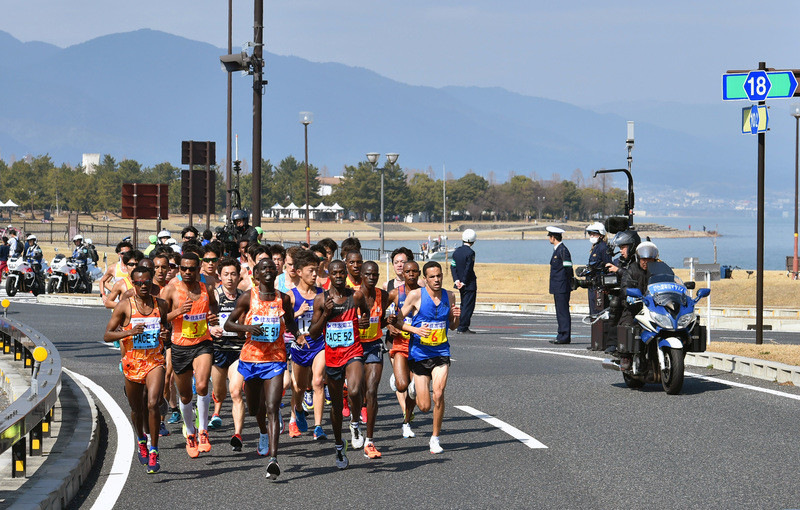
Starting and finishing on the track at Ojiyama Field, Lake Biwa has long been the final selection race for Olympic and World Championships teams. At both the 2012 London Olympics and 2016 Rio de Janeiru Olympics two of the three men's team members earned their places at Lake Biwa. At both the 1964 and 1968 Olympics all three members were chosen there. Its position on the calendar relative to Fukuoka and Tokyo meant the battles were always furious, and those who emerged victorious went on to take on the world.
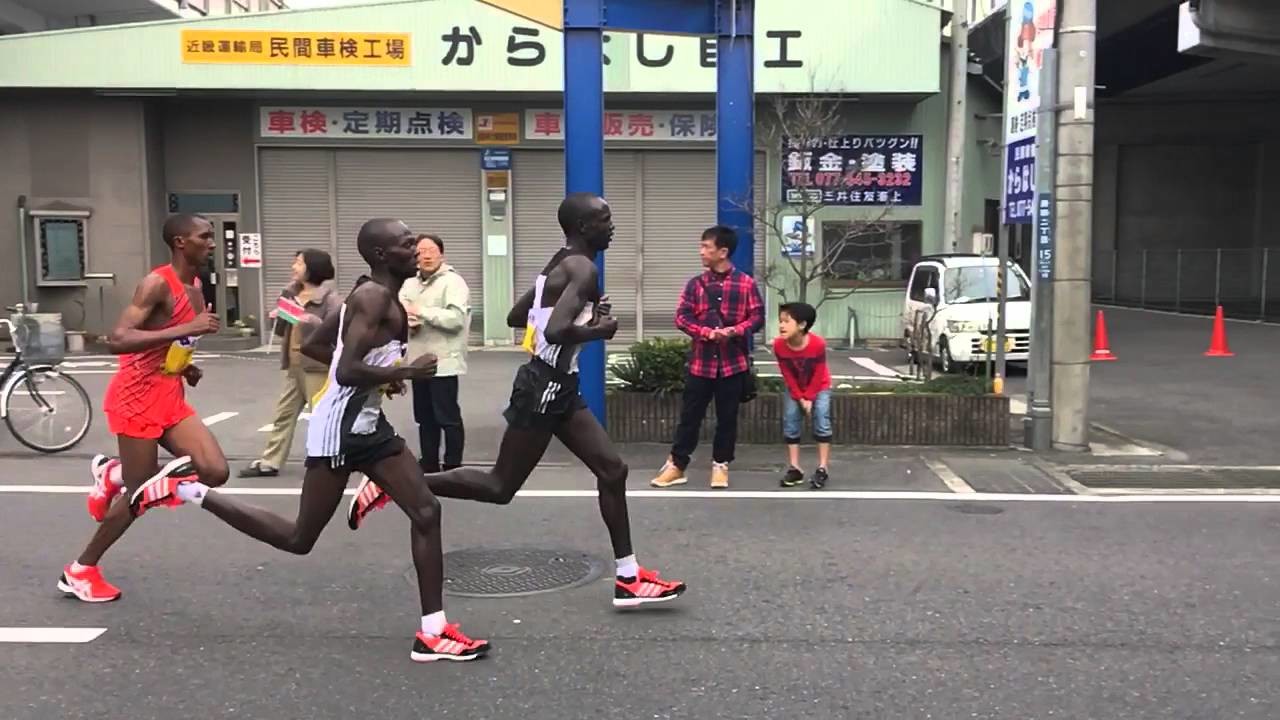
There's no question that Lake Biwa has been the site of countless classic races and a vital part of Japan's marathon tradition, but in recent years its relevance has faded. One of the major factors in this was the Tokyo Marathon's change to a faster course in 2017. In 2018 Yuta Shitara (29, Honda) broke the Japanese national record in Tokyo, and two years later Suguru Osako (29, Nike) followed Shitara's lead and did the same. With that record of success, Tokyo has become the first choice for Japanese men targeting fast times.
The outcome of that change for Lake Biwa, an elite-only marathon, was that the athletes who could have provided the fireworks started staying away. With the Tokyo Marathon having moved to Lake Biwa's traditional date the first Sunday in March two years ago, Lake Biwa's shift a week later meant it was now the same day as the Nagoya Women's Marathon, hiding it in the shadows even further. The race's viability, financial and otherwise, came into question.
According to those involved, the Osaka Marathon is the most likely candidate to replace Lake Biwa as a national team selection event. With 35,000 people running on a downtown urban course it is the second-largest marathon in Japan after only Tokyo. With that kind of modern prestige to it, Osaka is highly likely to pick up the selection race label.
Modernity has a way of burying history. The MGC Race, a one-shot selection race for the Tokyo Olympics, was a major success. Those in power are leaning toward using the same kind of single trials race for the 2024 Paris Olympics. With the coronavirus crisis an ongoing issue, this is a period of transition. The Japanese marathon world isn't immune to those transitional forces, and we can only hope that its reorganization and reformation produce even more exciting races.
by Brett Larner
Login to leave a comment
Osaka Marathon
In 2022 the Lake Biwa Mainichi Marathon and Osaka Marathon were held together. For 2023 the name of the marathon will be Osaka and both men and women can run the race. The original male-only competition was first held in 1946 and, having taken place every year since then, it is Japan's oldest annual marathon race. The early editions of...
more...Ryu Takaku, Yuma Hattori and Taku Fujimoto Headline Fukuoka International Marathon
With strict limitations on immigration still a reality in Japan, the Dec. 6 Fukuoka International Marathon has announced an almost entirely domestic field of less than 100 that includes only five Japan-based foreign-born athletes plus an all-Japan-based Kenyan pacing crew led by Bedan Karoki (Toyota).
Not that the field is hurting for quality. Ryu Takaku (Yakult), 2:06:45 in Tokyo this year, 2018 Fukuoka winner and Tokyo Olympics marathon team member Yuma Hattori (Toyota), and Taku Fujimoto (Toyota), a bump up to the 2019 Fukuoka winner's position pending after the subsequent suspension of the Moroccan who crossed the line first for biological passport violations, make up the front end of a field that includes eleven current sub-2:10 men and seven of last year's top ten.
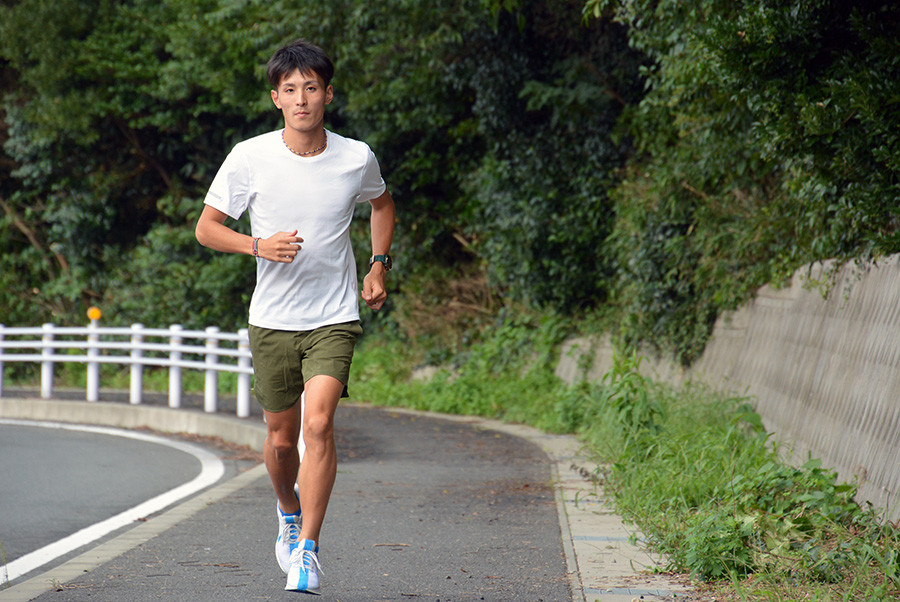
Hattori has said publicly that he'll be going for Suguru Osako's 2:05:29 national record, and with pacing support from teammates Karoki and Fujimoto, his former Toyo University teammate Takaku there with him, and no dirty athletes to effortlessly tear him in half at the end, if the weather is good his chances will be too.

Shizuoka-based Kenyan Michael Githae (Suzuki) is the top international in the field with a best of 2:09:21 from Lake Biwa in 2018, but sub-60 half marathoner Paul Kuira (JR Higashi Nihon) still has potential to improve on his 2:11:58 best, and likewise for former Takushoku University ekiden team captain Derese Workneh (Hiramatsu Byoin). Workneh's teammate Cyrus Kingori (Hiramatsu Byoin) looks promising in his debut with a 1:01:31 for 4th at last year's Gifu Seiryu Half.
One promising name for a breakthrough in the Japanese field is Taiki Suzuki (Raffine), 9th last year in 2:12:09 in his marathon debut. It'll be interesting as well to see if Yuya Yoshida (GMO) can build on his inspiring at-the-time-career-ending 2:08:30 debut at Beppu-Oita this year, and it still feels like Olympic team alternate Shohei Otsuka (Kyudenko) has more waiting in him than his 2:10:12 best from Beppu-Oita two years ago.
Toyo fans will be hoping the same for Keita Shitara (Hitachi Butsuryu), twin brother of former NR holder Yuta Shitara.
by Brett Larner
Login to leave a comment
Fukuoka Marathon
The Fukuoka International Open Marathon Championship is one of the longest running races in Japan, it is alsoan international men’s marathon race established in 1947. The course record is held by Tsegaye Kebede of Ethiopia, running 2:05:18 in 2009. Frank Shorter won first straight years from 1971 to 1974. Derek Clayton set the World Record here in 1967 running 2:09:37. ...
more...Honami Maeda Breaks Mizuki Noguchi's 30 km National Record and Pre-Athens Ome 30 km Course Record
2020 Olympic marathon trials winner Honami Maeda (Tenmaya) took down two massive marks at Sunday's Ome 30 km Road Race in Tokyo's mountainous western suburbs, breaking Mizuki Noguchi's 30 km national record and pre-Athens Olympic gold medal Ome course record in 1:38:35 in wet conditions. Beating her closest female competition by almost eight minutes, Maeda was strong and about as steady as possible over the tough Ome course, clocking 5 km splits of 16:18 - 16:18 - 16:48 - 16:22 - 16:37 - 16:12.
Maeda's stated goal pre-race was Noguchi's 1:39:06 course record, set in February, 2004 as a key tune-up for Noguchi's gold medal-winning run in the Athens Olympics marathon. That fell by a wide margin, but few expected Maeda to also beat Noguchi's national record of 1:38:49 set en route during her 2:19:12 marathon national record run at the 2005 Berlin Marathon. It took Maeda's fastest split of the race, a 16:12 from 25 km to the finish, for that to happen, but happen it did. And the times being what they are, it's worth mentioning that she didn't appear to have been wearing carbon plate shoes. Looking at Noguchi in 2004 and at Maeda now, Maeda is looking more and more like the real deal. Maybe it's time to start getting a tiny bit excited about what might happen this summer.
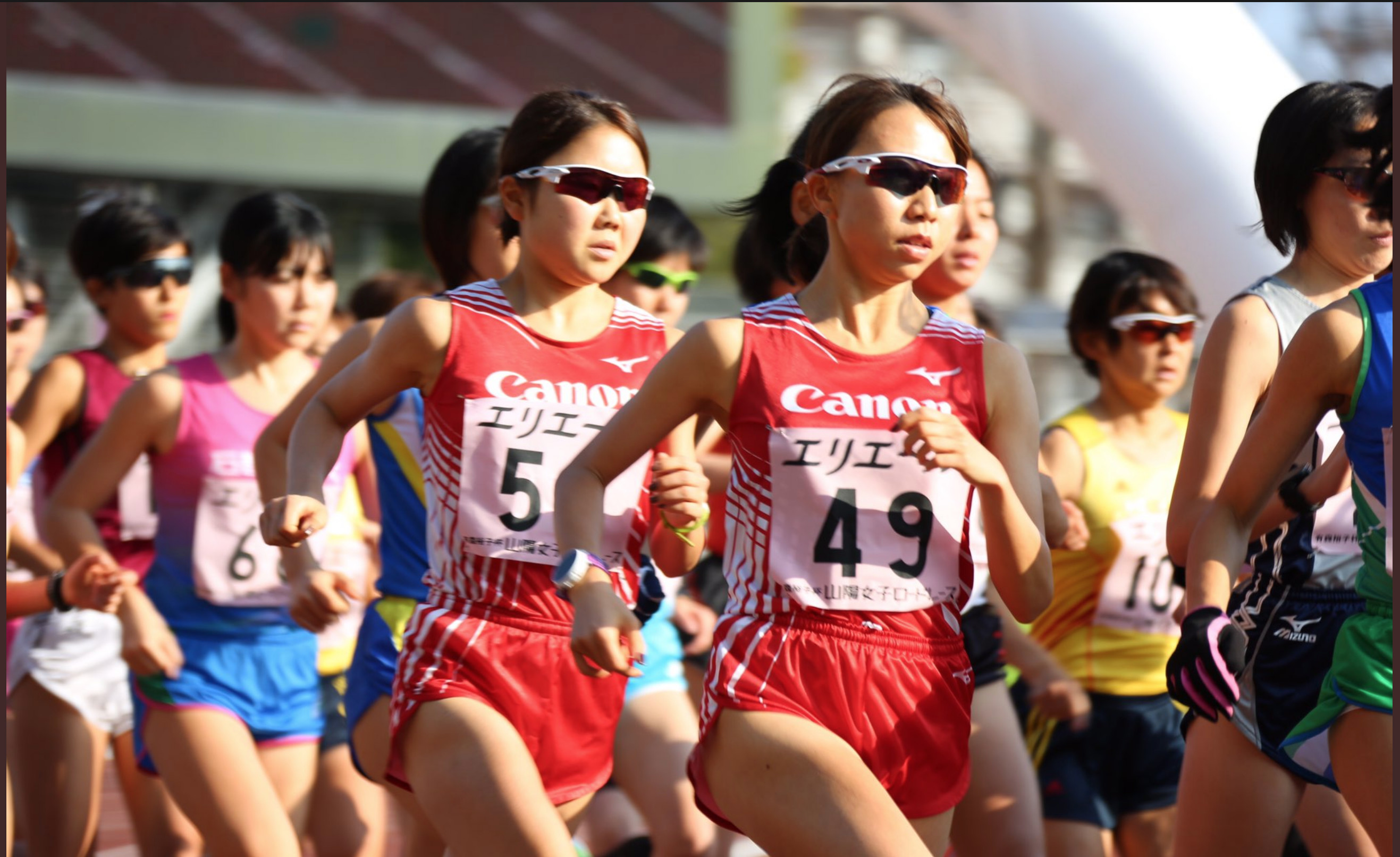
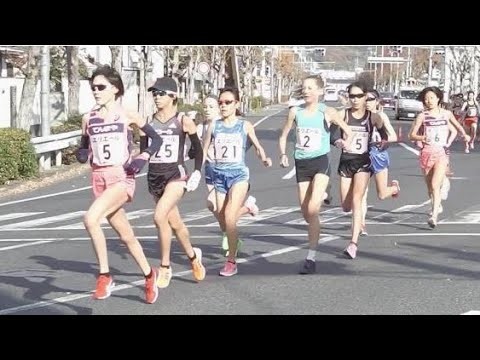
The women's race at the other big 30 km race of the day, Kumamoto's Kumanichi 30 km Road Race, was closer, if nowhere near Maeda's level, and equally wet. 20-year-old Ako Matsumoto (Denso) ran 1:46:09, 10 seconds faster than Ome runner-up Yuri Nozoe (Mitsui Sumitomo Kaijo), for the win, with teammate Ayano Ikeuchi and Chika Ihara (Higo Ginko) both finishing within a minute of her for 2nd and 3rd.
The men's races in Ome and Kumanichi were almost the inverse of what happened in the women's race. In Ome, a pack of eight went out on track to break the 1:29:06 course record set by Kenyan Ezekiel Cheboitibin (Sunbelx) last year. By halfway that was down to a trio, former Hakone Ekiden uphill Fifth Stage winner Daniel Muiva Kitonyi (Track Tokyo), Masaya Taguchi (Honda), and Junsuke Kanbe (Komazawa Univ.).
Rounding the turnaround for the mostly downhill return trip Kitonyi attacked, but the last hard uphill with just over 8 km to go killed him. Taguchi rolled up and by in the last 5 km to take the win in 1:30:45. Kitonyi staggered in for 2nd in 1:31:14, holding off Ryo Kawamoto (Kurosaki Harima) who came up from the chase pack for 3rd in 1:31:51.
In Kumanichi, former half marathon and marathon national record holder Yuta Shitara, like Ome winner Taguchi a graduate of Toyo University and current Honda corporate team runner, did what he does best and soloed the race start to finish, winning in 1:29:47 by nearly a minute over Kazuto Kawabata (Konica Minolta). His time bettered the 1:29:55 run by his twin brother Keita Shitara at Kumanichi 7 years ago and served as a confidence builder ahead of next month's Tokyo Marathon where he hopes to run 2:04.
Post-race he told the media, "If I lost here there would be no next time. In the two weeks left until the Tokyo Marathon I want to bring my level up another 20~30%. I want to run the kind of race that's going to get people all across Japan excited."
54th Ome 30 km Road Race
Login to leave a comment
Ohme Road Race
Ohme-Hochi 10K Road Race is organized by Ome Athletic Association in Ome, Tokyo, Japan in the month of February. The road race held just outside Tokyo, is part of a longstanding exchange program between the BAA and the Ohme Road Race, which is sponsored by the Hochi Shimbun. The events include 30K Race and a 10K Run. The number of...
more...Robinson and Johannes break national records to win Marugame Half Marathon
Brett Robinson won the Marugame Half Marathon in an Australian record of 59:57, recording the fastest time in four years at the World Athletics Silver Label road race on Sunday (2).
The 28-year-old took the lead at 18km before going on to win, taking more than four minutes off his PB in the process. Meanwhile, world marathon bronze medallist Helalia Johannes smashed her own Namibian record to win the women’s race in 1:08:10.
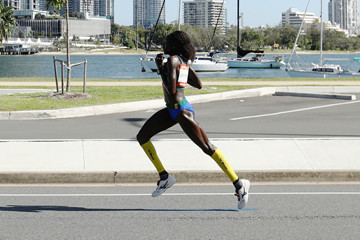
In the men’s race, a large pack of runners went through 5km in 14:13 and 10km in 28:26. The real racing started when 2017 Marugame winner Callum Hawkins started to push the pace at 13.5km. By 16.5km the lead pack had been reduced to four runners: Hawkins, Robinson, Yusuke Ogura and Taku Fujimoto.
Robinson took the lead at 18km and Ogura drifted back. Approaching 19km, Hawkins and Fujimoto also fell behind. Then Ogura started to bridge the gap, and took over the third from Fujimoto at 20.6km and second from Hawkins as they entered the stadium.
Robinson held on to the lead, though, and crossed the line in 59:57, taking 59 seconds off the Australian record set by Collis Birmingham at the 2013 edition of this race.
“It was a very tough race,” said Robinson. “The last few kilometres were very, but I’m very happy. The Japanese, Kenyan and Scottish runners put up a very good fight to the end.”
Ogura took almost two minutes off his PB to finish second in a Japanese record of 1:00:00, taking 17 seconds off the previous mark set by Yuta Shitara, who finished sixth in 1:00:49.
“I did not expect such a time,” said Ogura. “The race was a tune-up for the upcoming Tokyo Marathon. With two kilometres to go I expected the Japanese record to fall, so I was determined to pass Fujimoto in front of me. I am going after the third spot on the Japanese Marathon team in Tokyo.” Ogura will have to break the Japanese national record, 2:05:50, to gain the third spot on the team.
Hawkins finished third with 1:00:01, one second short of the PB he set when winning here three years ago, while Fujimoto finished fourth in 60:06, also inside the former Japanese record.
In the first half of the women’s race, Mao Ichiyama led Helalia Johannes, but Johannes took over the lead for good at about 12km. Although Charlotte Purdue came as close as 10 seconds at 20km, Johannes won with a personal best of 1:08:10.
It was a two-minute improvement on Johannes’ previous best, but her recent times at 10km (30:59) and the marathon (2:22:25) had hinted at a big half marathon breakthrough. The Commonwealth champion will defend her Nagoya Women’s Marathon title next month.
Purdue finished second in 1:08:23, a PB by 20 seconds, while Choi Kyund-Sun set a Korean record of 1:08:35 in third place.
by Ken Nakamura for World Athletics
Login to leave a comment
Kagawa Marugame Half Marathon
The Kagawa Marugame Half Marathon is an annual road running competition which takes place in early February in Marugame, Japan. It currently holds IAAF Silver Label Road Race status and the professional races attract over 1000 entries each year, and hosted by the Sankei Shimbun, Sankei Sports, Okayama Broadcasting, BS Fuji. The race in Marugame was first held in 1947...
more...Callum Hawkins of Great Britain will be targeting a second victory at the 74th Kagawa Marugame Half Marathon on Sunday
Callum Hawkins, who won the race in 2017, joins 2012 Olympic and 2013 world champion Stephen Kiprotich as a marquee name on the men’s side while Helalia Johannes, the bronze medallist in the marathon at last year’s World Championships, leads the women’s field.
Hawkins, who collapsed in the 2018 Commonwealth Games Marathon while leading, finished fourth in the World Championships marathon in both 2017 and 2019.
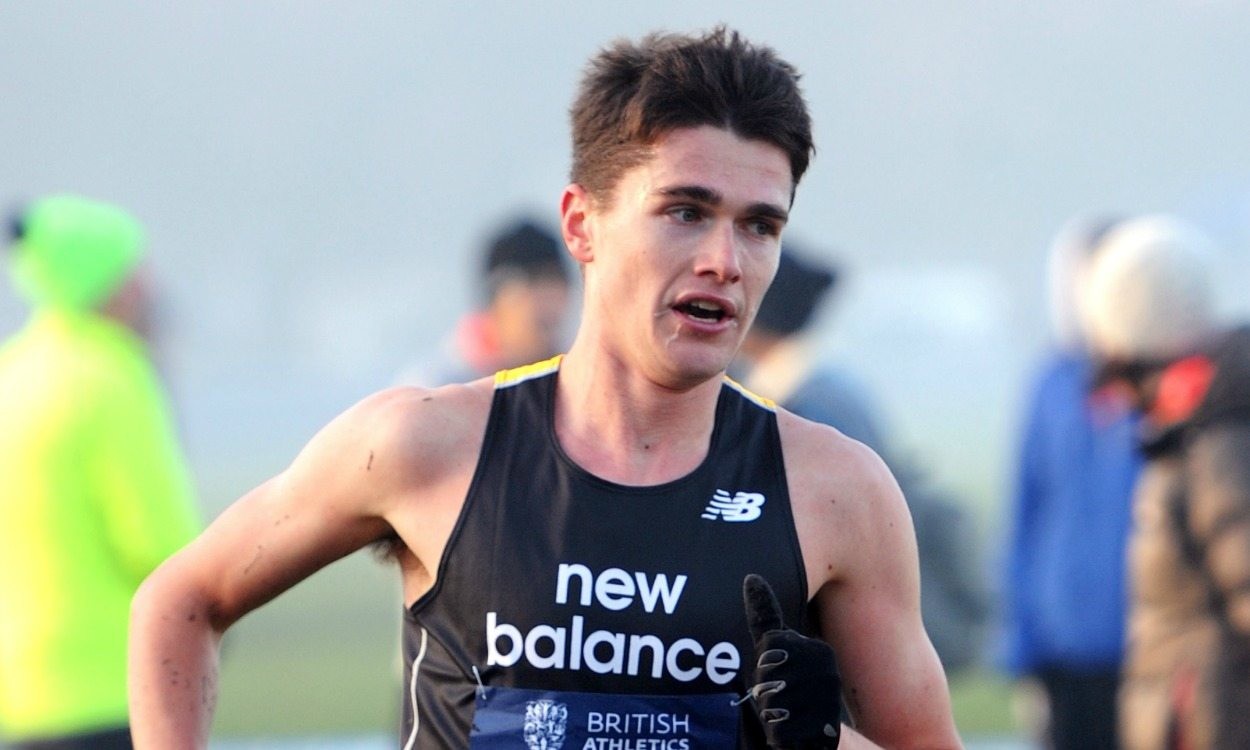
Briton Charlotte Purdue (1:08:45), Japan’s Mao Ichiyama (1:08:49) and Australian Sinead Diver (1:08:55) have the fastest personal bests in the field. All came in 2019: Purdue’s in the Sanyo Women’s road race in December, Ichiyama’s in Hakodate in July and Diver’s in Marugame in February. Two others - Ellie Pashley and Reia Iwade - also have sub-70 minute credentials.
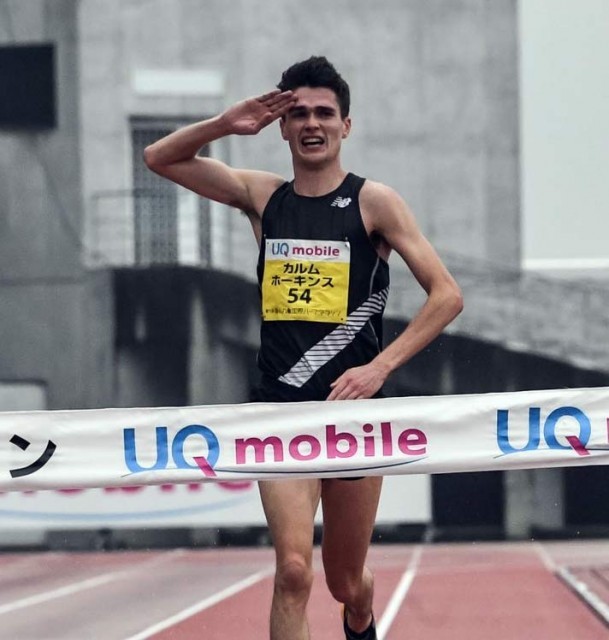
Eri Makikawa, the 2014 Marugame winner with a best of 1:10:28, is also back after skipping the race in recent years.
The men’s field is much stronger.
Both Zane Robertson and Kelvin Kiptum have sub-1 hour bests, while Hawkins’ best is exactly 60 minutes. In fact, the 20-year-old Kiptum has cracked 60:00 twice, both last year. That may qualify Kiptum as the favorite on Sunday. Robertson was second in Marugame in 2015.
The race also serves as a qualifying race for the Japanese team for the World Half Marathon Championships Gdynia 2020.
Several runners, including Japanese national half marathon record holder Yuta Shitara, are running as a tune-up for next month’s Tokyo Marathon. Yuki Sato, a four-time national 10,000m champion, and Shuho Dairokuno, 2019 national 10,000m champion, will also be contesting both Marugame and Tokyo Marathon. Although not an invited runner, Shitara’s twin brother Keita will be running also.
Other top Japanese include Yuma Hattori, the 2018 Fukuoka Marathon champion, Taku Fujimoto, second in the 2019 Fukuoka Marathon, Tetsuya Yoroizaka, the second fastest 10,000m runner in Japan and 2018 Boston Marathon champion Yuki Kawauchi.
by World Athletics
Login to leave a comment
Kagawa Marugame Half Marathon
The Kagawa Marugame Half Marathon is an annual road running competition which takes place in early February in Marugame, Japan. It currently holds IAAF Silver Label Road Race status and the professional races attract over 1000 entries each year, and hosted by the Sankei Shimbun, Sankei Sports, Okayama Broadcasting, BS Fuji. The race in Marugame was first held in 1947...
more...Defending champ Ruti Aga and last year's winner Birhanu Legese will be back for 2020 Tokyo Marathon
Ethiopia is pretty far down the road to overtaking Kenya as the world's leading marathon nation, and its presence is heavy in both the women's and men's fields for the Olympic year 2020 Tokyo Marathon. Lacking London's star power the Tokyo fields won't win many nominations for best of 2020, but with loads of World Marathon Majors top three finishers and winners of next-tier gold label marathons they're still fields at a level most other races would love to be able to pull off.
On the women's side, with PBs of 2:18:34 and 2:18:46 defending champ Ruti Aga and past winner Birhane Dibaba lead a main of twelve top-tier invited elites, of which nine were born in Ethiopia. The other three, Valary Jemeli Aiyabei, nationality transfer Lonah Chemtai Salpeter, and Selly Chepyego Kaptich, were all born in Kenya.
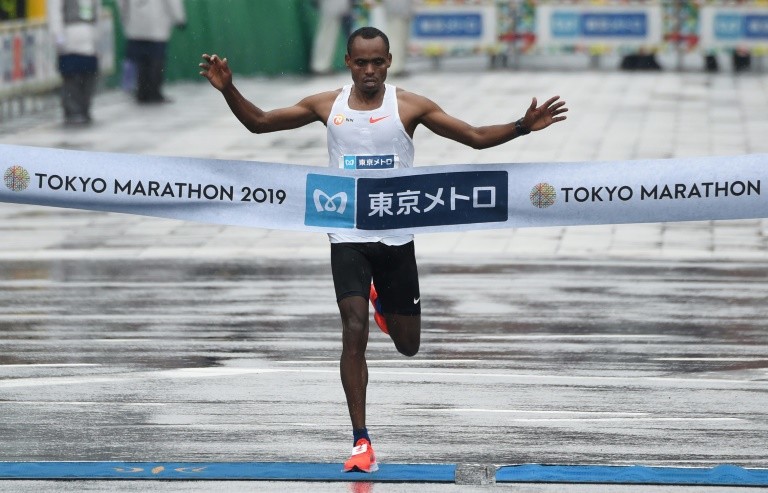
With Tokyo not counting in last-chance Olympic qualification for Japanese women the top entrant from outside those two countries is Japan's Haruka Yamaguchi, an amateur who took 7th in this past weekend's Osaka International Women's Marathon in 2:26:35. Former Canadian national record holder Rachel Cliff and locals Kaori Yoshida, Risa Noguchi, Shiho Kaneshige and Yurie Doi fill out the rest of the sub-2:30 set.
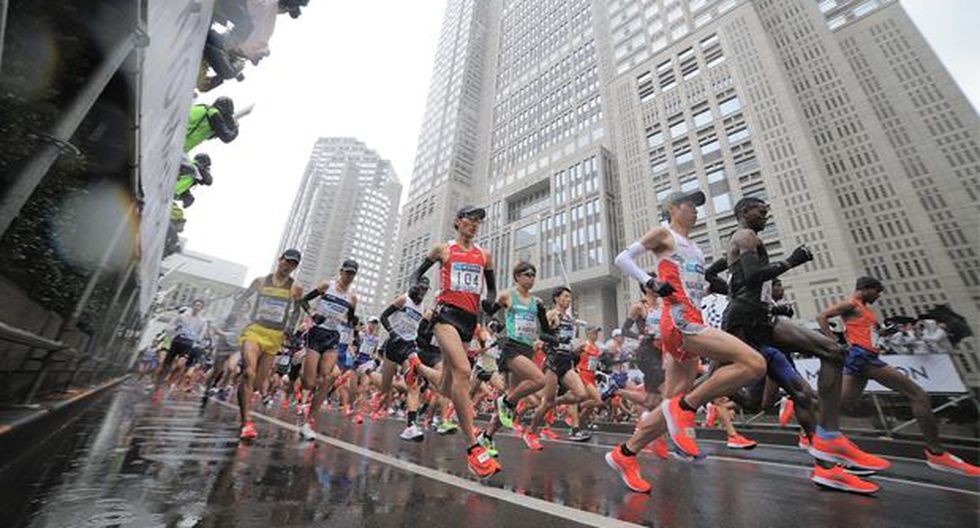
On the men's side Ethiopians make up five of the eleven invited internationals including the top four, with last year's winner Birhanu Legese leading the way in 2:02:48. Things are heavily stacked in the 2:04 to low-2:05 range, perfectly designed to set it up for the Japanese men. Their task and its payoff are simple: be the top Japanese guy in 2:05:49 or better and replace national record holder Suguru Osako (Nike) on the Sapporo 2020 Olympic marathon team.
Osako's there to stop them, fresh off a 25 km tempo in Dubai. His main competition is previous national record holder Yuta Shitara (Honda), who said last week that 2:05 isn't good enough and that if he doesn't run 2:04 in what he's calling his final marathon in Japan then he'll turn down the Olympic team spot.
Shitara's got that crazy edge working, which can count for a lot, but the biggest danger to Osako is probably going to be the ultra-disciplined Hiroto Inoue (MHPS), who ran 2:06:54 in Asics behind Shitara's NR two years ago, then made the switch to the Next% this season and promptly crushed the course record on the New Year Ekiden's longest stage. Put him in the same shoes as Osako and Shitara and they'd better watch out.
Kenta Murayama has the goods to be the other three's equal, but with his sponsor team Asahi Kasei having lost the plot when it comes to marathoning it would be a surprise to see him go much below 2:08. With twelve current sub-2:10 Japanese men in the field it's one of the best domestic races ever assembled, but apart from Murayama and possibly his talented teammate Shuho Dairokuno it's hard to see any darkhorses breaking through to the level of Osako, Shitara and Inoue.
Mizuki Matsuda's 2:21:47 win in Osaka last weekend bumped her up into the 3rd Olympic women's spot but left her vulnerable to others in Nagoya, but with all the main men in Tokyo it's even harder to see anyone in Lake Biwa a week later going better than what they might do here.
by Brett Larner
Login to leave a comment
Tokyo Marathon
The Tokyo Marathon is a world-renowned annual marathon held in Tokyo, Japan. As one of the prestigious Abbott World Marathon Majors, it attracts elite and amateur runners from around the globe. The race holds World Athletics Platinum Label status, recognizing its high competitive standards, top-tier organization, and international appeal. Sponsored by Tokyo Metro, the Tokyo Marathon has grown into one...
more...Japanese Yuta Shitara plans for the Tokyo Marathon and his last chance to make the Olympic team
In an interview in Miyazaki on Jan. 23, former men's marathon national record holder Yuta Shitara, talked in no uncertain terms about his plans for the Tokyo Marathon, his last chance to earn a ticket to the 2020 Olympics.
It's going to take breaking current record holder Suguru Osako's 2:05:50 national record to take the third spot on the Olympic team. But, said Shitara, "Even if I break the national record and am chosen, unless I run 2:04 I won't deserve to run in the Tokyo Olympics.
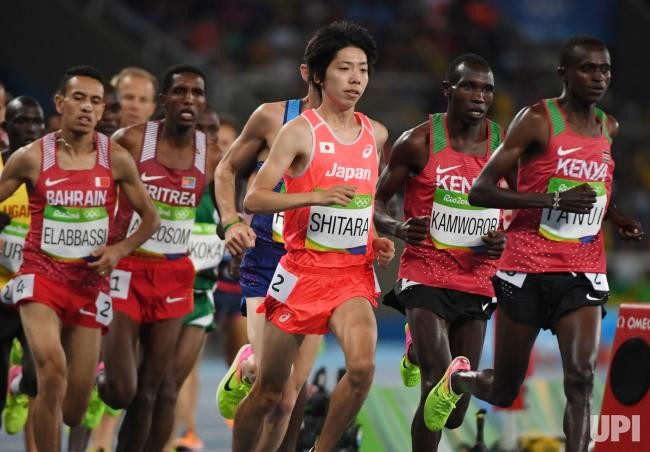
" If he runs a 2:05 national record, he said unambiguously, "I'll probably turn it down."Commenting on Shitara's statement, his coach Satoshi Ogawa said, "I think he has complete confidence about winter races, but when it comes to summer races he's not as sure he can perform as expected.
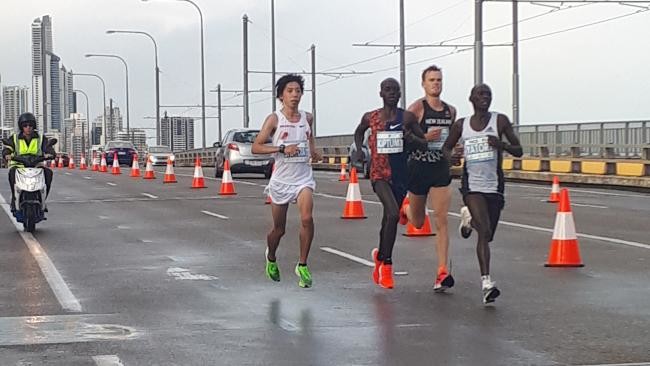
He probably thinks that there are other people who can do better in summer races."Shitara also said, "Tokyo will be the last marathon I run in Japan," indicating that he plans to shift his focus to competing in high-level races abroad. The Tokyo Marathon is more than sufficiently high-level, regularly featuring athletes who have run in the 2:02 to 2:03 range, but, said Ogawa, "He wants to take on the challenge of competing internationally.
He doesn't want conservative races, he wants to go fast and hard. For him it's all or nothing.
"At the 2018 Tokyo Marathon Shitara ran a then-national record 2:06:11. After a planned confrontation with the man who broke his record failed to materialize at last year's Tokyo, the anticipation for his showdown with Osako this year is already building.
by Brett Larner
Login to leave a comment
Tokyo Marathon
The Tokyo Marathon is a world-renowned annual marathon held in Tokyo, Japan. As one of the prestigious Abbott World Marathon Majors, it attracts elite and amateur runners from around the globe. The race holds World Athletics Platinum Label status, recognizing its high competitive standards, top-tier organization, and international appeal. Sponsored by Tokyo Metro, the Tokyo Marathon has grown into one...
more...El Mahjoub Dazza wins the Fukuoka Marathon
It came down to a race between #1-ranked El Mahjoub Dazza (Morocco) and top Japanese man Taku Fujimoto (Toyota) after 30 km, but the Moroccan proved the stronger as he pulled away to win the Fukuoka International Marathon in 2:07:10.
Japanese men had to run under the national record of 2:05:50 to score the last spot on the 2020 Olympic marathon team. Fujimoto, 2:08 man Yuki Sato (Nissin Shokuhin) and ambitious 2:12 guy Takashi Ichida (Asahi Kasei) were the only ones to really give it a go, staying up front in the lead pack with most of the internationals, with Bedan Karoki (Kenya/DeNA) laying down the law at the head of the pacer group.
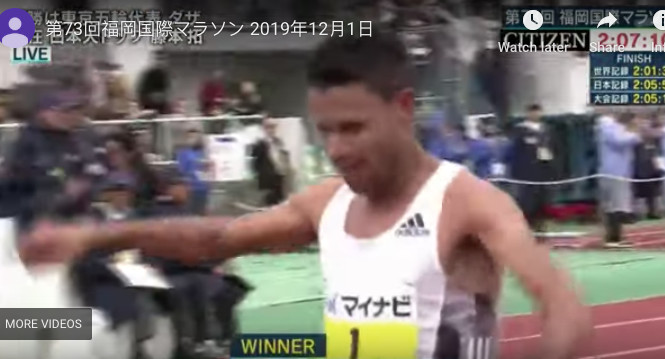
A secondary lead group quickly separated off the back of the lead group, with Japan-based Kenyan Daniel Muiva Kitonyi (Track Tokyo), 2:09:52 man Jo Fukuda (Nishitetsu), Keita Shitara (Hitachi Butsuryu) and others cutting back to 2:07 pace. European marathon champ Koen Naert (Belgium) and Pan-Am Games gold medalist Christian Pacheco (Peru) were more conservative, going out with the sub-2:10 pace B-group.
The high pace took its toll up front, with most of the invited internationals falling off and then dropping out to leave just Dazza, Fujimoto, Sato, Ichida and former Takushoku University ekiden captain Workneh Derese (Ethiopia/Hiramatsu Byoin).
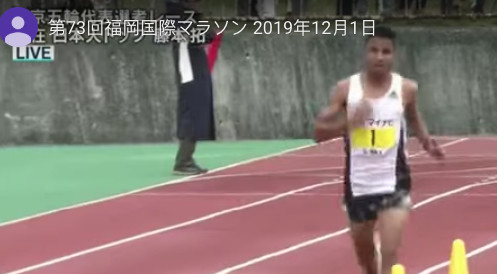
Ichida, Sato and Derese all fell back on the trip out to the 31.6 km turnaround point, leaving just Dazza and Fujimoto when the pacers stepped off at 30 km. Dazza immediately surged, breaking Fujimoto and running unchallenged for the win in 2:07:10. Fujimoto slowed progressively, almost shuffling down the home straight of the track for 2nd in 2:09:36 after a 1:03:02 first half. Derese dropped Sato, but in the last km he was run down by second group runner Fukuda who took 3rd in 2:10:33 to Derese's 2:10:52 for 4th.
Early caution paid off, as runners from the sub-2:10 third pack took the next four spots led by Natsuki Terada (JR Higashi Nihon), who closed with the fastest split in the field, 6:44, for a 5-minute PB of 2:10:55 and a 5th-place finish.
Raymond Kipchumba Choge (Kenya) was the only other athlete from the original front pack to make the top 10, taking 9th in 2:11:38. Taiki Suzuki (Raffine) followed up a solid 3rd-place finish two weeks ago at China's Yiwu International Half Marathon with a 2:12:09 debut for 10th.Amateur runner Yusuke Tobimatsu (Hioki City Hall), a regular front runner in Fukuoka, survived going with the sub-2:10 this time to take 11th in a major PB of 2:12:44, while Sato faded to 2:14:56 after going through halfway in 1:03:02.
Still on sub-2:10 pace at 35 km, Ichida paid heavily for his own 1:03:02 first half as he fell to 29th in 2:19:05. Fan favorite Shitara, twin brother of former national record holder Yuta Shitara (Honda), fell short of his sub-2:10 goal at 14th in 2:14:31 just ahead of Sato.
Apart from Dazza and Choge, the only other invited internationals to finish were Naert and Pacheco, Naert finishing 18th in 2:15:51 and Pacheco 40th in 2:21:15.The Final Challenge series, the three-race chance for men to replace Osako on the 2020 Olympic team, continues in March with the Tokyo Marathon and Lake Biwa Marathon.
The dire crash and burn results today showed just how high a bar it will be to pull off, and that whatever else happens there's really only one person who could do it. But with the Valencia Marathon having quickly surpassed Fukuoka's place on the world calendar and the Osaka Marathon putting on heavy domestic pressure, more than ever before today's race seemed like a relic of times gone by.
Dazza's winning time was only just over 30 second faster than Osaka winner Asefa Tefera's, and Osaka had a quality women's race and field of over 30,000 on top of that. What is Fukuoka's route forward to stay relevant in a rapidly changing landscape?
Login to leave a comment
Fukuoka Marathon
The Fukuoka International Open Marathon Championship is one of the longest running races in Japan, it is alsoan international men’s marathon race established in 1947. The course record is held by Tsegaye Kebede of Ethiopia, running 2:05:18 in 2009. Frank Shorter won first straight years from 1971 to 1974. Derek Clayton set the World Record here in 1967 running 2:09:37. ...
more...Japanese Yuta Shitara will Go For National Record in Tokyo Marathon, I Care About the 100 Million Yen Bonus More Than the Olympics, he says
There's a lot of attention right now on the last remaining spot on the 2020 Olympic marathon team. The first two spots were secured by the 1st and 2nd-placers at the MGC Race, Shogo Nakamura (Fujitsu) and Yuma Hattori (Toyota).
To claim the last remaining spot, someone has to break the Japanese national record and run at least 2:05:49 at this winter's Fukuoka International Marathon, Tokyo Marathon or Lake Biwa Mainichi Marathon. If nobody succeeds, the spot will go to MGC 3rd-placer and current national record holder Suguru Osako (ex-Nike Oregon Project).The favorite to pull it off, after his run at East Japan Shitara talked about his plans for next year's Tokyo Marathon. But he did so in a characteristically Shitaresque way. "As long as you're competing in sports, [the Olympics] are something you aim for," he said.
"I'm running the Tokyo Marathon next year, but I don't really care that much about the Olympics. I care more about getting the 100 million yen bonus [$920,000 USD]. That's my priority. I'm running it for the money. The MGC Race didn't have any prize money, and I'm living right now because I can run. It takes money to run."Making clear his focus on scoring the Project Exceed bonus for breaking the marathon national record again, Shitara seemed to suggest that if he succeeds in winning a place on the 2020 Olympic team he might turn it down. "
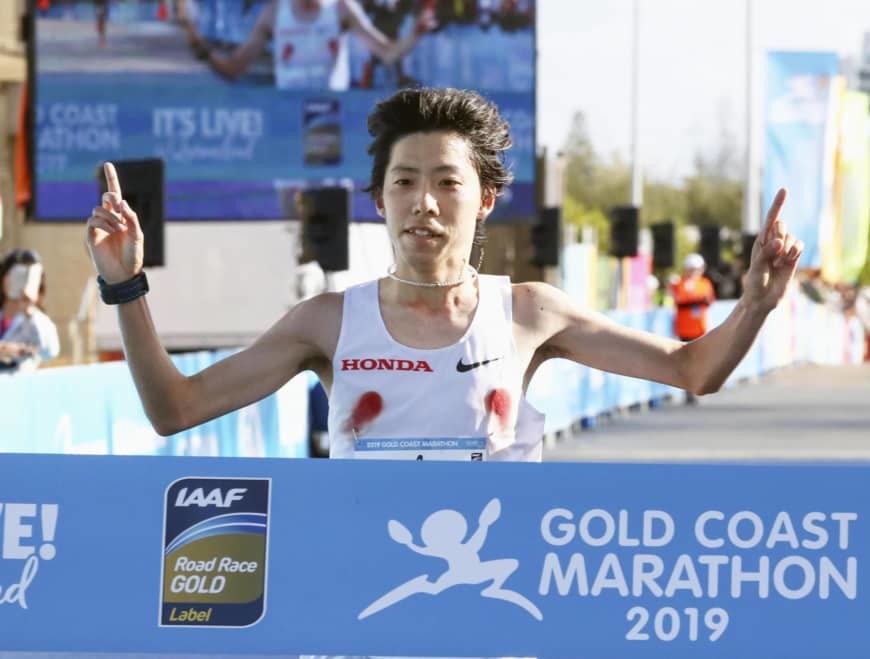
"I'm not going to say myself that I'll run [the Olympics]," he said. "The public would probably rather see Osako run there. He's got better achievements in international competitions.
He'd definitely get the job done, and if you leave it to him there won't be any doubt. I'll leave it to the public to decide." Of the Olympic marathon's move to Sapporo he said, "If that's what has been decided then there's no choice but to obey."Now 27 years old with his own unique way of looking at the world, Shitara expressed a sense of frustration with the current state of the marathon as an event. "It's really boring to run all these races set up by old people these days," he said. "I think we're going into an era when change is going to come from the athletes.
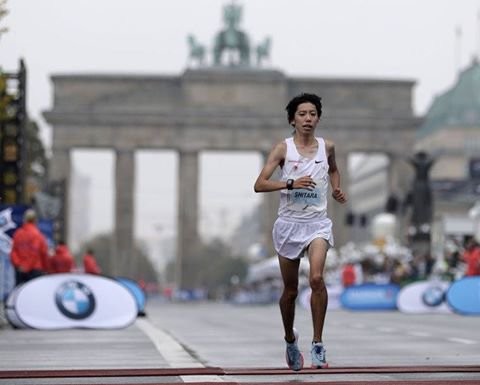
I want to change, and I can't wait for that day to come." The first step is to try to score his second 100 million yen bonus in Tokyo. "It's a race against Osako's record," he said. "I'll be going for it as long as I can run."
Login to leave a comment
Tokyo Marathon
The Tokyo Marathon is a world-renowned annual marathon held in Tokyo, Japan. As one of the prestigious Abbott World Marathon Majors, it attracts elite and amateur runners from around the globe. The race holds World Athletics Platinum Label status, recognizing its high competitive standards, top-tier organization, and international appeal. Sponsored by Tokyo Metro, the Tokyo Marathon has grown into one...
more...NAKAMURA AND MAEDA WIN JAPAN’S MARATHON GRAND CHAMPIONSHIP
Japan’s selection process for their 2020 Olympic marathon team culminated in victory for Shogo Nakamura and Honami Maeda at the Marathon Grand Championship in Tokyo on Sunday (15).
Japan’s Olympic marathon squad is arguably the toughest national team to make. Several nations may have great depth in one particular area – the US and Jamaica in the sprints and hurdles, Kenya and Ethiopia in the distance events – but for Japan’s MGC there were strict qualifying criteria simply to make it to the start line.
The qualifying window for the MGC opened in August 2017. Anyone who clocked the MGC qualifying standard (2:08:30 for men, 2:24:00 for women) or achieved a sub-2:11/2:28 average for their two fastest marathons in the qualifying window could compete at the MGC. Such was the fierce qualifying battle, the men’s long-standing Japanese record was broken by two different men during the qualifying period.
Forty athletes – 30 men and 10 women – eventually lined up for the MGC. Six of the men in the field had PBs faster than 2:08 while all but two runners in the women’s field had previously bettered 2:25.
And as if the tough qualifying process and competitive line-up wasn’t hard enough, the MGC itself – a marathon in 24-28C heat and 75% humidity – was one final brutal hoop for Japan’s best distance runners to jump through.
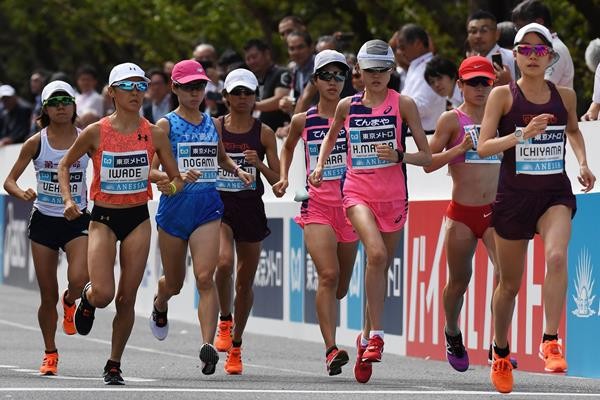
Even then, only the top two finishers are guaranteed a spot on Japan’s Olympic team. The third-place finishers are given a provisional place, but if another Japanese man runs 2:05:50 (the Japanese record) or a woman clocks 2:22:23, they can be given the third spot instead.
Fittingly, both races were not short on drama. Yuta Shitara, who broke the Japanese half-marathon record with 1:00:17 in 2017 and followed it with a since-bettered Asian record of 2:06:11 in Tokyo in February 2018, had promised before the race that he was going to set off fast and he stayed true to his word.
The 27-year-old shot into the lead, covering the first 5km in 14:56 and reaching 10km in 29:52. By the time he reached 15 kilometres (44:59), his lead had grown to more than two minutes. Shitara reached the half-way point in 1:03:27 while the four-man chase pack – comprising Kengo Suzuki, Shogo Nakamura, Yuma Hattori and national record-holder Suguru Osako – followed in 1:05:28, showing Shitara’s lead was already starting to dwindle.
The chasing pack grew to seven men at 30km. Shitara continued to lead, but his margin had reduced to 77 seconds. Two more men caught up with the chasers over the next five kilometres, reaching 35km in 1:49:12, and Shitara was now in sight, just 35 seconds in front after covering that five-kilometre section in 16:57.
The inevitable happened two kilometres later as the chase pack breezed past Shitara at the drinks station. With eight men now in contention, Ryo Hashimoto pushed the pace and was followed by Osako, Nakamura and Hattori.
Nakamura was the next to make a move and opened up a few seconds on Hattori and Osako at 40km with Hashimoto dropping back. But with 28 seconds separating the top seven men and little more than two kilometres remaining, the race was far from over. Hattori briefly dropped Osako, but they regrouped moments later and appeared to make up ground on Nakamura. Osako managed to bridge the gap to Nakamura but had nothing left as Nakamura pulled away in the closing stages to win by eight seconds, crossing the line in 2:11:28.
First place may have been decided but the race for Olympic team places wasn’t over. Hattori caught a struggling Osako before the line to take second place in 2:11:36. Osako finished third in 2:11:41. Shohei Otsuka, fourth in 2:11:58, was the only other finisher inside 2:12. Long-time leader Shitara eventually finished 14th in 2:16:09.
The women’s race was effectively decided just before half way when Honami Maeda broke away from the pack.
Eight of the 10 women in the field had passed through 10km in 33:34 and five of them were still together at 15km. Maeda made her move just before 20km, which she passed in 1:07:27, two seconds ahead of two-time world finalist Ayuko Suzuki, who was contesting just her second marathon to date.
A 16:41 split for the next five-kilometre segment was enough to drop the last of Maeda’s pursuers and by 30km her lead had grown to 82 seconds. She continued to pull away from Suzuki over the final quarter of the race and went on to win convincingly in 2:25:15.
Suzuki had a comfortable 33-second margin over Rei Ohara at 40km, but she started to struggle during the last two kilometres. Ohara made up significant ground but couldn’t quite catch Suzuki before the line as Suzuki – the slowest qualifier for the MGC – claimed second place in 2:29:02 with Ohara taking third in 2:29:06. Mizuki Matsuda was fourth in 2:29:51.
by IAAF
Login to leave a comment
Tokyo 2020 Olympic Games
Fifty-six years after having organized the Olympic Games, the Japanese capital will be hosting a Summer edition for the second time, originally scheduled from July 24 to August 9, 2020, the games were postponed due to coronavirus outbreak, the postponed Tokyo Olympics will be held from July 23 to August 8 in 2021, according to the International Olympic Committee decision. ...
more...Yuta Shitara said after running 2:07:50 and winning the Gold Coast Marathon, If We Ran the Trials Right Now I'd Win
Former marathon national record holder Yuta Shitara (27, Honda) returned to Narita Airport on July 8 after scoring his first-ever marathon win at Australia's Gold Coast Marathon.
Shitara won clocking a course record time of 2:07:50, lending momentum to his buildup for the MGC Race 2020 Olympic marathon trials just over two months away.
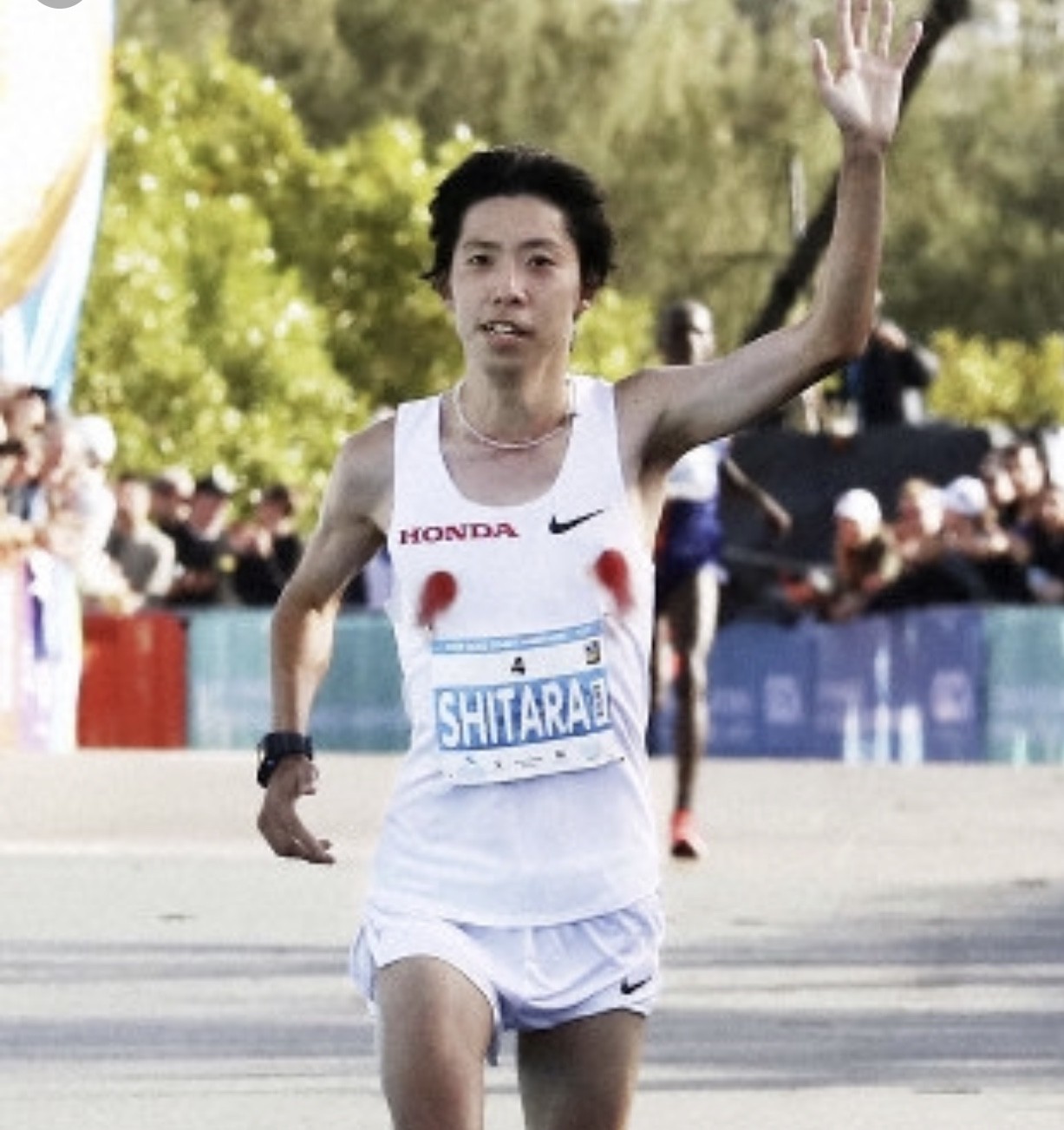
During the race Shitara suffered a mishap, bleeding from both nipples early on. "It rained right before the start," he said, "and once I started running it started chafing. I was a little worried about it, but if you want to compete at the top of the game then there are no excuses."
Shrugging it off, even as his uniform soaked up the blood Shitara kept up his fast pace. "My training paid off in this result," he said with obvious satisfaction.
"Winning gives me confidence, and I want to make good use of that after this."Up to now Shitara has followed his own training program, never running longer than 30 km. But, having had problems maintaining his speed in the second half of the race, this time he increased his longest runs to 35 km starting in June. The results paid off on the Gold Coast as he was tough over the last stage of the race, pulling away for the win in the final kilometers.
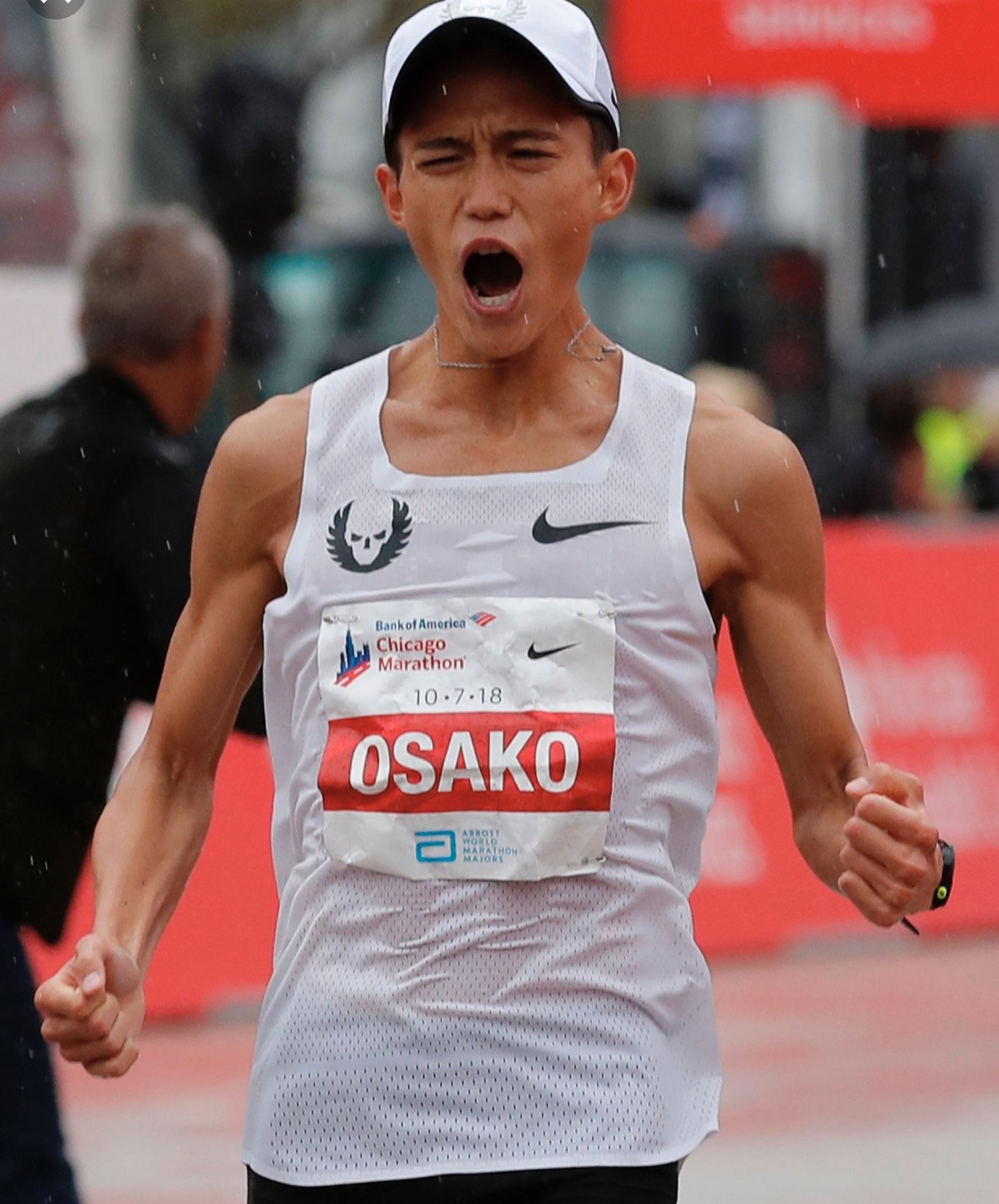
"In the training camp for this race I had the feeling that I could go 2:07," he said.In the buildup to the MGC main event Shitara plans to begin training together with his twin brother Keita Shitara (Hitachi Butsuryu) in Hokkaido for ten days starting in late July.
Keita, who starred at the Hakone Ekiden alongside Yuta during their days at Toyo University, didn't qualify for the MGC Race. But he will still play a valuable role as Yuta's main training partner like when the two of them were in university, dreaming of someday going to the Olympics as a pair.
"We're going to win this together, the two of us," Yuta said. "At the MGC Race nobody's going to be able to say our training was a waste.
"At the MGC Race Shitara will face the man who broke his national record, Suguru Osako (Nike Oregon Project) and other tough competition. But, he said, throwing down an intimidating challenge to them all, "I've got nothing but confidence that I'm going to win. Even if we ran it right now I'd win."
by Japan Running News
Login to leave a comment
Tokyo 2020 Olympic Games
Fifty-six years after having organized the Olympic Games, the Japanese capital will be hosting a Summer edition for the second time, originally scheduled from July 24 to August 9, 2020, the games were postponed due to coronavirus outbreak, the postponed Tokyo Olympics will be held from July 23 to August 8 in 2021, according to the International Olympic Committee decision. ...
more...Zane Robertson sets new national New Zealand marathon record clocking 2:08:19 at Gold Coast Marathon
Zane Robertson was off to find a juicy steak to eat after setting a new New Zealand men's marathon record on his debut at the distance.
Robertson finished third in the Gold Coast marathon on Sunday in a time of two hours eight minutes and 19 seconds.
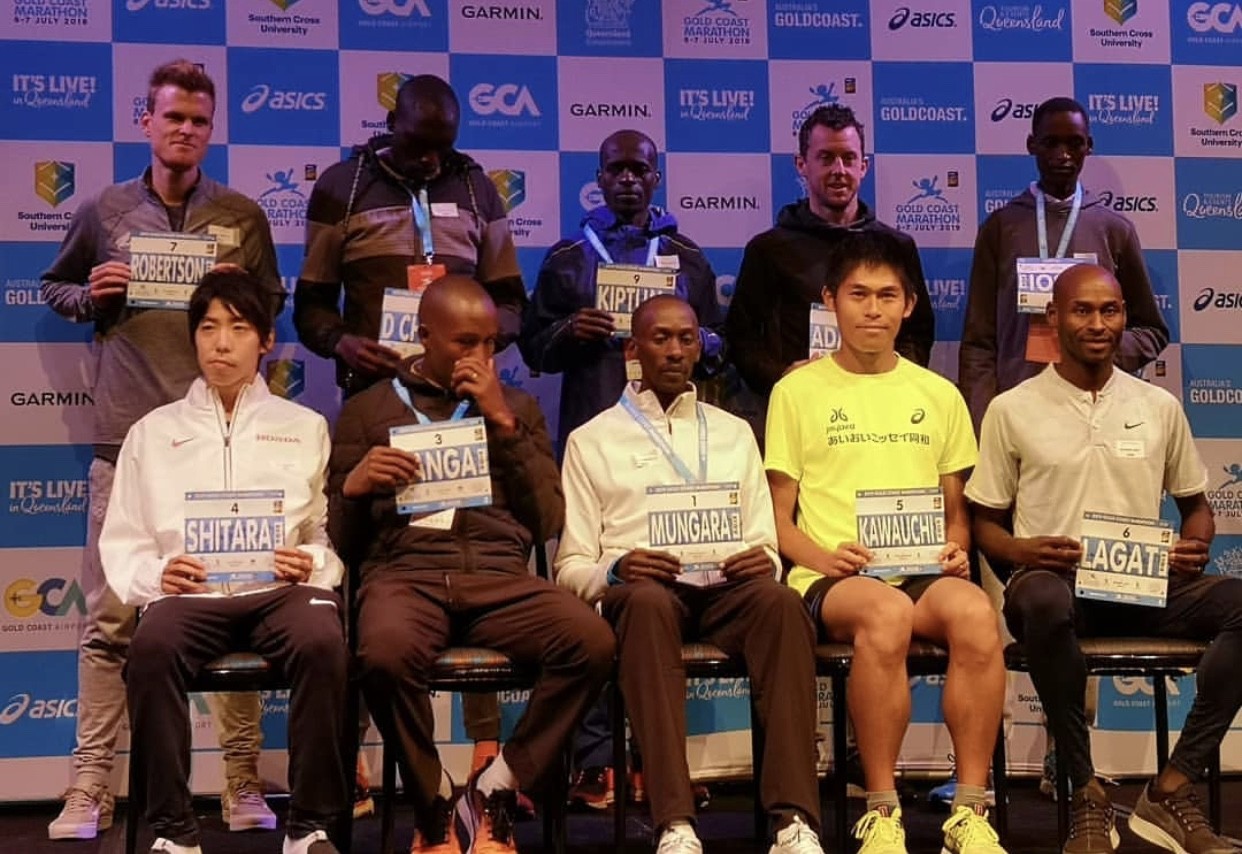
That time qualifies Robertson for next year's Tokyo Olympics and this year's world track and field champs in Doha. The previous NZ record was set by his brother, Jake Robertson, in March last year.
The men's race was won by Japan's Yuta Shitara in 2:07.50, with Kenya's Barnabas Kiptum second, 17 seconds ahead of the Kiwi.
"Gave it everything out there today," Robertson wrote on Instagram after the race.
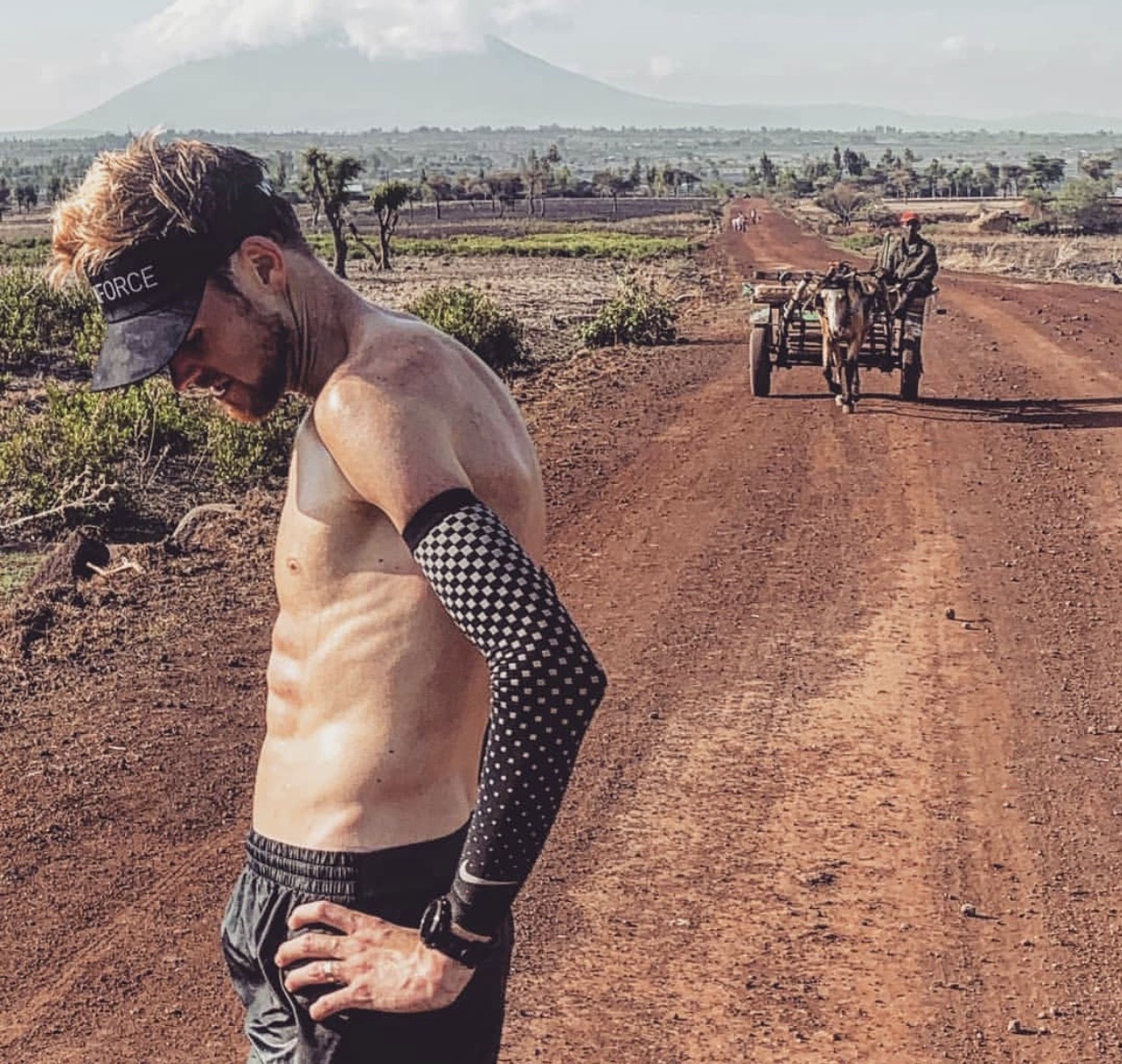
"Pushed the pace and set us up to run a 2.06 sadly failed to hold it together with Kiptum in the last 5k with the headwind gusts.
"We got caught by the dropped off Yuta Shitara and he destroyed us the last 2.5km.
"91% humidity, headwinds first 16.5km and last 5k, rained on us, oh and the shoe lace came undone at 5k into the race.
"So overall pretty happy with a NR (new record).... For now I'm off to have a hot shower, lay down and some dinner at the steak house with good friends.
Zane and his twin brother Jake Robertson moved to Kenya several years ago and have been training there.
Login to leave a comment
Even under tough weather conditions they pulled off many outstanding performances. - Bob Anderson 7/10 10:05 pm |
Gold Coast Airport Marathon
The Gold Coast Airport Marathon is held annually in one of the most popular holiday destinations in the world. It is Australia’s premier road race and was the first marathon in the country to hold an International Association of Athletics Federations (IAAF) Road Race Gold Label. The event is held on the first weekend of July and attracts more than...
more...Yuta Shitara sets new course record at the Gold Coast Marathon even when weather conditions were not ideal
The second fastest Japanese marathon runner in history became the fastest runner in Gold Coast Marathon history when Yuta Shitara won the IAAF Gold Label race in 2:07:50 this morning.
The 27-year-old had an exciting duel with placegetters Barnabus Kiptum of Kenya and Zane Robertson of New Zealand over the final 12km before making his move with 2km remaining.
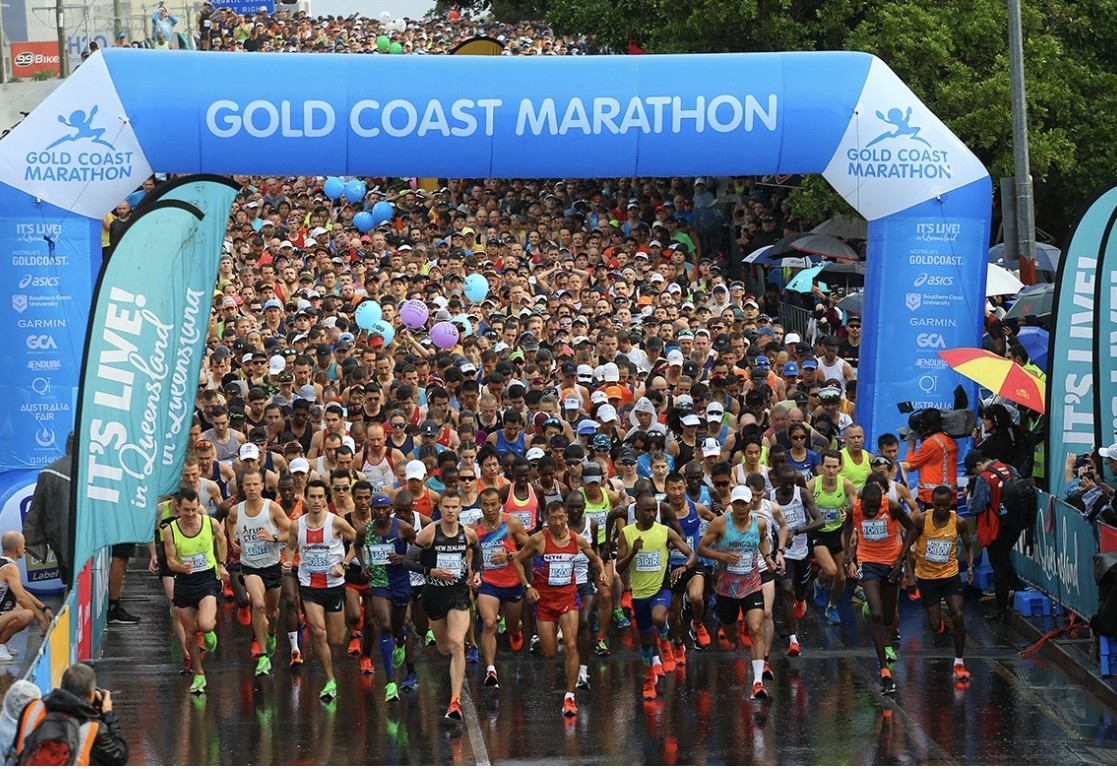
It was the eighth win by Japanese men in the 41-year history of the event and bettered the race record and Australian all comers record previously held by Kenyan Kenneth Mungara (2:08:42).
Shitara takes home $20,000 in victory prize money and an additional $10,000 time bonus for his record-breaking effort today.
Kiptum, the winner of the Hong Kong Marathon in February, finished second in a personal best 2:08:02, while marathon debutant Robertson placed third in 2:08:19.
It was an extra special result for Robertson as his time was a New Zealand record, bettering the previous mark of his brother Jake (2:08:26, Lake Biwa, 2018), and he was crowned the IAAF Oceania Area Marathon Champion for 2019.
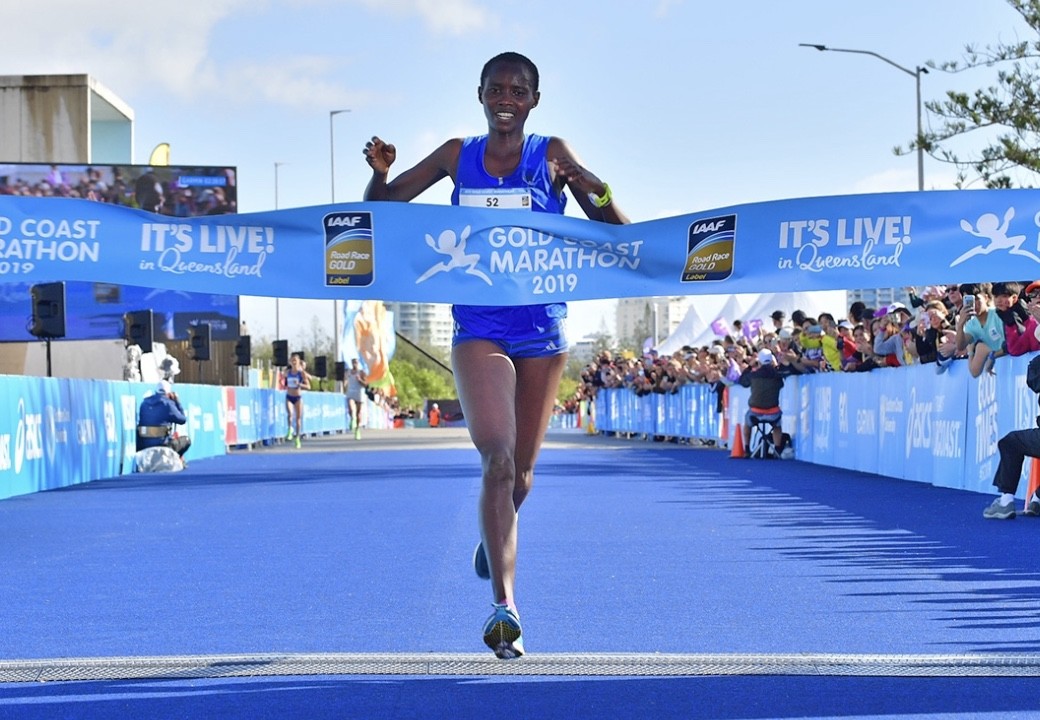
The first Australian across the line was Victorian Liam Adams in sixth place clocking a pb 2:11:36 – a bittersweet result for the 32-year-old as it was an agonising six seconds outside the 2020 Olympic qualification standard.
Dual world champion over 1500m and 5000m on the track Bernard Lagat (USA) improved his marathon pr to 2:12:10 for seventh place, while 2013 race winner Yuki Kawauchi (JPN) placed 13th in 2:15:32.
"It's definitely a confidence builder, and I have had a lot of things to make me confident, but this is a big one heading into the Japanese Olympic trials," said Shitara.
Shitara, who stayed with the lead group of four throughout the race, said although he was not aiming for a particular time or result, the win showed his training had paid off.
“We did a lot of training, and I think that helped," he said in a post-race interview.
Weather conditions on the Gold Coast were less than ideal, with athletes in both the full- and half-marathons battling headwinds and heavy rain.
"Honestly, I'd like to be able to run together with Yuta but I'm still not good enough," Kimura said.
Kenyan Rodah Jepkorir (KEN) held off a strong finishing burst from Tasmanian Milly Clark (AUS/TAS) to take the women’s Gold Coast Marathon.
The 27-year-old broke away from the 30km mark and then lasted to break the tape in 2:27:56, with Clark second (2:28:08) and Eritrea’s Nazret Weldu (ERI) third in 2:28:57.
This year’s eight Gold Coast Marathon races attracted a total of 26,287 entries, including 3,678 overseas competitors, as the event continues to achieve a long-term upward trend.
Login to leave a comment
Gold Coast Airport Marathon
The Gold Coast Airport Marathon is held annually in one of the most popular holiday destinations in the world. It is Australia’s premier road race and was the first marathon in the country to hold an International Association of Athletics Federations (IAAF) Road Race Gold Label. The event is held on the first weekend of July and attracts more than...
more...Kenyan Kenneth Mungara, Bernard lagat, Zane Robertson and Yuki Kawauchi are ready to compete at Gold Coast Marathon
Can the man dubbed ‘King Kenneth’ by race organizers, Kenya’s Kenneth Mungara, continue to hold back the years to achieve a fourth victory on the Gold Coast? Has Bernard ‘Kip’ Lagat learned enough from a humbling marathon debut in New York last year to mount a credible challenge? Can New Zealand’s Zane Robertson, who missed last year’s Commonwealth Games marathon on the Gold Coast through injury, atone with a victory this time and perhaps take the family record off twin brother Jake into the bargain?
First, let’s take Mungara, as befits an athlete who is the defending champion and holds the race and Australian all-comers’ records with his 2:08:42 in 2015. Sunday will be precisely two months before his 46th birthday, but he shows no signs of slowing down. Should he win again, Mungara will join Pat Carroll, who himself has the credentials to be considered king of the Gold Coast, and Margaret Reddan as four-time winners of the event.
He may not even be first in category. Bernard Lagat turns 45 in December. By any measure, Lagat is the best all-round distance runner to compete in the Gold Coast race. A silver and bronze Olympic medallist at 1500m and second-fastest ever at the event, world over 1500m and 5000m in Osaka in 2007 – he sits comfortably in any conversation of track distances up to, and including, the 10,000m. The marathon is another matter. His debut of 2:17:20 in New York last year was a harsh learning experience and left him with something to prove.
“One of the most important things I learned from running the New York Marathon,” Lagat said when his Gold Coast commitment was announced, “was the experience of ‘hitting the wall’. A lot of people warned me about it and told me to watch for it, but nothing quite teaches you like living through that experience… I panicked a bit, questioned myself if I could finish.”
If Lagat has conquered those doubts, he could be a big factor on the Gold Coast.
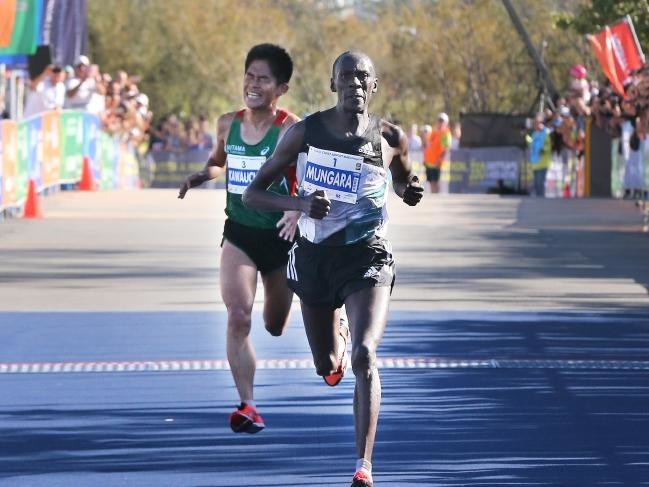
Zane Roberston believes he could have won the Commonwealth Games race. A half-marathon PB of 59:47 suggest that is more than just idle talk. He was happy to talk up his chances pre-race.
“First and foremost, I always target the win,’ Robertson said. “I want to run as fast as the pacemakers allow and once they step off the road anything can be possible. Perhaps a new Oceania record?”
Robert de Castella holds the Oceania record at 2:07:51, his winning time the first year the Boston marathon went open in 1986. Of equal note, Zane’s twin brother Jake holds the New Zealand, and family, record at 2:08:26.
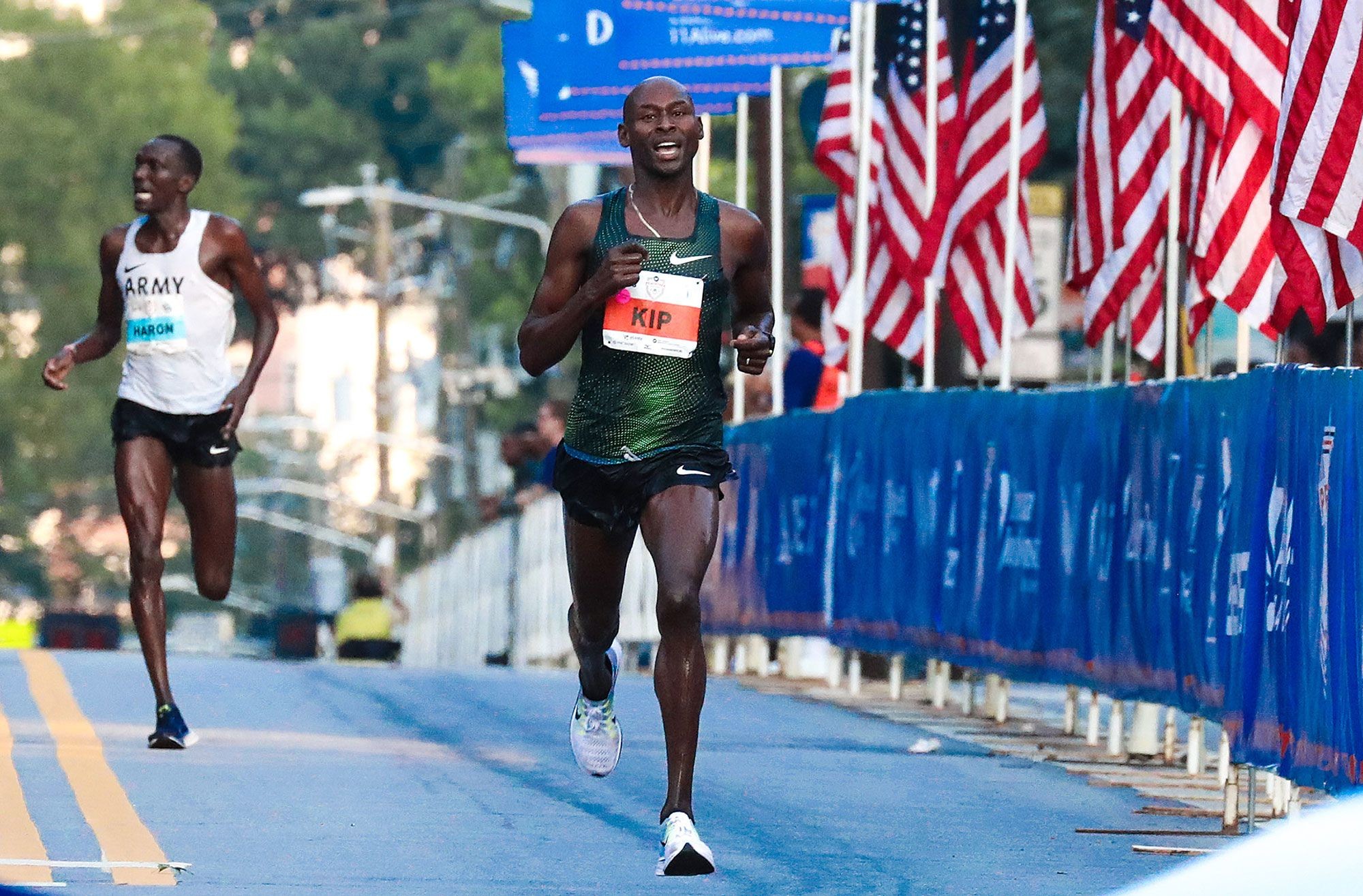
The Gold Coast race also serves as the Oceania championships, so the Oceania champion will accrue valuable rankings points for the Tokyo 2020 Olympics.
Kenyan pair Ezekiel Chebii and Philip Sanga Kimutai both boast personal bests of 2:06:07, the former from 2016 in Amsterdam, the latter from 2011 in Frankfurt. But the man with the most recent 2:06-clocking is Japan’s Yuta Shitara who ran a national record 2:06:11 in Tokyo last year, a mark subsequently bettered by Suguru Osako’s 2:05:50 in Chicago. Along with the indefatigable Yuki Kawauchi, he gives Japan a strong hand in what has been traditionally a strong race for them.
by IAAF
Login to leave a comment
Gold Coast Airport Marathon
The Gold Coast Airport Marathon is held annually in one of the most popular holiday destinations in the world. It is Australia’s premier road race and was the first marathon in the country to hold an International Association of Athletics Federations (IAAF) Road Race Gold Label. The event is held on the first weekend of July and attracts more than...
more...Ruth Chepngetich sets Japanese’s all-comers Half-Marathon record at Gifu
Ruth Chepngetich ran away from a loaded field at the Gifu Seiryu Half Marathon on Sunday (28) to win the ninth edition of the IAAF Gold Label road race in 1:06:06, the fastest half marathon ever recorded in Japan.
The Kenyan, who won this year’s Dubai Marathon in 2:17:08, took 98 seconds off the previous course record set by world record-holder Joyciline Jepkosgei in 2017.
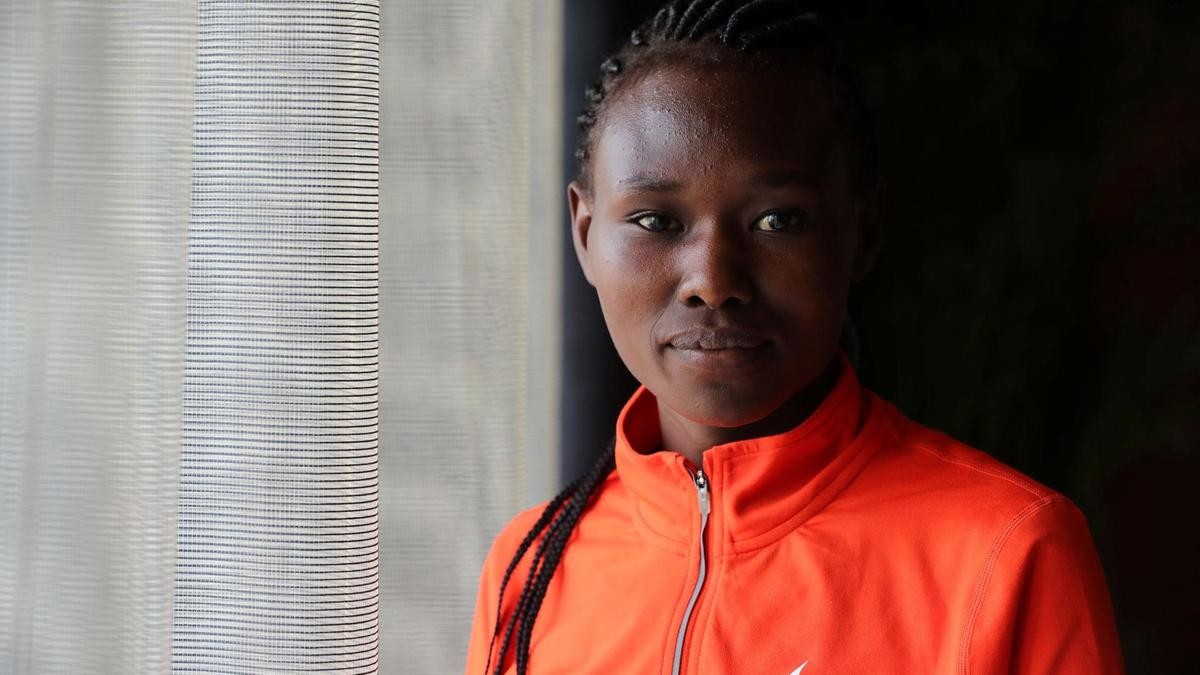
Chepngetich set out fast and by 5km (15:10), the lead pack consisted of just three runners – Chepngetich, Joan Melly Chelimo and Evaline Chirchir.
But Chirchir and then Melly were dropped before Chepngetich reached 10km in 30:45. She continued to push the pace, passing 15km in 46:44 and 20km in 1:02:41, winning comfortably in 1:06:05.
Melly Chelimo was nearly two minutes behind with 1:08:01 and Chirchir was third in 1:08:07, improving her PB by more than four minutes. World marathon champion Rose Chelimo was never a factor and finished seventh with 1:12:58.
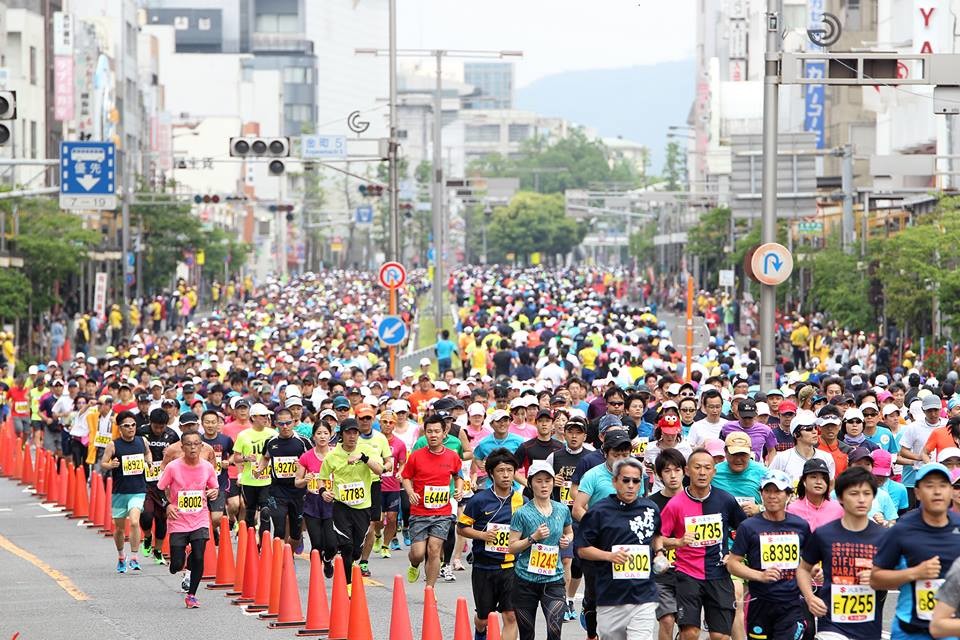
In contrast to the women’s race, a large lead pack formed during the early stages of the men’s race as 10 men were together at 5km (14:18). When course record-holder Bedan Karoki started to push the pace 20 minutes into the race, the lead pack reduced immediately to five men.
The leader’s pace soon slackened and Japanese half marathon record-holder Yuta Shitara joined them in front. Seven runners were in the lead pack at 10km (28:42), then Nicholas Kosimbei made a bid to break away about 37 minutes into the race, and only Karoki and Amos Kurgat were able cover the move.
When Kurgat started to push the pace three minutes later, only Karoki went with him. But soon even Karoki was slowly drifting backward. Kurgat’s two-second advantage at 15km (43:05) grew to 30 seconds by 20km (57:29) and he crossed the line in a PB of 1:00:34.
It was his second consecutive half marathon victory and PB, following his 1:01:06 run at the Japanese Corporate team Half Marathon Championships in February. Karoki, the 2014 champion, finished second in 1:01:07.
by IAAF
Login to leave a comment
Bedan Karoki and Eunice Kirwa, both past winners of the Gifu Seiryu Half Marathon, will return to defend their titles this weekend
Gifu Seiryu Half Marathon, Also known as the ‘Naoko Takahashi Cup’ as it is held in the home town of the 2000 Olympic marathon champion, the men’s course record of 1:00:02 was set by Karoki when he won in 2014, while the women’s course record of 1:07:44 was set by world record-holder Joyciline Jepkosgei in 2017.
Karoki, world ranked No.13 in road running, will be aiming to become just the second two-time men’s champion in Gifu. Since his last run in Gifu, Karoki earned world silver medals at cross-country in 2015 and at the half marathon in 2016.
He also improved his half marathon PB to 58:42 in 2018 and earlier this year clocked a marathon best of 2:06:48 to finish second in Tokyo.
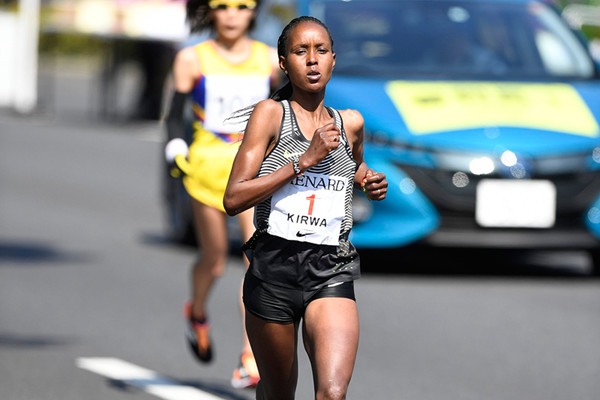
His main challengers are Eritrea’s Samuel Tsegay, who has a best of 59:21, Abraham Kipyatich, world ranked No.79, and Uganda’s Abdallah Mande, world ranked No.30. Tsegay’s best was recorded back in 2014, but Kipyatich and Mande both set PBs at various distances in 2018 so will likely be bigger threats to Karoki.
Yuki Kawauchi, the 2018 Boston Marathon champion, is the most famous Japanese runner in the field, but national half marathon record-holder Yuta Shitara is the fastest of the domestic entrants. Shitara’s half marathon best is 60:17 recorded in 2017.
Two time Gifu Seiryu Half Marathon champion Eunice Kirwa Jepkirui leads the loaded women’s field. The Olympic marathon silver medallist set an Asian half marathon record of 1:06:46 in Istanbul in 2017 in what was her last race over the distance.
The 2015 world bronze medallist didn’t race at all in 2018, though, and she may need to be at her best if she hopes to win her third title in Gifu.
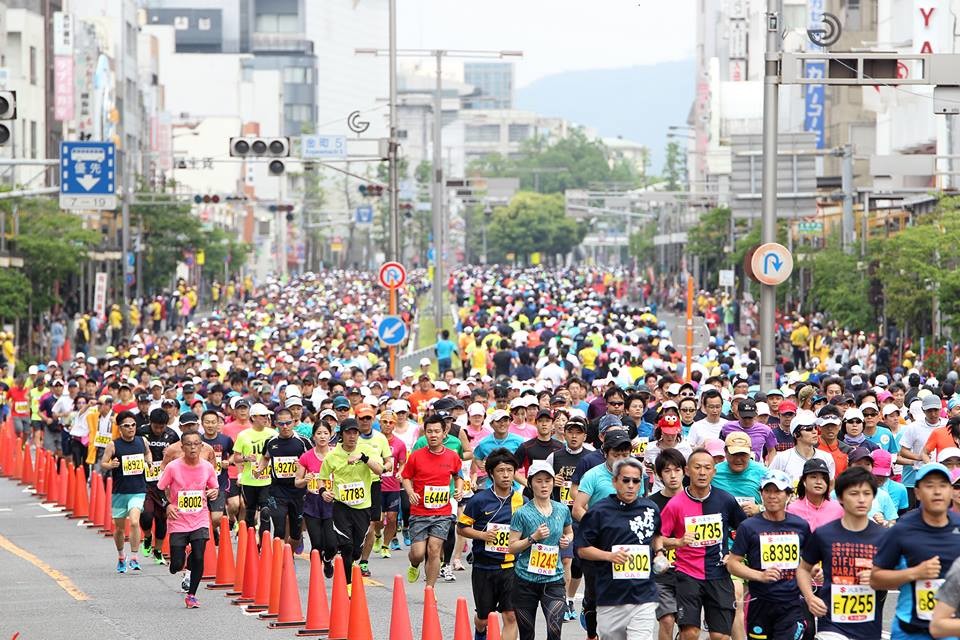
Joan Melly Chelimo, world ranked No.3 in road running, has the fastest PB of the field. The Kenyan clocked 1:05:04 in Prague last year, making her the fourth-fastest woman in history for the distance.
Ruth Chepngetich, world ranked No.1 in the marathon, heads to Gifu in the form of her life. She won this year’s Dubai Marathon in 2:17:08, the third-fastest time in history, and followed it with half marathon performances of 1:06:09 and 1:05:29.
World marathon champion Rose Chelimo will be aiming to improve on her PB of 1:08:08, while Ana Dulce Felix, Mimi Belete and Gotytom Gebreslase are also in the field.
by Ken Nakamura
Login to leave a comment
Gifu Half Marathon
The Gifu Seiryu Half Marathon is an annual half marathon road running competition held in Gifu, Japan. First held in 2011, the race is also called the Naoko Takahashi Cup, named after Naoko Takashi, the retired local runner who won the marathon at the 2000 Sidney Olympics and broke the marathon world record in 2001, becoming the first woman to...
more...Tokyo Marathon silver medalist Bedan Karoki will compete in the Gifu Half Marathon on April 28 in Japan
Tokyo Marathon silver medalist Bedan Karoki believes he is on a good trajectory to dominate the road races and will hope to add the Gifu Half Marathon title to his collection on Sunday.
Karoki hopes to make the Kenya team to this year's World Championships in Doha, Qatar, but would prefer to run in the marathon, having failed on three occasions to win the 10,000m race.
"I have always had a fast-paced first phase of my marathon races, or even on track, but I am not strong in finishing," said Karoki on Tuesday. "I have the much-needed experience in marathon and track and I hope for a break this time around."
Karoki faces Jorum Okumbo and Japanese former marathon record-holder Yuta Shitara.
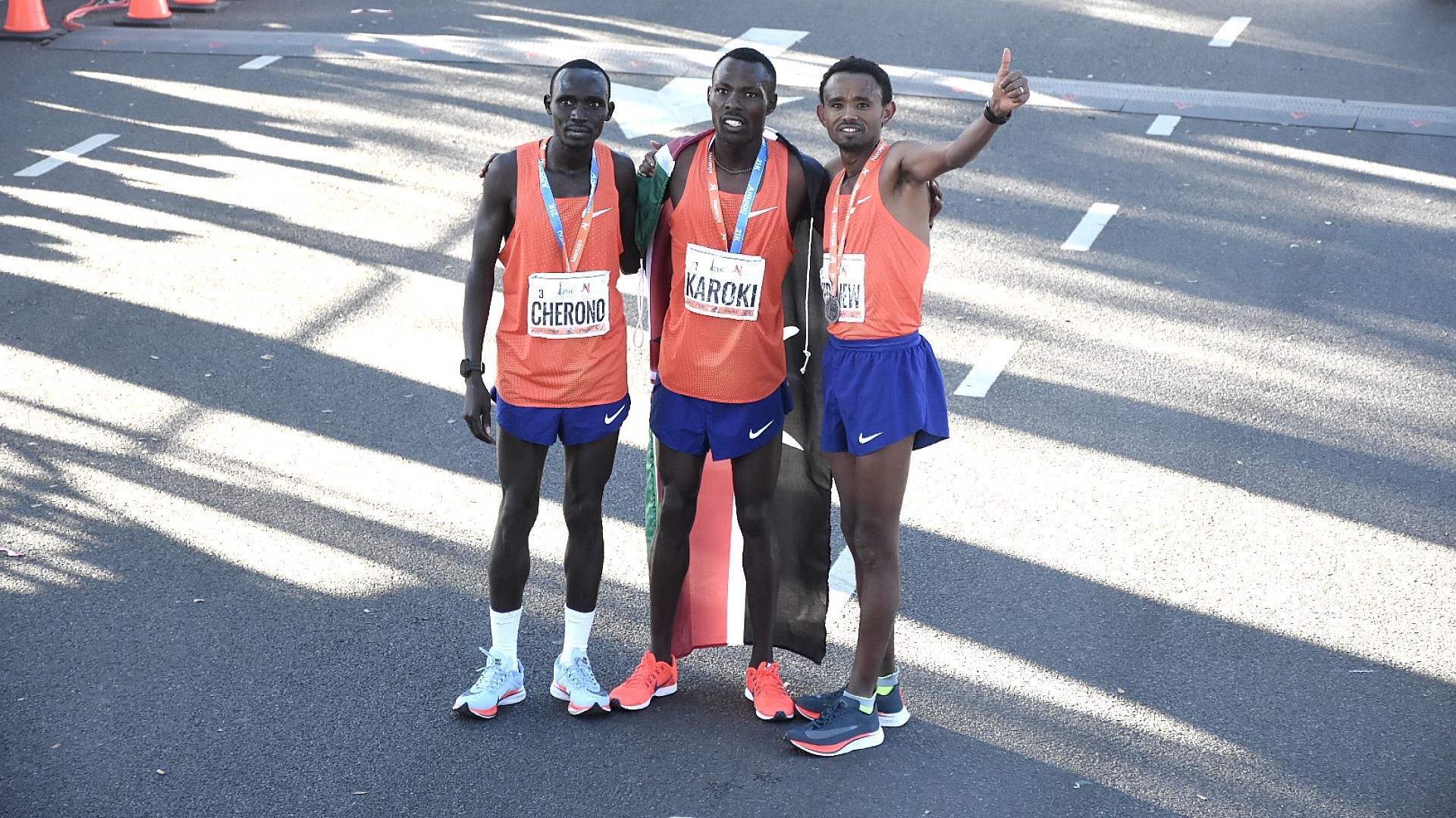
The fastest entrant in the women's race is Chepngetich's teammate Joan Chelimo, who clocked 65:04 to win in Prague last year.
However, Chepngetich is certain her strong preparations for the race will pay dividends, enabling her prevail and win gold over the 21km distance.
"I want to use the race as part of my preparation for the marathon," she said on Tuesday in Nairobi. "There are stronger and faster athletes in the race, but it will not be important on race day because how you run on that day is what is important. I hope to be successful."
Bahrain's Olympic marathon silver medalist Eunice Kirwa will also be staking her claim to the title in her bid to dominate the Asian road races.
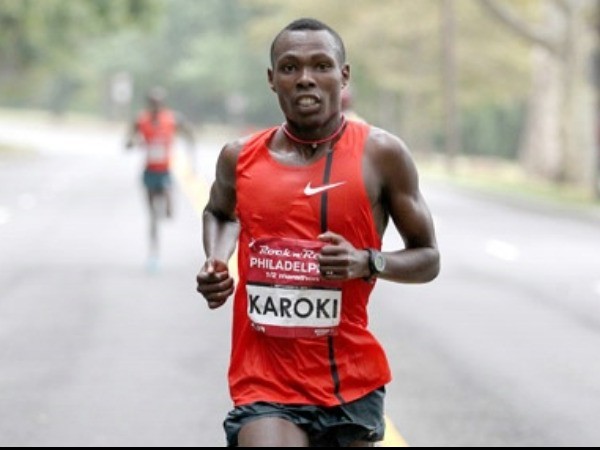
Kirwa, who trains and lives in Eldoret and raced for Kenya until 2013, will have to be cautious of the challenge her former teammates will pose.
Also featuring will be world marathon champion Rose Chelimo of Bahrain and Japan's Miyuki Uehara.
Chelimo has had a poor season this year, finishing in position 41 at the World Half Marathon championships, and was eighth at the Tokyo Marathon in March.
However, a win on her return to Japan in Nagano will boost her credentials as she prepares to defend her crown at the 2019 World Championships in Doha this October.
"I did everything right in my preparations for the Tokyo Marathon, but I was not lucky enough to win," said Chelimo.
Login to leave a comment
Gifu Half Marathon
The Gifu Seiryu Half Marathon is an annual half marathon road running competition held in Gifu, Japan. First held in 2011, the race is also called the Naoko Takahashi Cup, named after Naoko Takashi, the retired local runner who won the marathon at the 2000 Sidney Olympics and broke the marathon world record in 2001, becoming the first woman to...
more...Can Japan’s Suguru Osako Win the Tokyo Marathon on home soil? Yes it is possible but there are five Africans in the field with faster times
Japan’s national record holder Suguru Osako, is running Japan’s biggest marathon, Tokyo. And that’s exciting. Because as great as Japan has been at the marathon in recent years, Kenya and Ethiopia have still been way better.
Prior to last year, no Japanese man had broken 2:07 since 2002, which is almost a prerequisite to win a WMM these days: since 2013, 89% of men’s WMM champs have entered the race with a sub-2:07 PR. 23 Kenyans had broken 2:07 in 2018 alone.
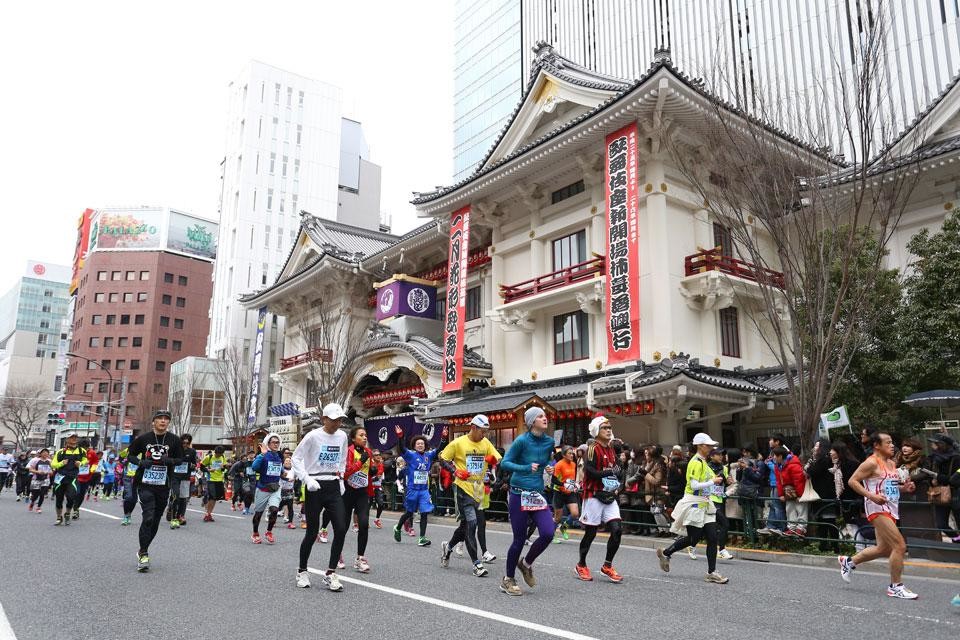
But Japan is narrowing the gap to the East Africans. Last year, after going 15 years without a sub-2:07 marathoner, Japan produced three: Osako (2:05:50), Yuta Shitara (2:06:11), and Hirohito Inoue (2:06:54). And both Osako (3rd in Chicago) and Shitara (2nd in Tokyo) were in the mix for the win at majors.
This weekend kicks off an incredible 18 months of marathoning in Japan. It begins with the Tokyo Marathon on Sunday, the first WMM of 2019, and continues in September with the Japanese Olympic Trials, also in Tokyo. Then there’s the 2020 Tokyo Marathon and, of course, the Olympic marathon in August 2020.
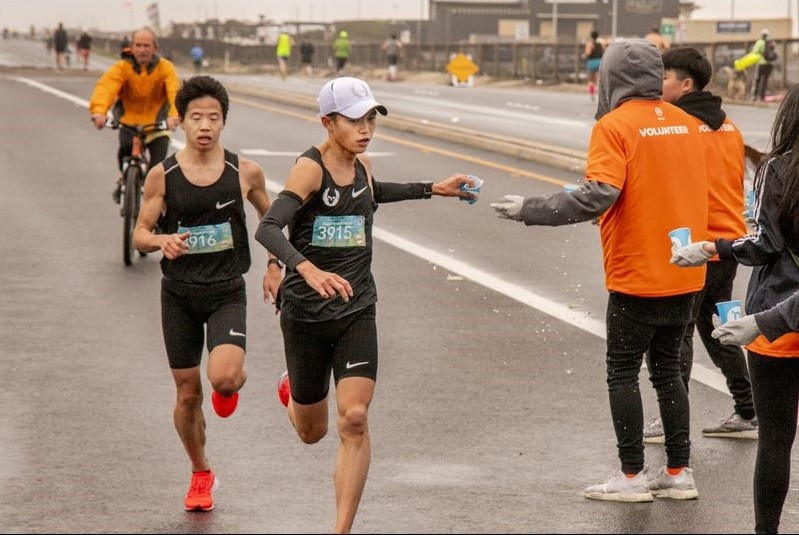
The biggest reason to be excited about this year’s Tokyo Marathon is Osako, who is based in the US and trains under Nike Oregon Project coach Pete Julian.
A win by Japan’s best marathoner on home soil just 17 months before they host the Olympics would be a huge story, and it could actually happen. That doesn’t mean it will happen — there are five guys entered with faster PRs than Osako, including four under 2:05 — but it certainly can happen!
Login to leave a comment
Tokyo Marathon
The Tokyo Marathon is a world-renowned annual marathon held in Tokyo, Japan. As one of the prestigious Abbott World Marathon Majors, it attracts elite and amateur runners from around the globe. The race holds World Athletics Platinum Label status, recognizing its high competitive standards, top-tier organization, and international appeal. Sponsored by Tokyo Metro, the Tokyo Marathon has grown into one...
more...John Muritu improved the course record at Kumamoto Kosa 10-Mile Road Race to 45:56
Login to leave a comment
National record holder Yuta Shitara and Yuki Kawauchi are running the Fukuoka Marathon
Login to leave a comment
Japan’s Project Exceed Program has Japanese Runners hyped up...next chance to be a millionaire is Sunday
Login to leave a comment
There has never been this much money put on the table for marathoners and their coaches
Login to leave a comment
We now know what Yuta Shitara picked up at the 40K Aid Station
Yuta Shitara, who won a million dollars (US) breaking the Japanese marathon record in Tokyo Sunday, picked up this arm sleeve at the 40km aid station, and then blasted onwards to the finish in 2:06:11.
We asked our Japan's contributor Osamu Tada about the arm sleeve. "His family gave him his portrait," says Osamu. "Maybe it is a new way of cheering...as an aside his twin brother is going to run the Biwako Marathon this weekend."
The mystery behind this event certainly caught the attention of many. "I think this is great," says Bob Anderson. "Yuta is one good runner and if more people now know his name because of this event, all the better."
by Osamu Tada (in Japan)
Login to leave a comment
What happened with Wilson Kipsang on Sunday at Tokyo Marathon
Login to leave a comment
Details of Japan's Project Exceed and the Million Dollar Payout
Login to leave a comment
What did Yuta Shitara strap to his arm at the last aid station at the Tokyo Marathon?
Yuta Shitara ran the fastest marathon of any Japanese runner ever at the 2018 Tokyo Marathon on Sunday. He clocked 2:06:11.
At the last aid station he pulled something from his bottle set-up and put it around his right arm bicep. One person on Let's Run suggested it was a "a giant nicotine patch." Another said it was a "Hello Kitty Coin Purse."
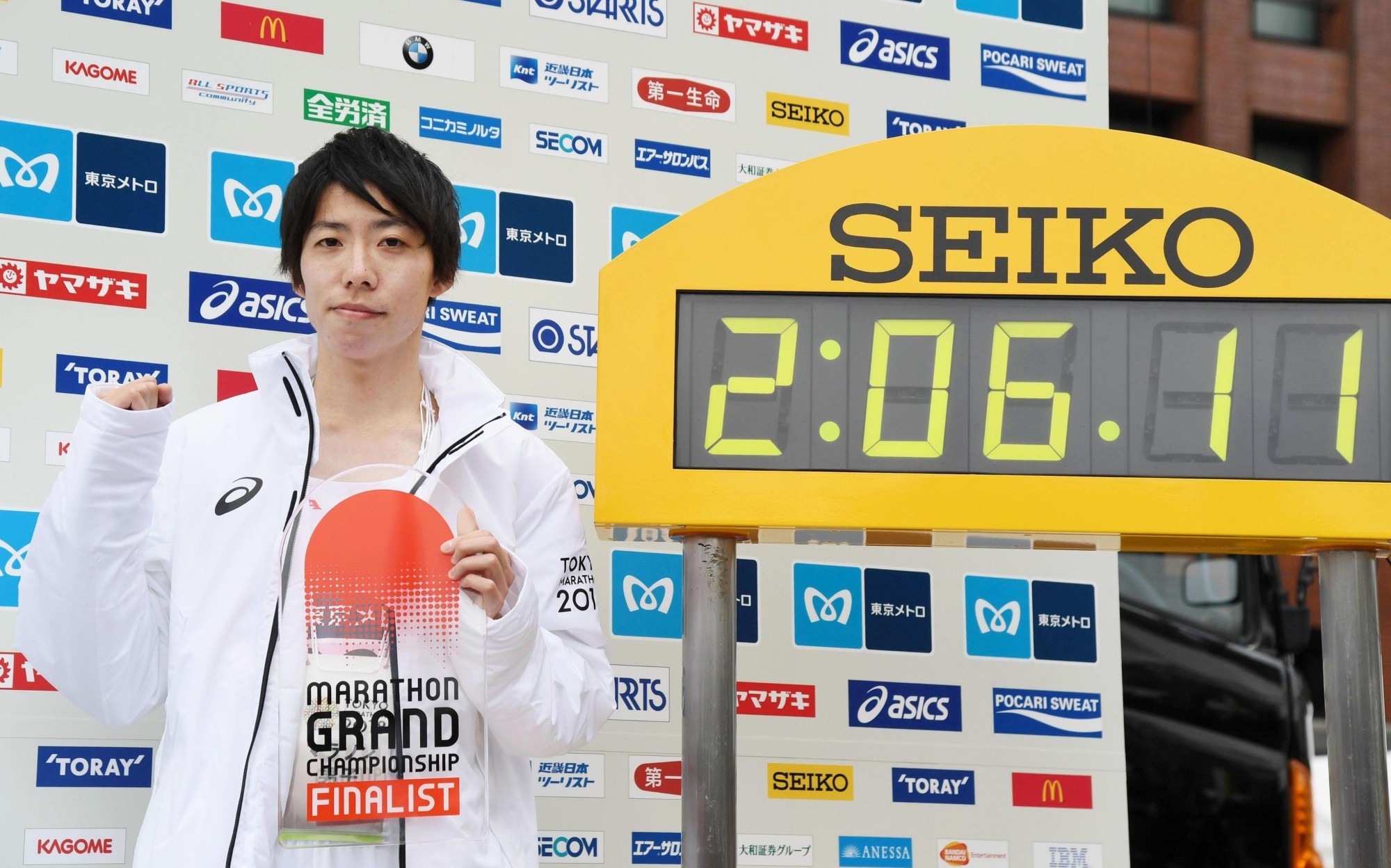
Michael Capper on FB said "Never seen this before." Gary Rush stated, "Maybe a gel fluid holder? I think its against IAAF rules for elites to wear or use communication devices or receive electronic updates during a race."
Bob Anderson says, "After looking at more than ten photos of Yuta finishing races, I did not see a similar 'thing' strapped to his arm."
In any case he blasted the last few kilometers wearing this 'thing'. Did it give him an unfair advantage? "First of all we need to know what it was," says Bob.
Login to leave a comment
Yuta Shitara sets Japanese National Maraton Record and wins $936,000 bonus
Login to leave a comment
Dickson Chumba wins the Tokyo Marathon again...six Japanese Runners under 2:09
Kenya’s Dickson Chumba (the 2014 Tokyo and 2015 Chicago champion) opened a nice gap as they approach 38km and went on to win in 2:05:29.
At 40k Japan’s Yuta Shitara takes another swig from his festive bottle and grits his teeth as he hunts down and passes Amos Kipruto.
This is a man on a mission! Yuta Shitara did not let up and accomplished the following: 1. Ran a Japanese marathon record of 2:06:11 2. Finished 2nd in the Tokyo Marathon (highest finish ever by a Japanese man at a World Marathon Major) 3. Won 100 million yen for setting the NR. That's $936,000US.
Wilson Kipsang dropped out at 15k...Amy Cragg finished third in the women’s race taking five minutes off her PR. (2:21:42). Ethiopian’s Birhane Dibaba won the female race in 2:19:51.
This year’s race was the biggest field ever with 35,500 starters.
Login to leave a comment
Shitara Chasing 10 Mile National Record Sunday in Karatsu
Login to leave a comment
Shitara could be the first Japanese winner at Kagawa Marugame Half since 2006
Login to leave a comment
Yuta Shitara named Japan’s Long Distance Runner of Year
Login to leave a comment
Fast Times at 42nd Kumamoto Kosa 10-Miler
Login to leave a comment


